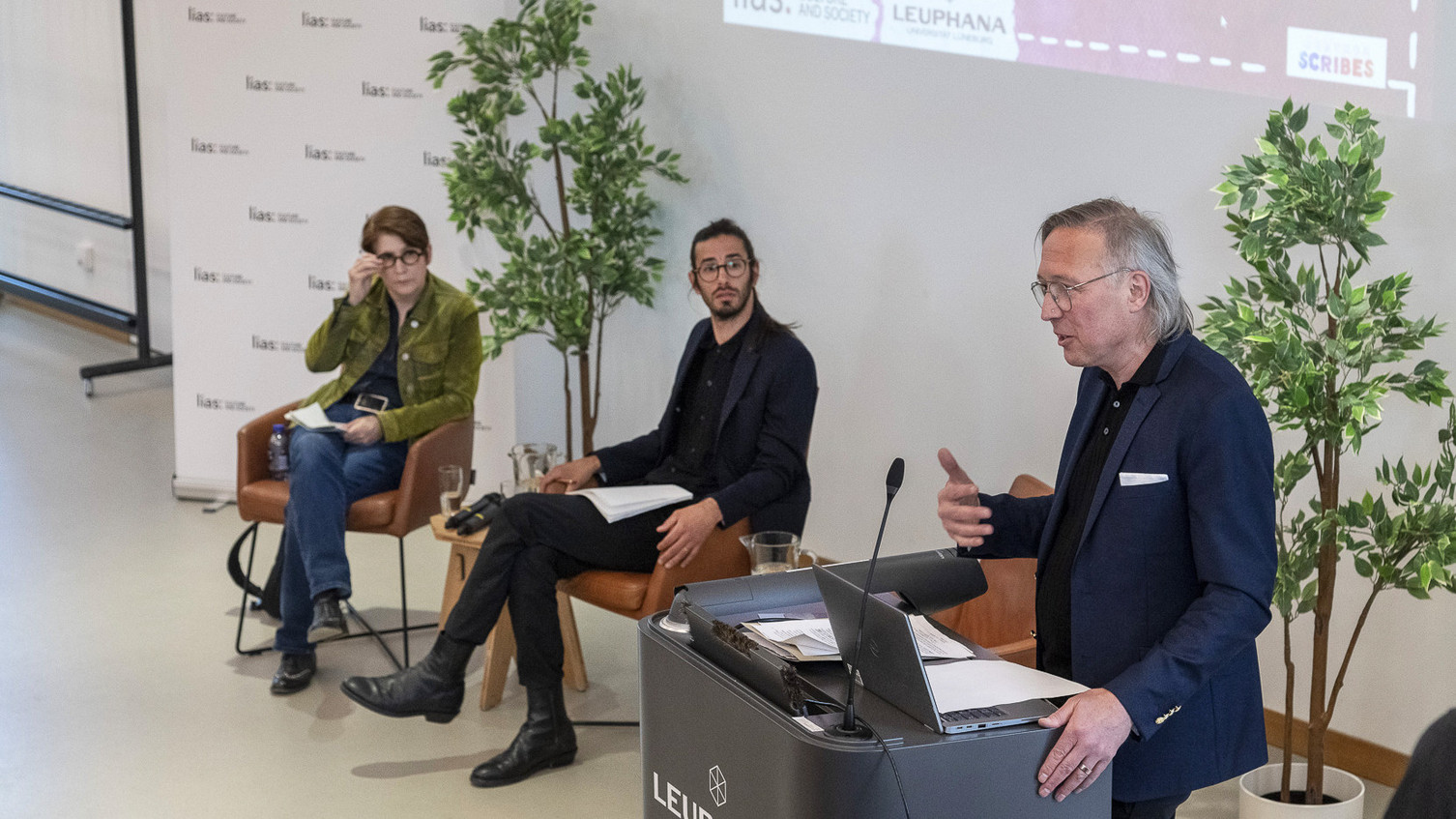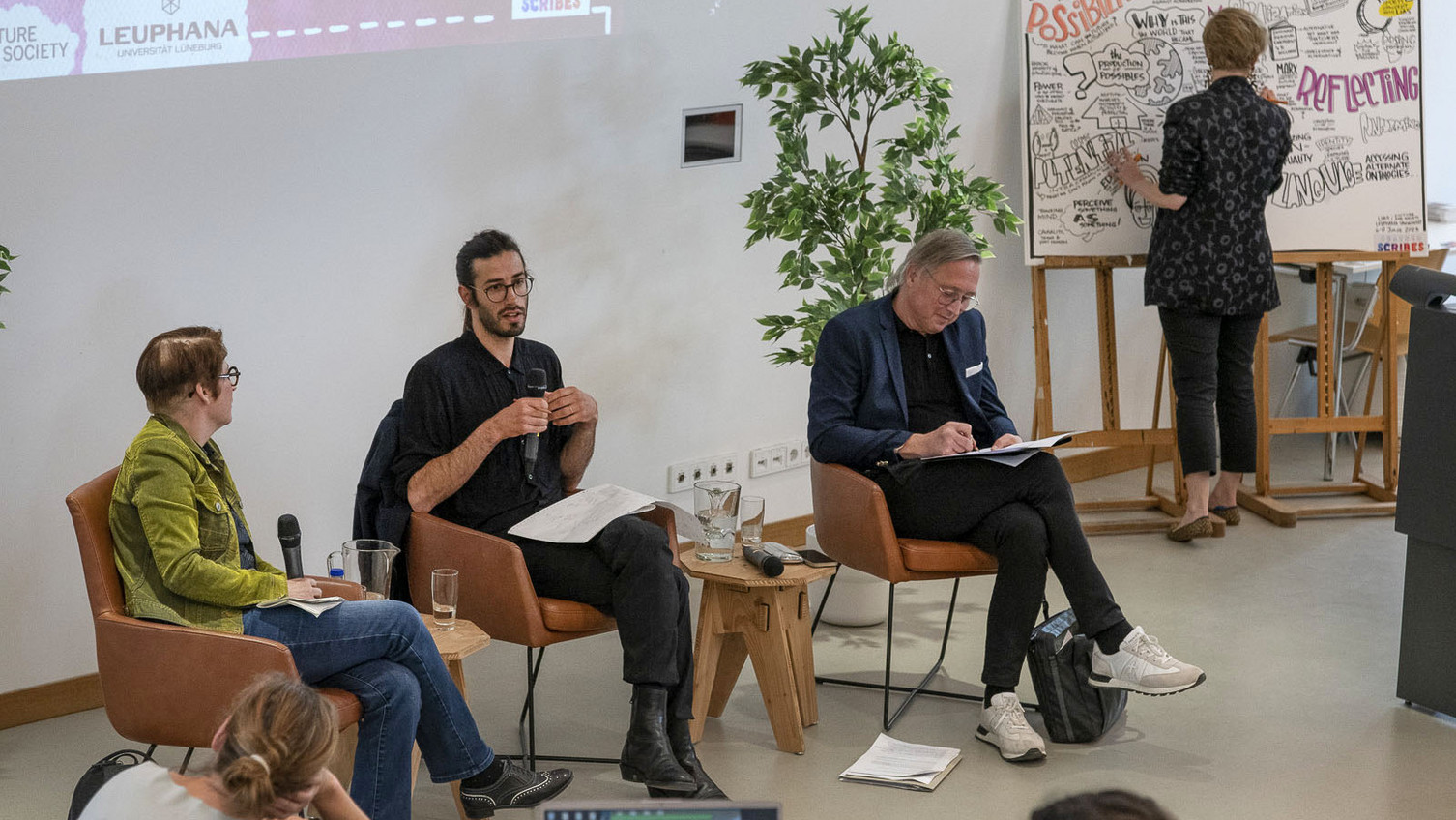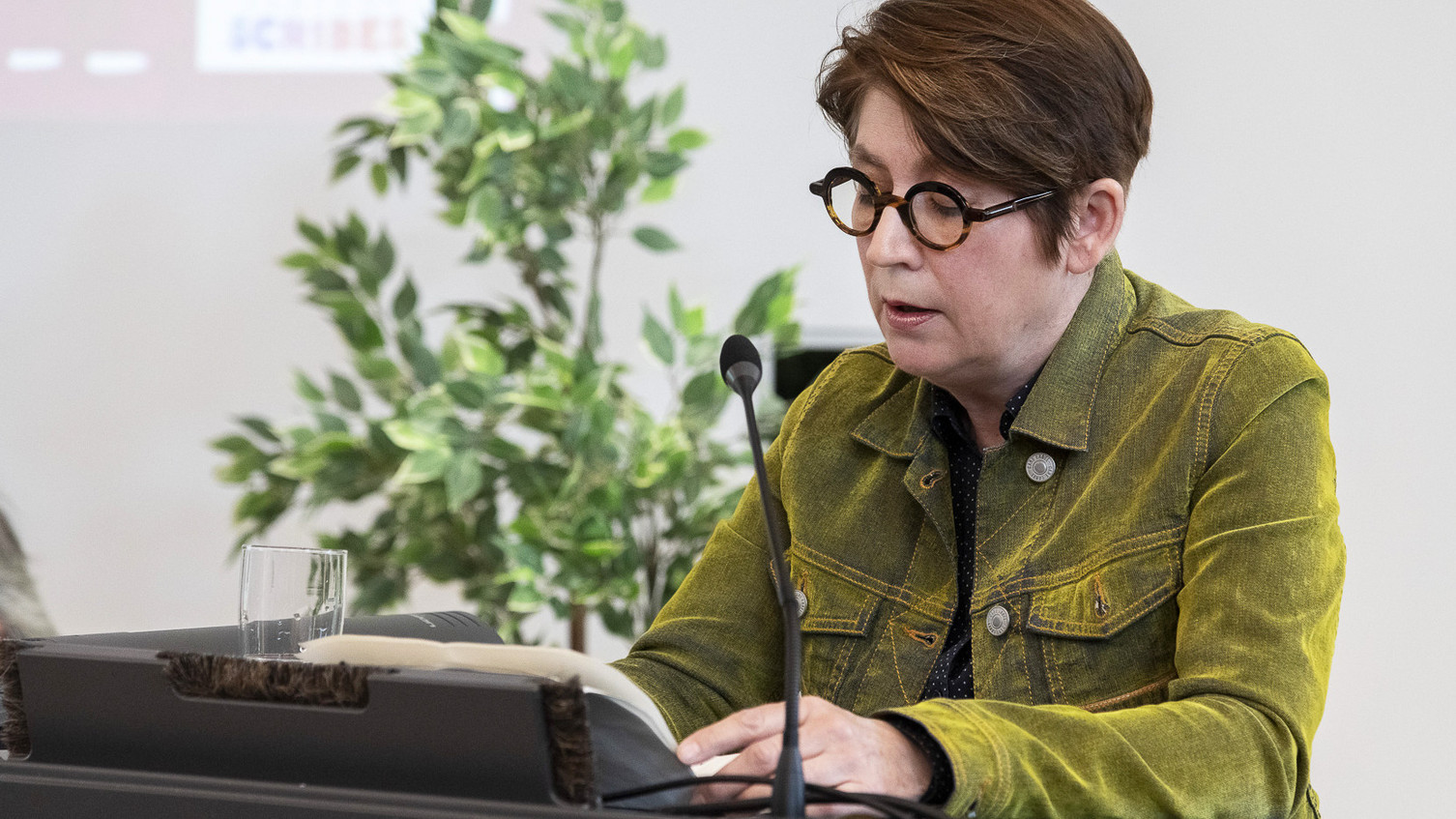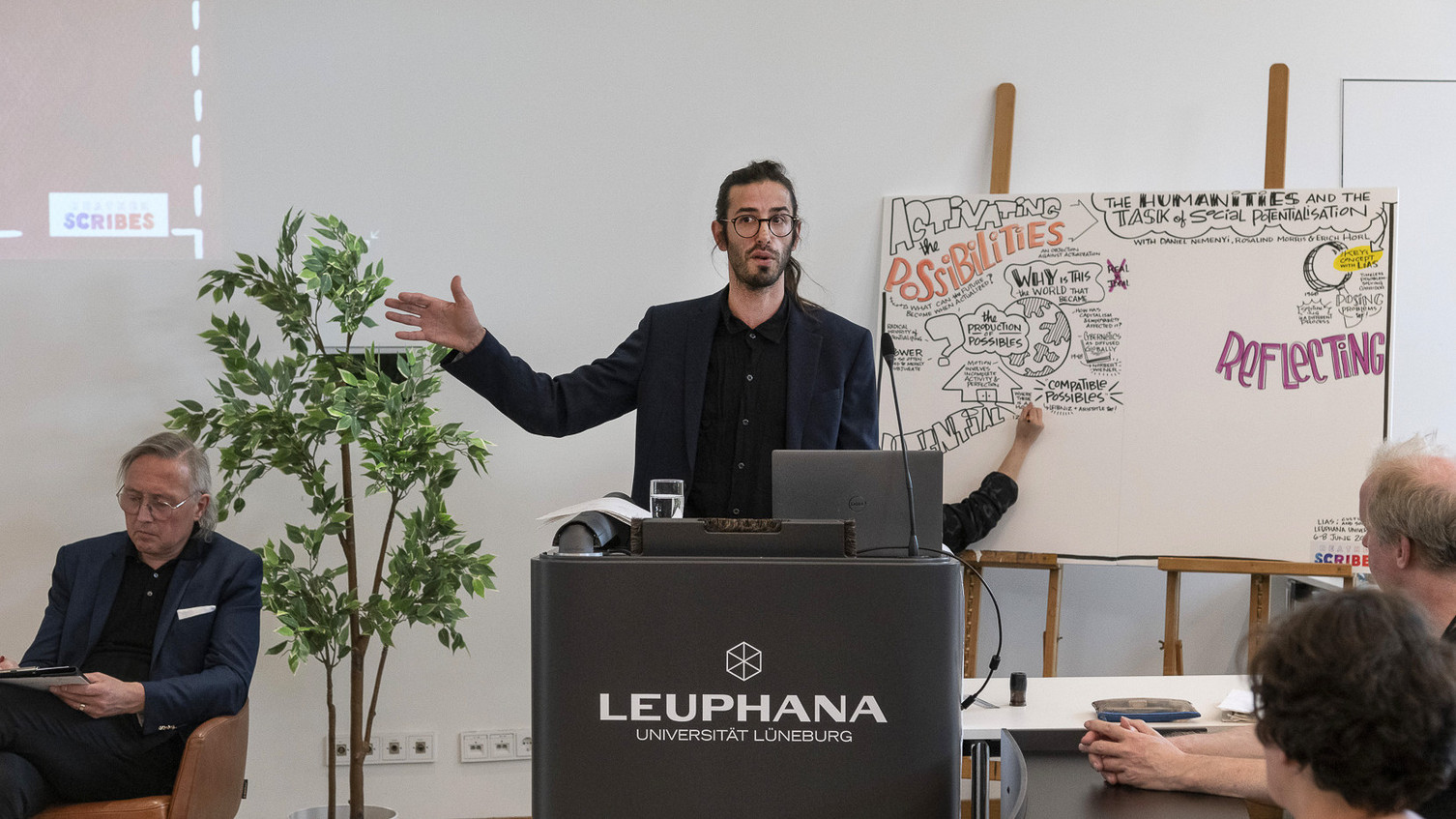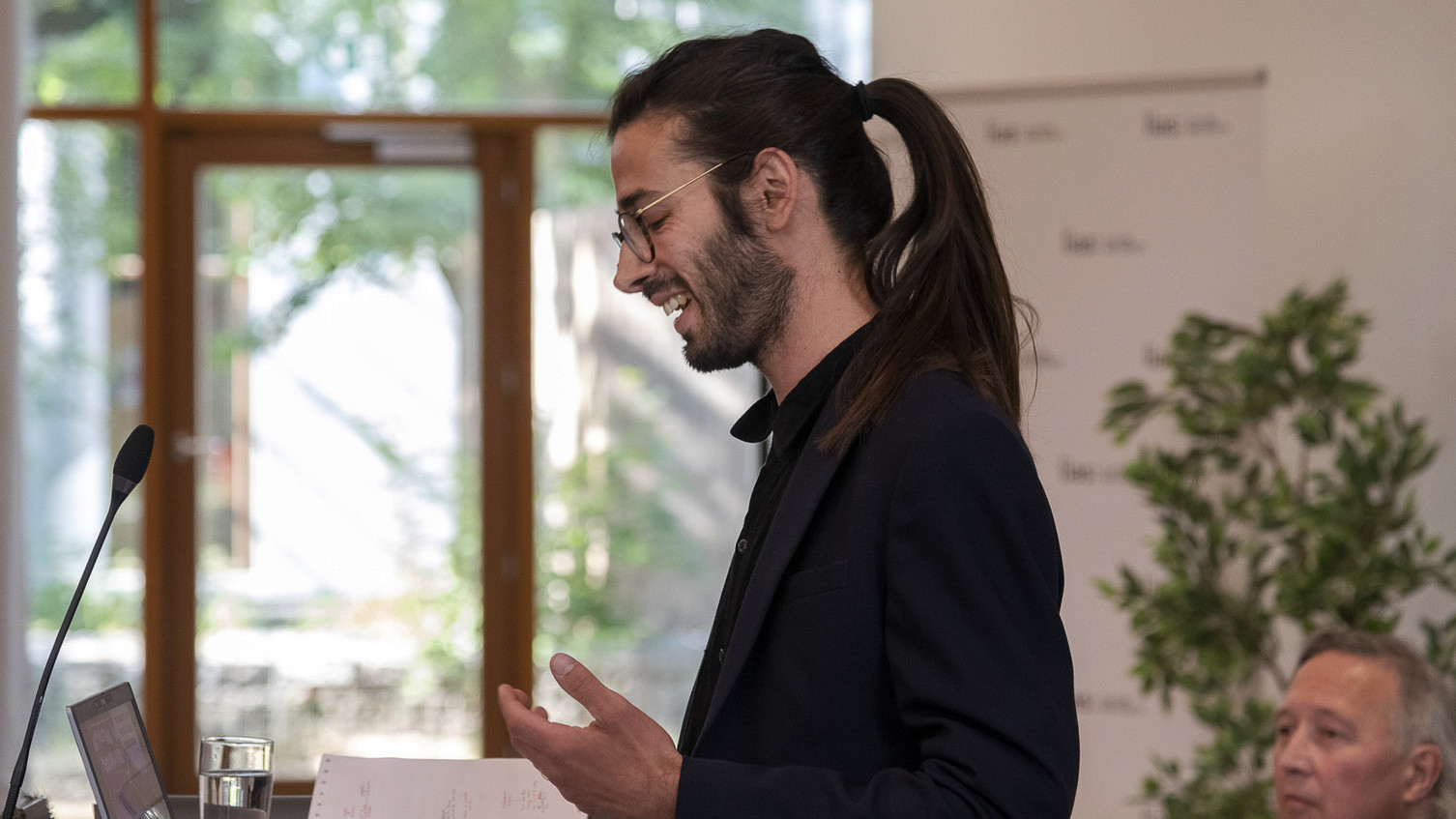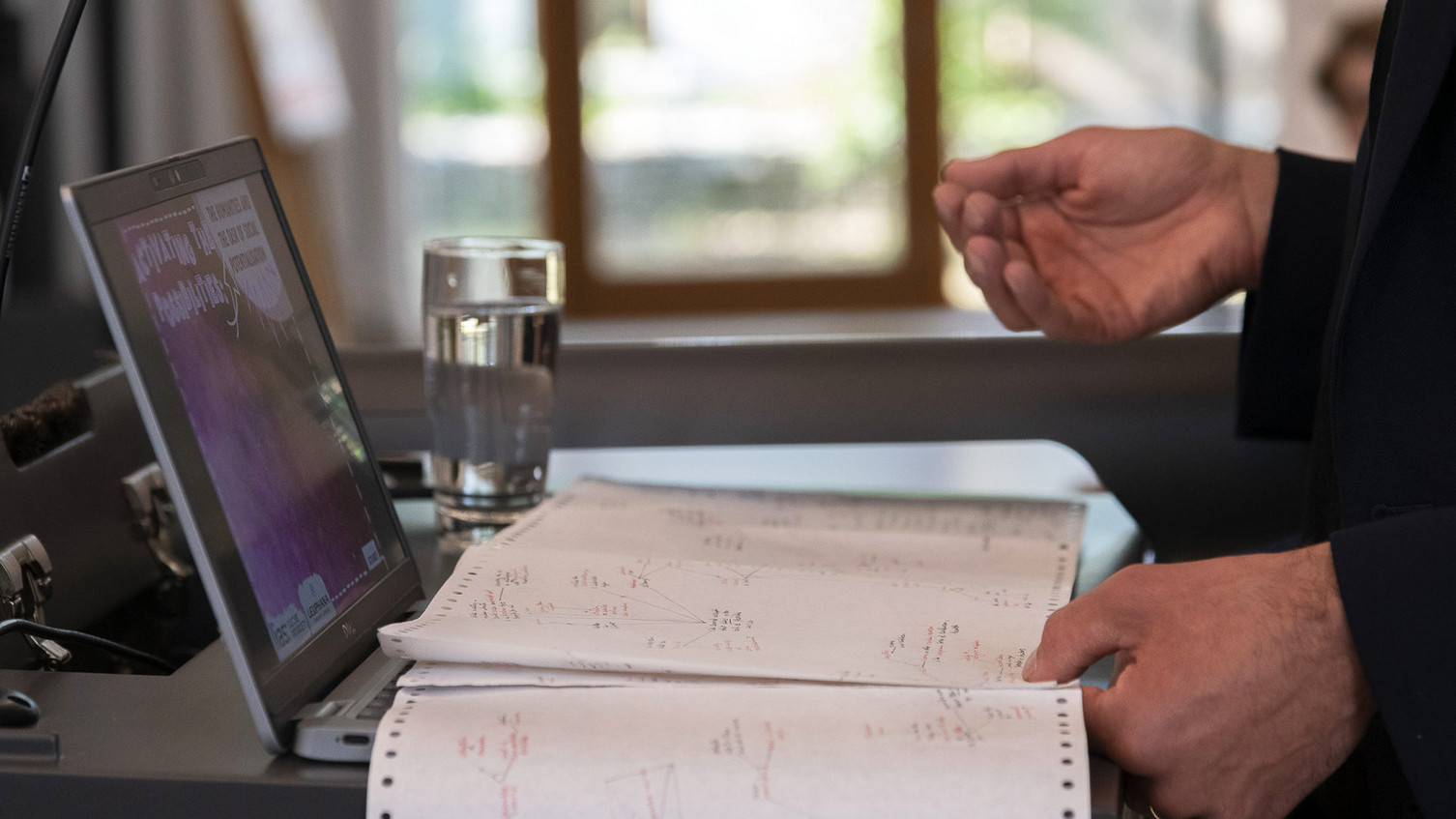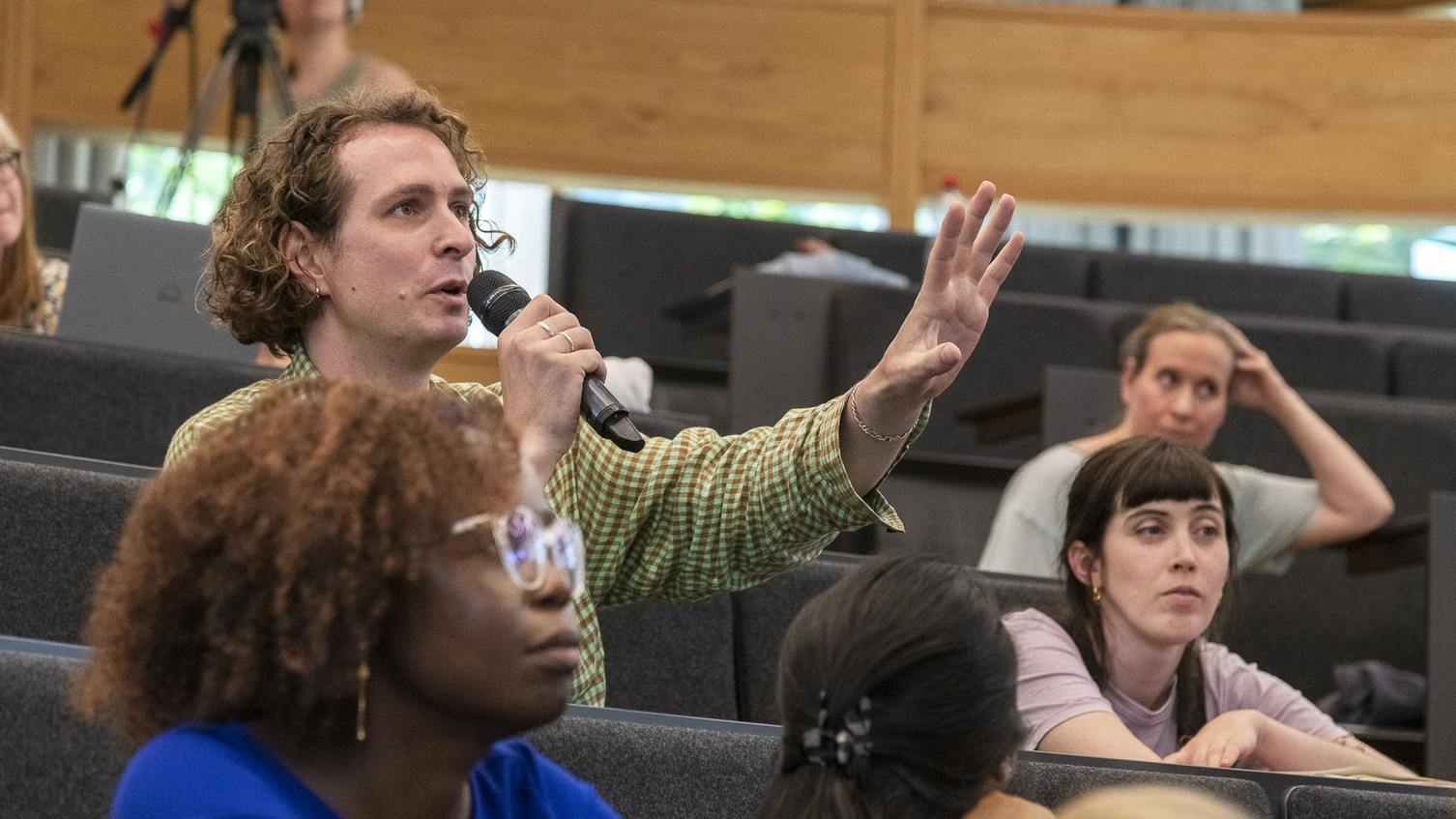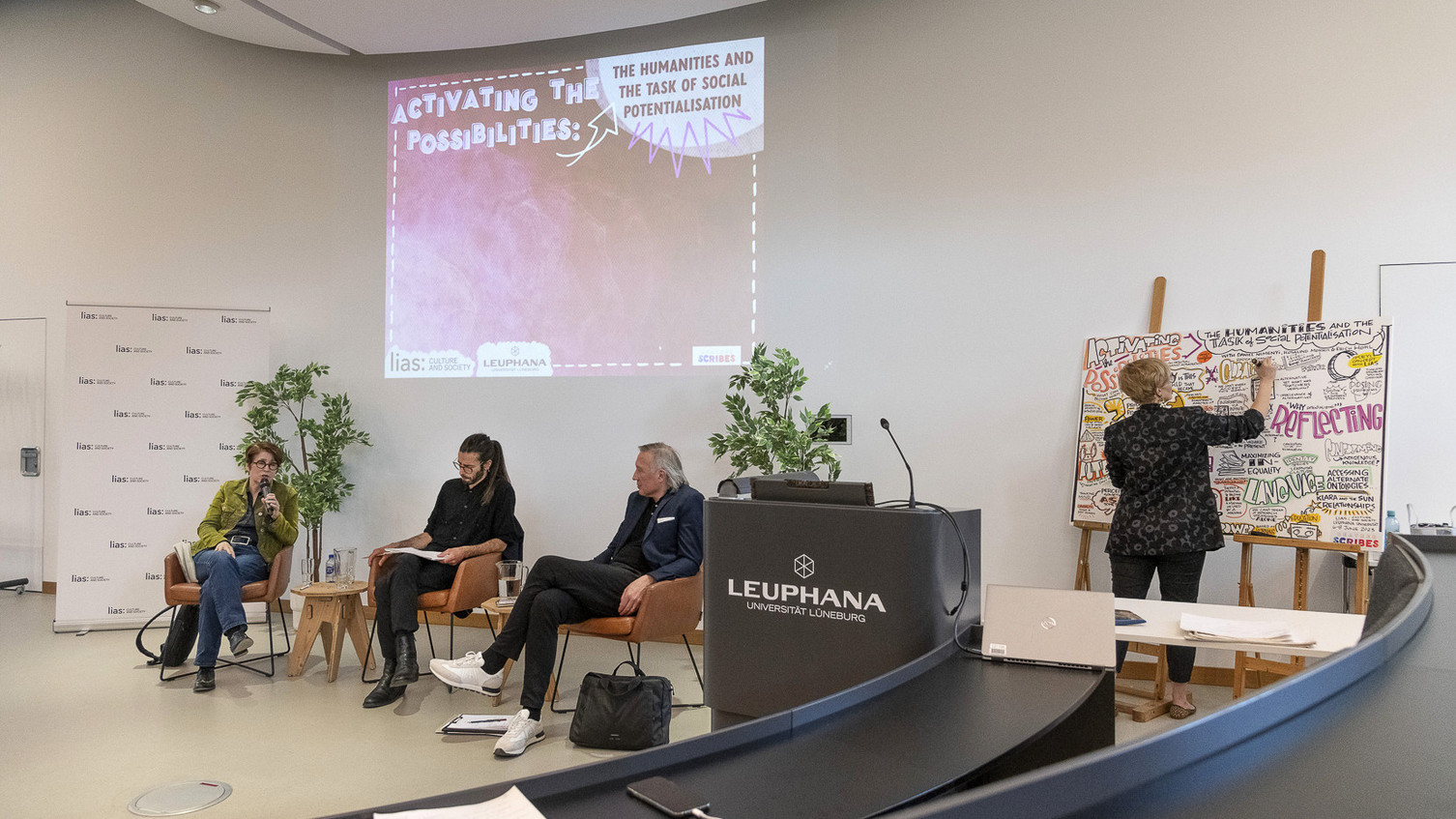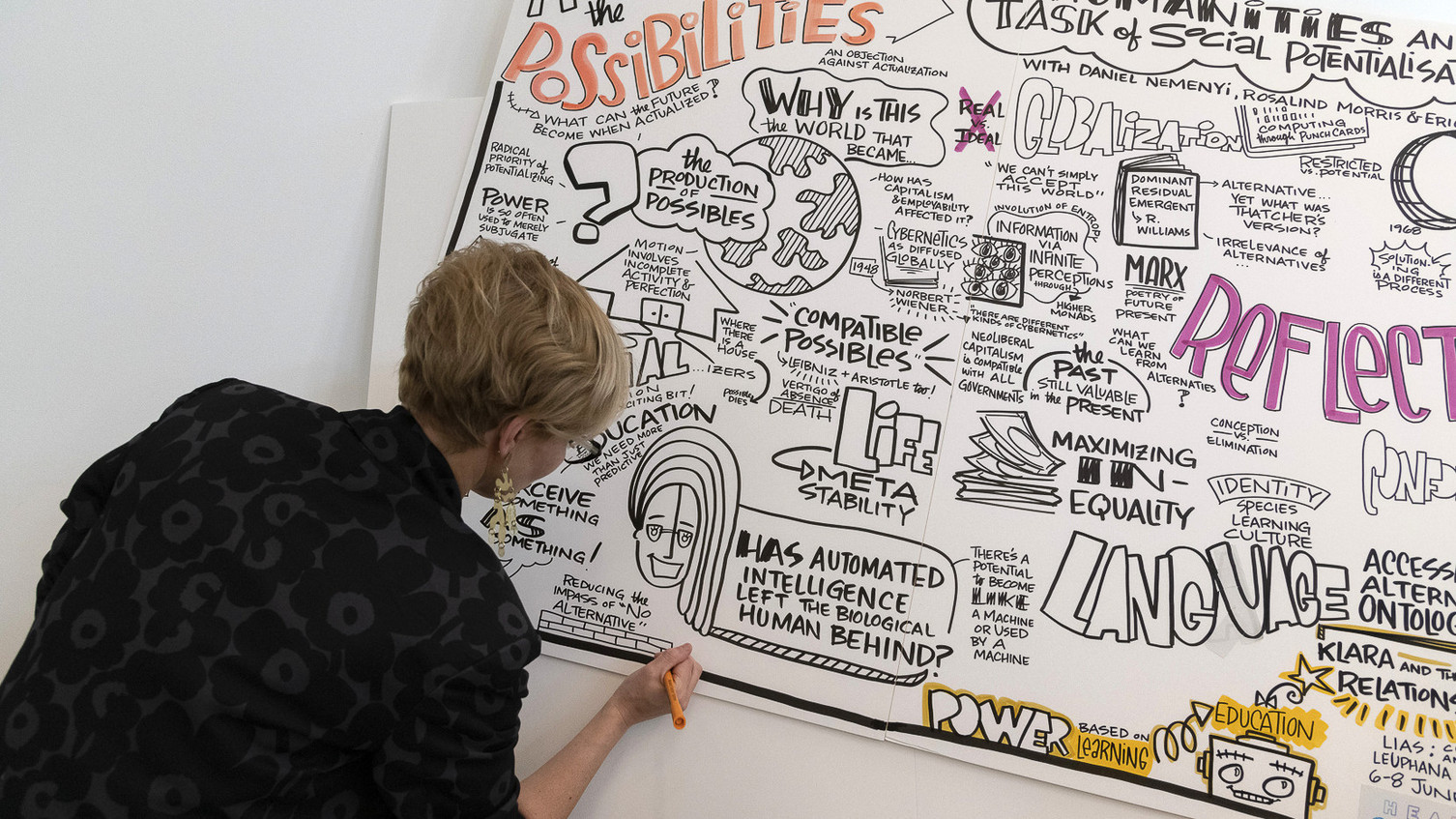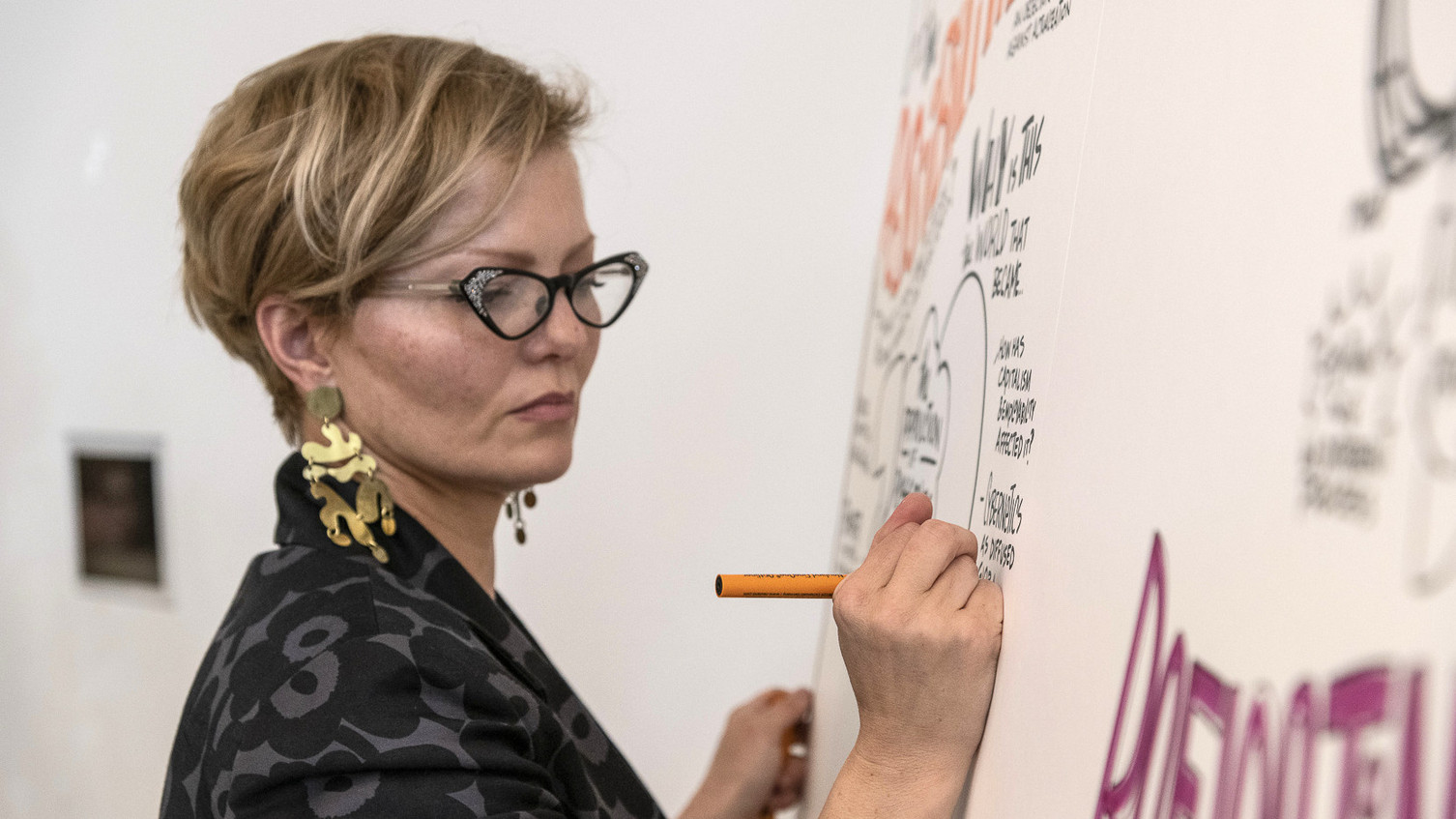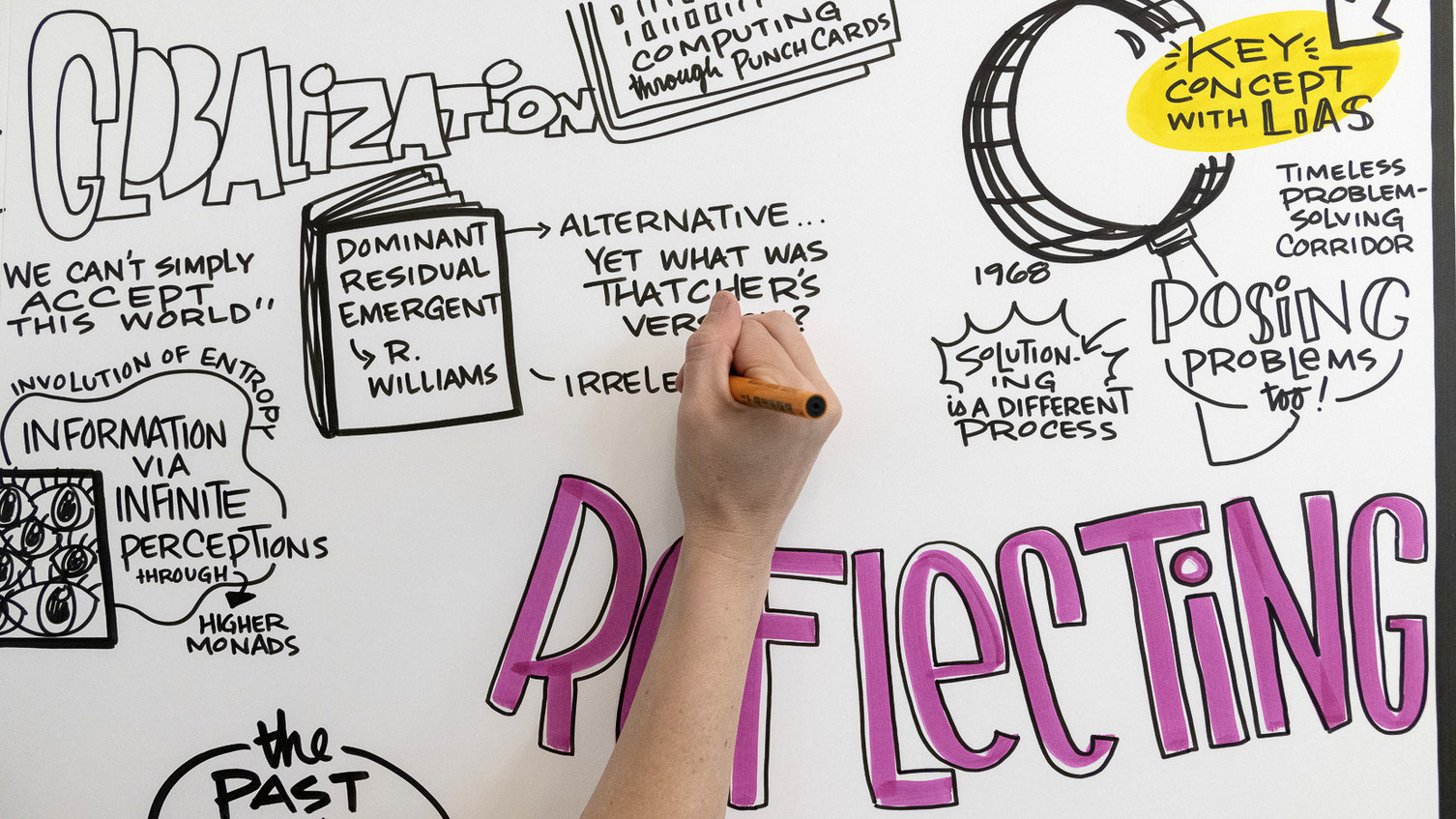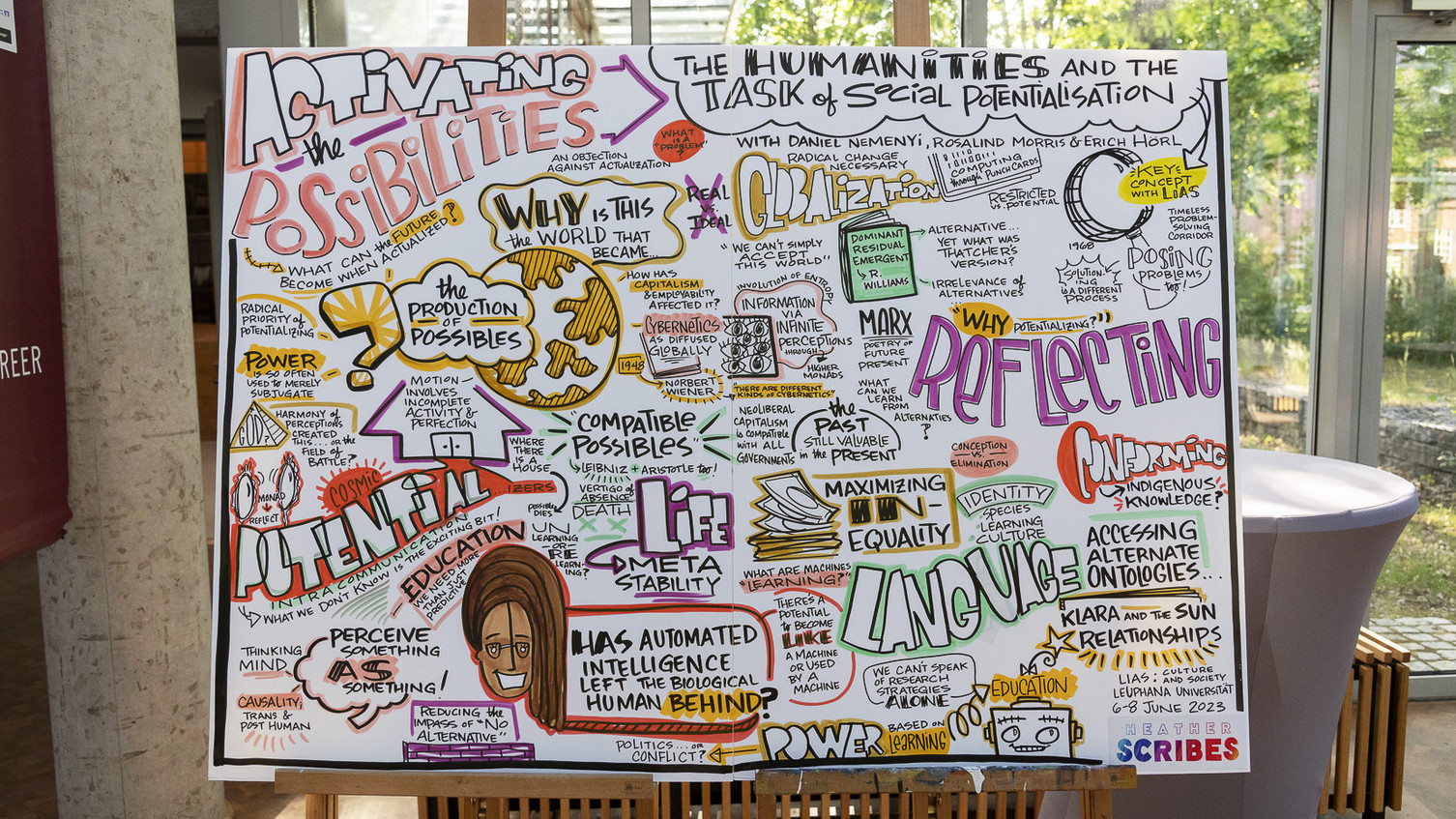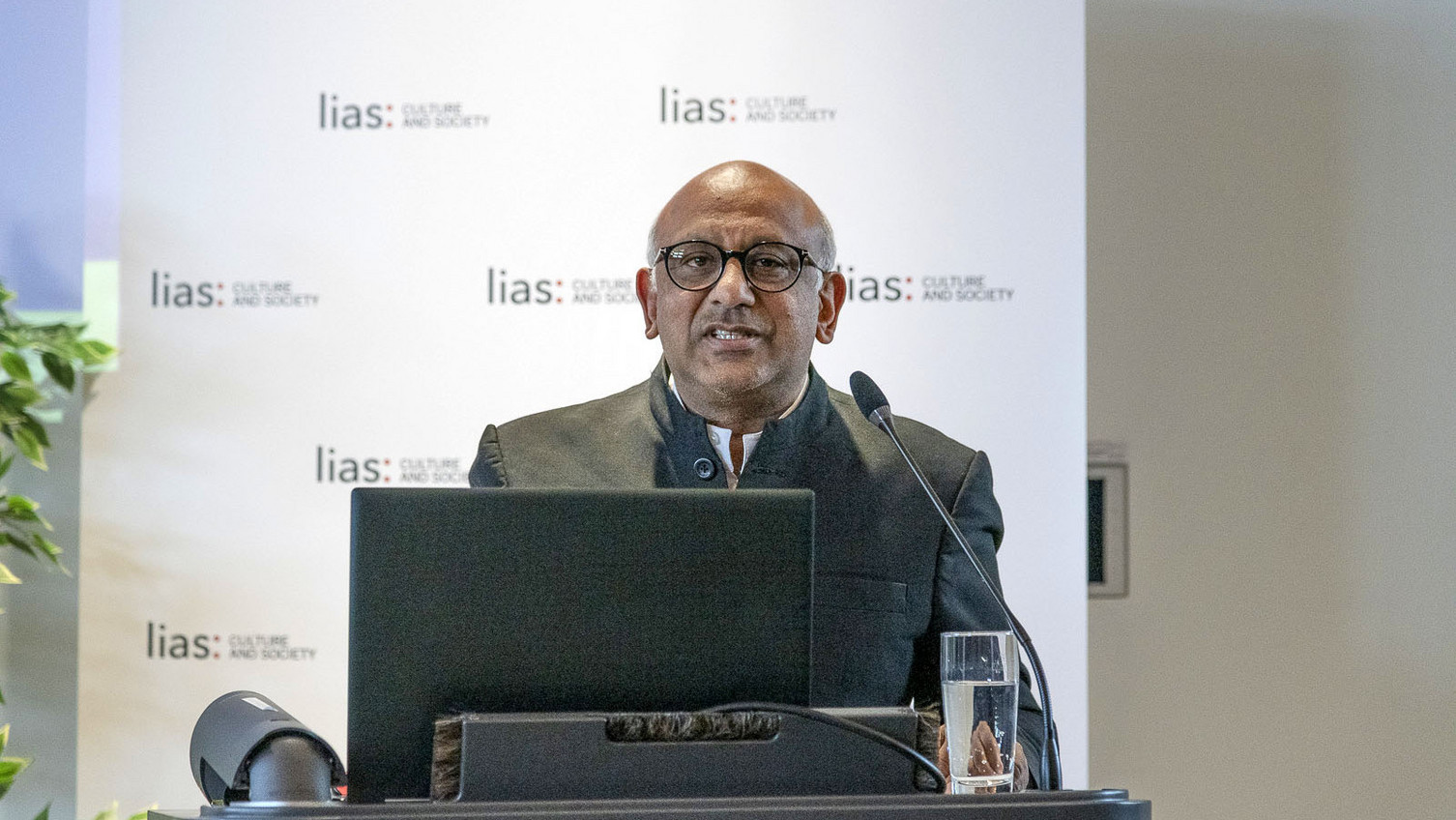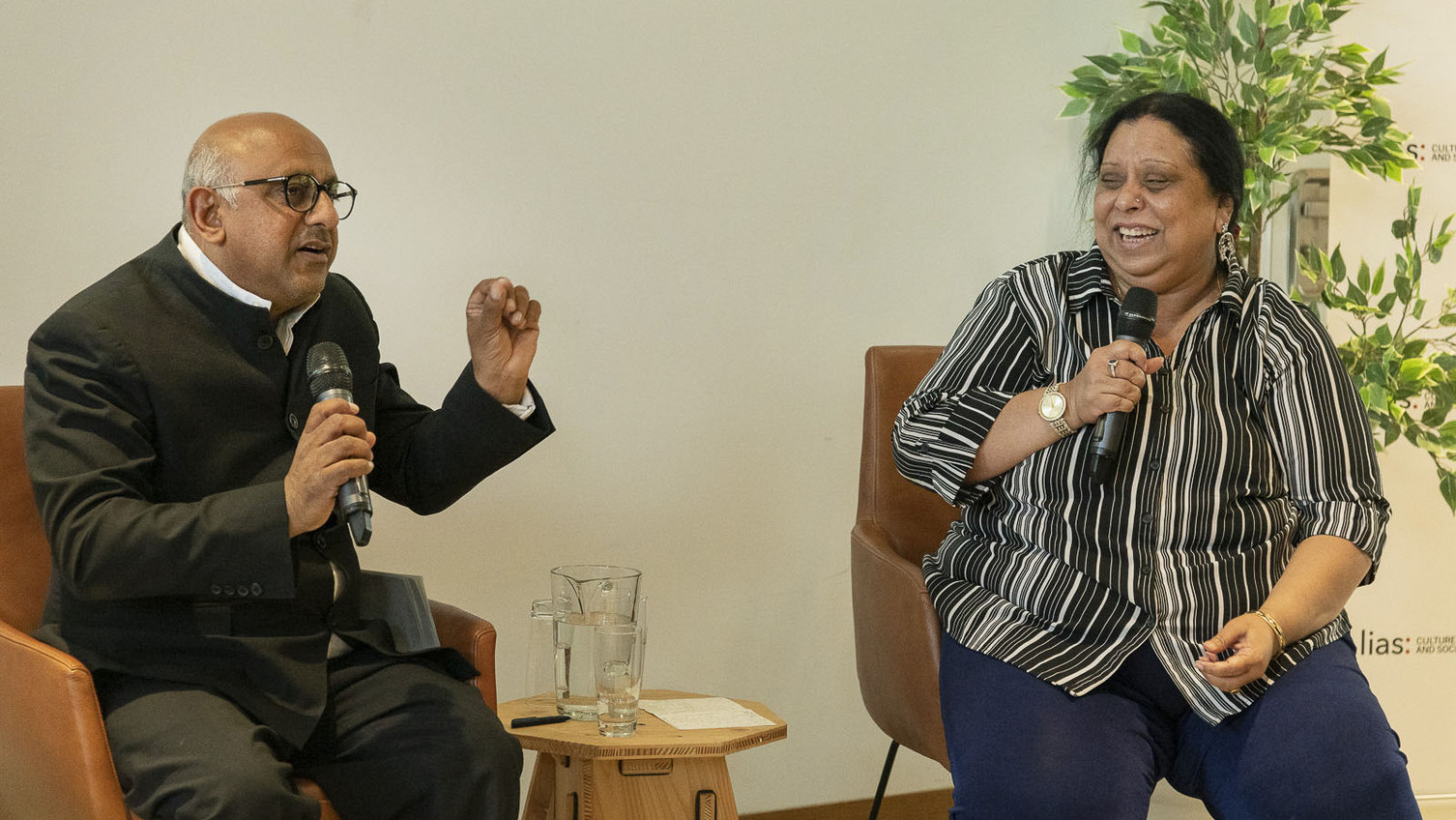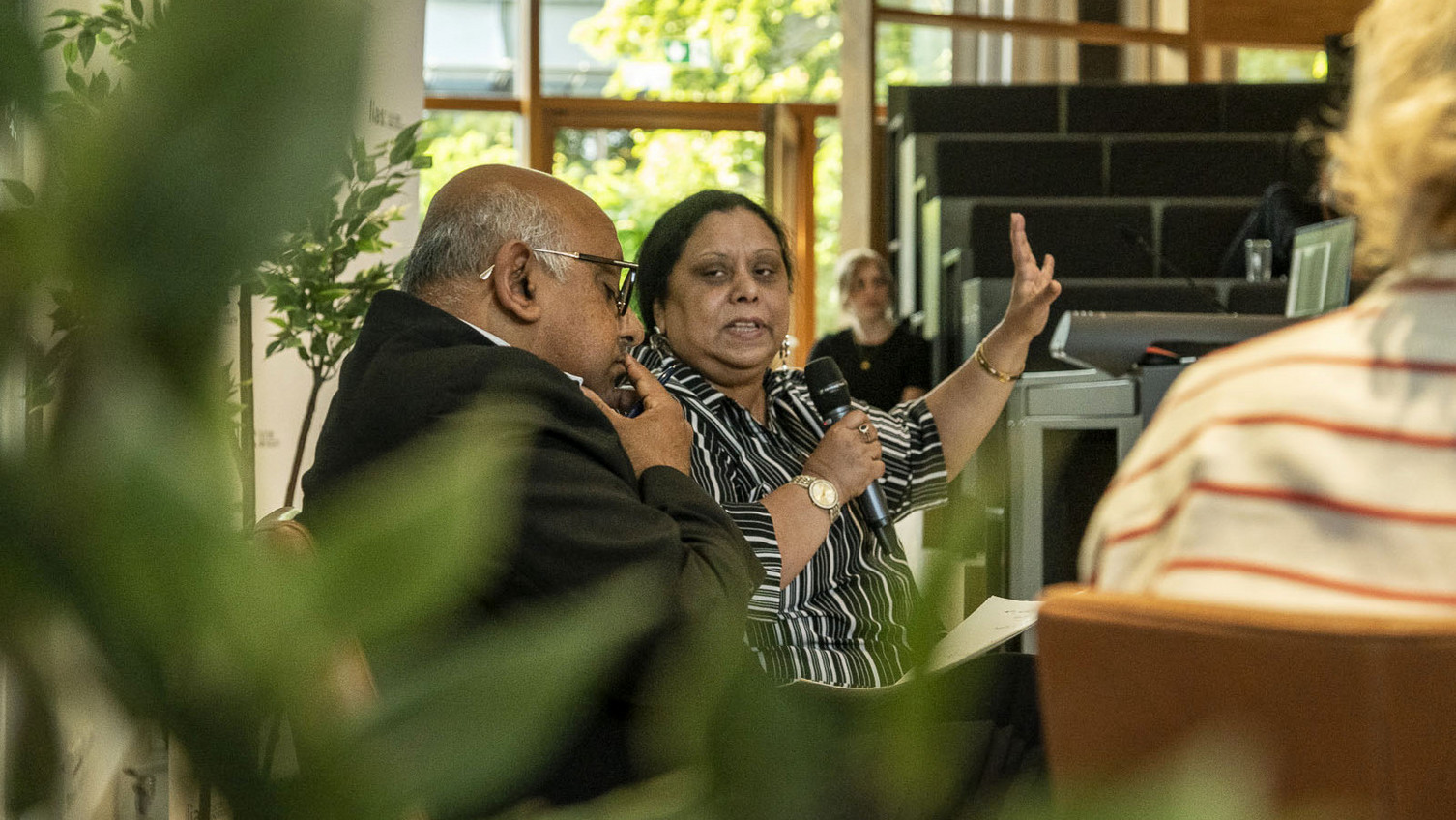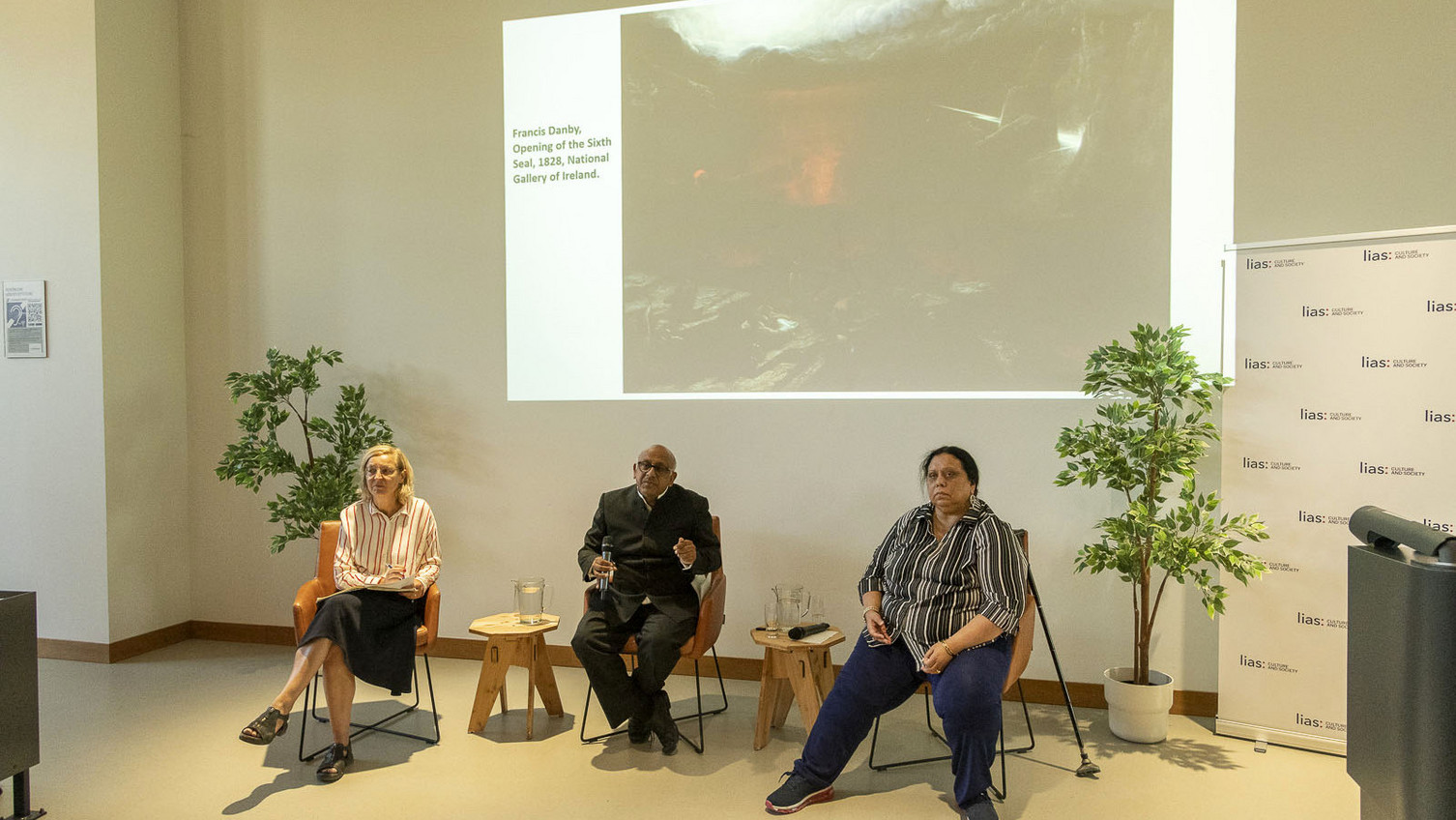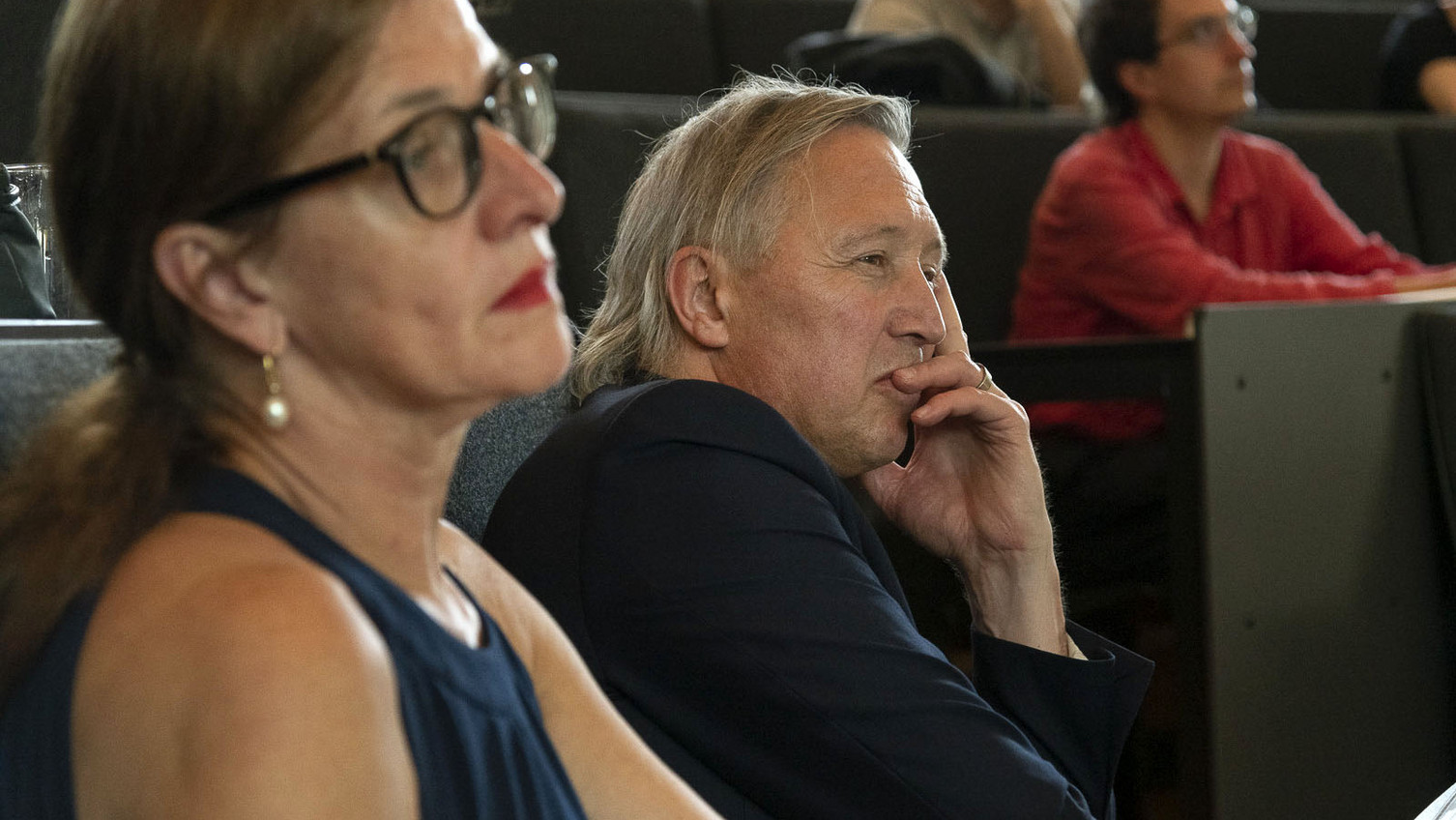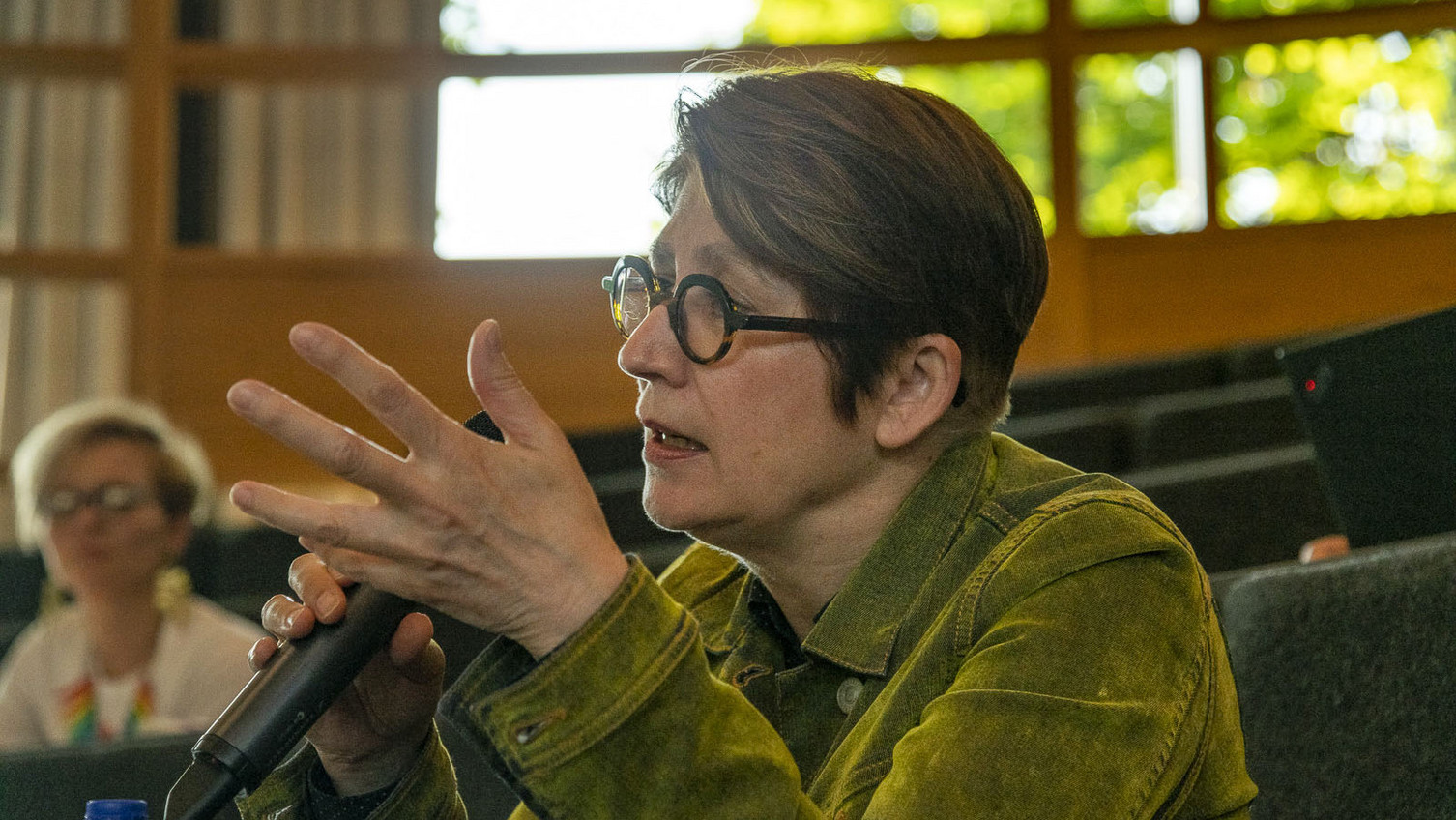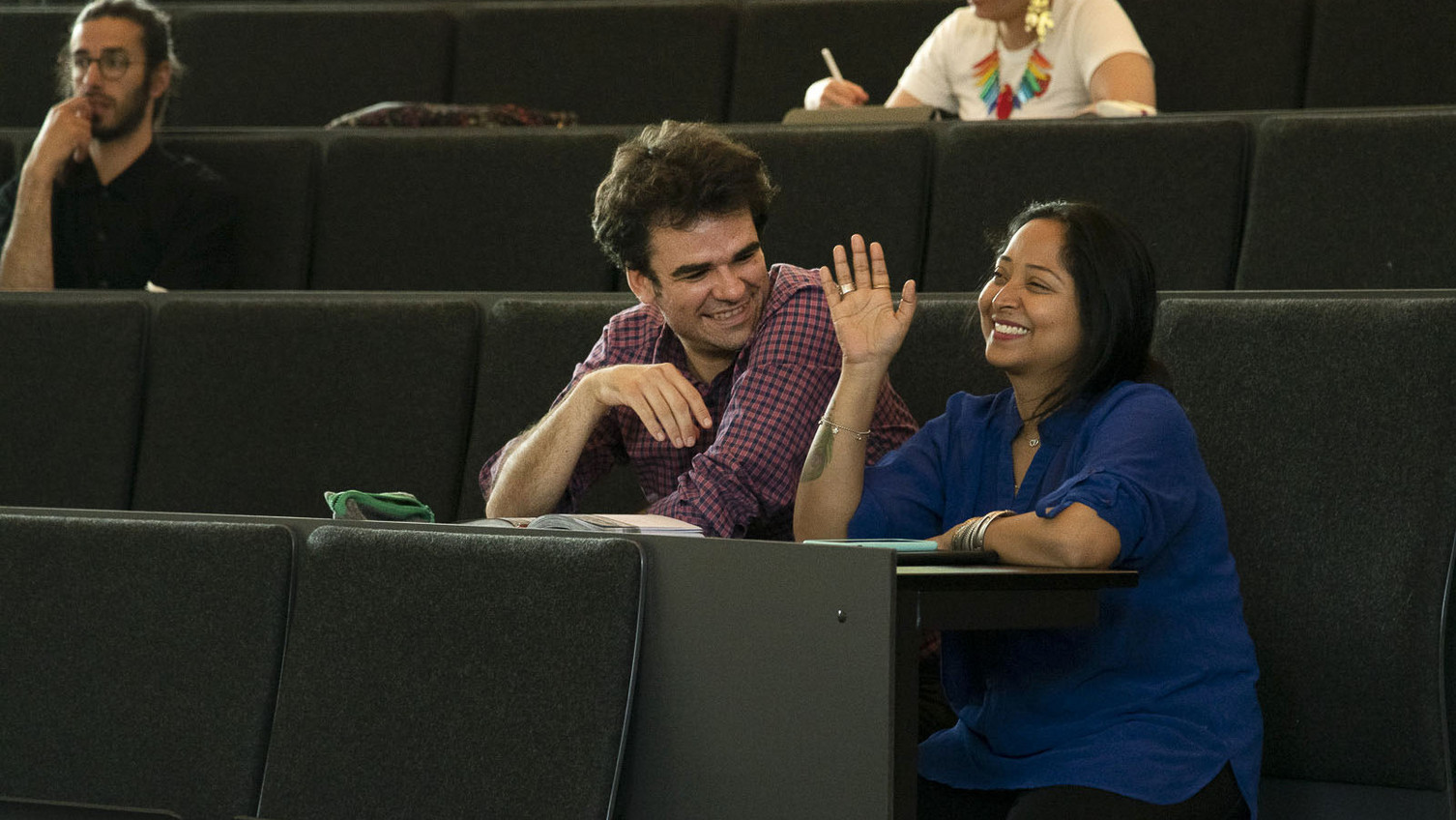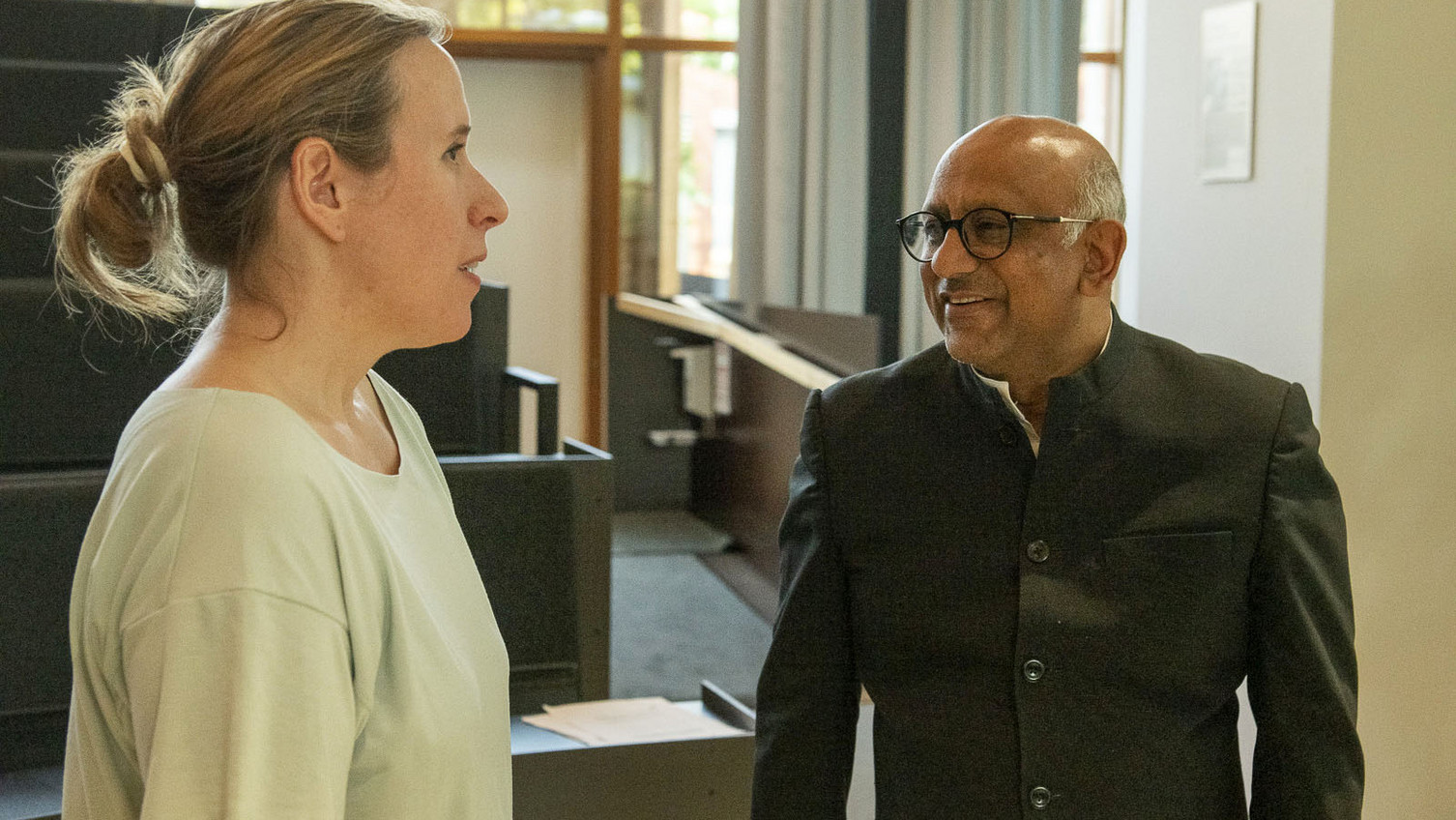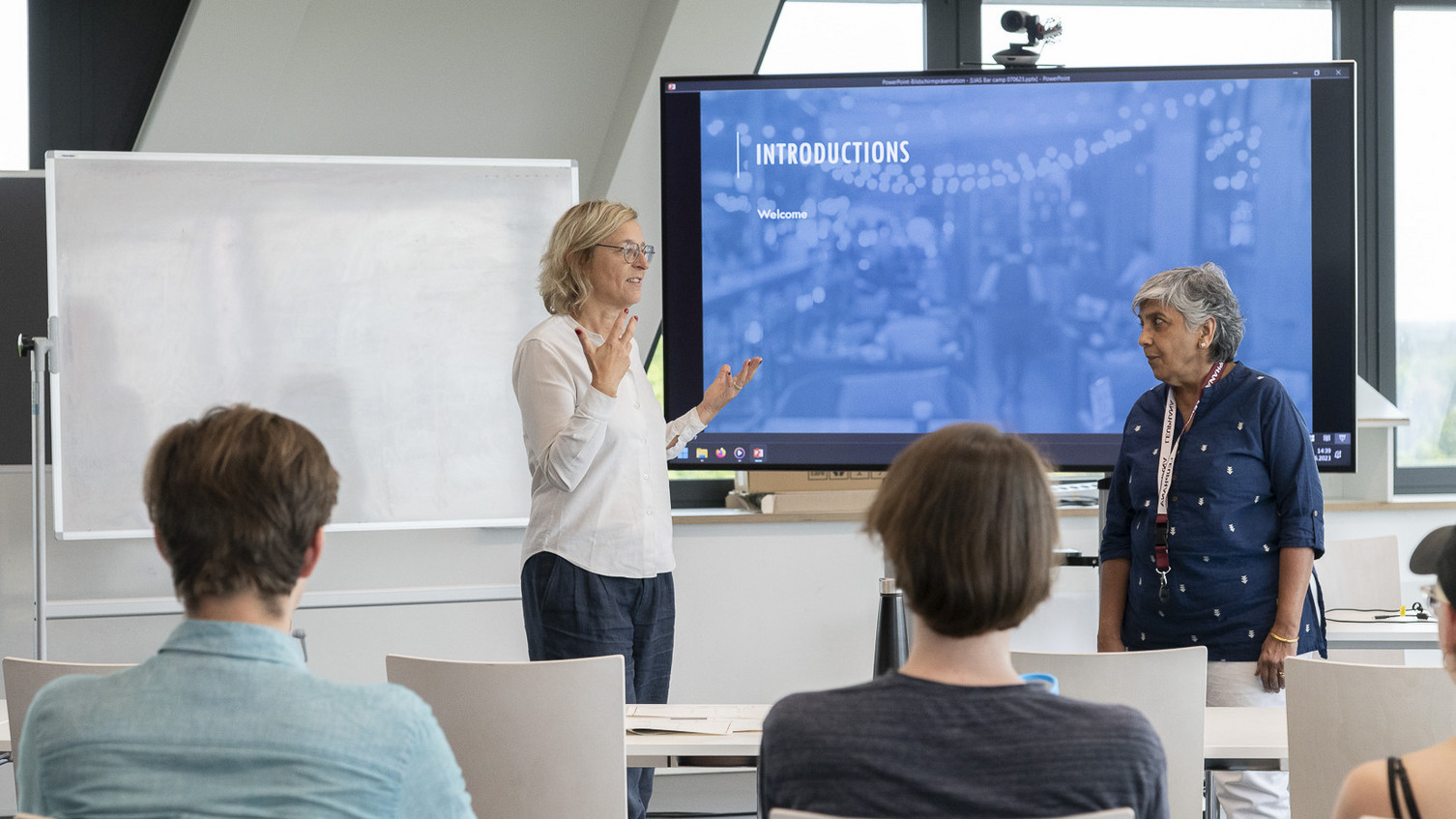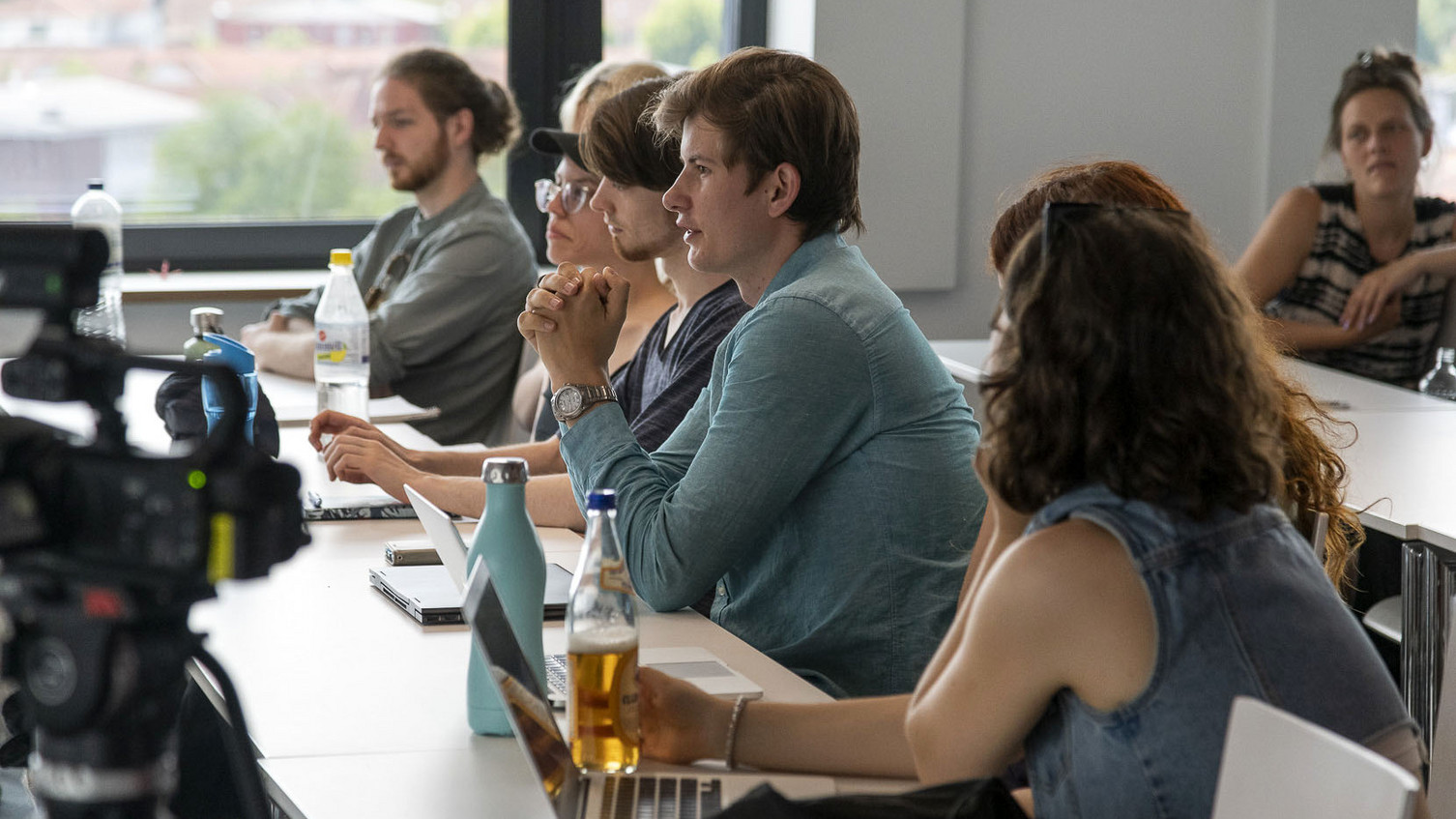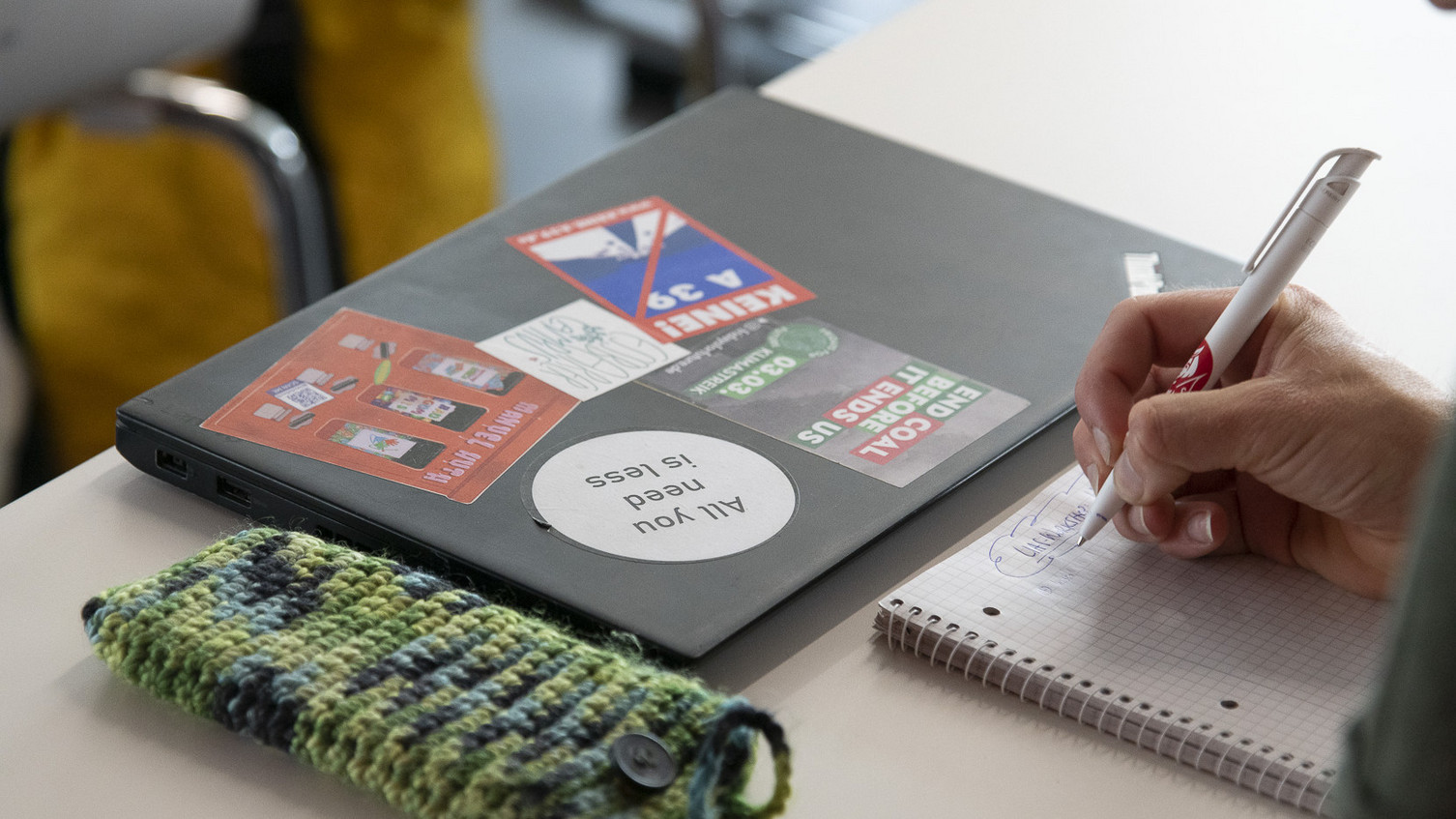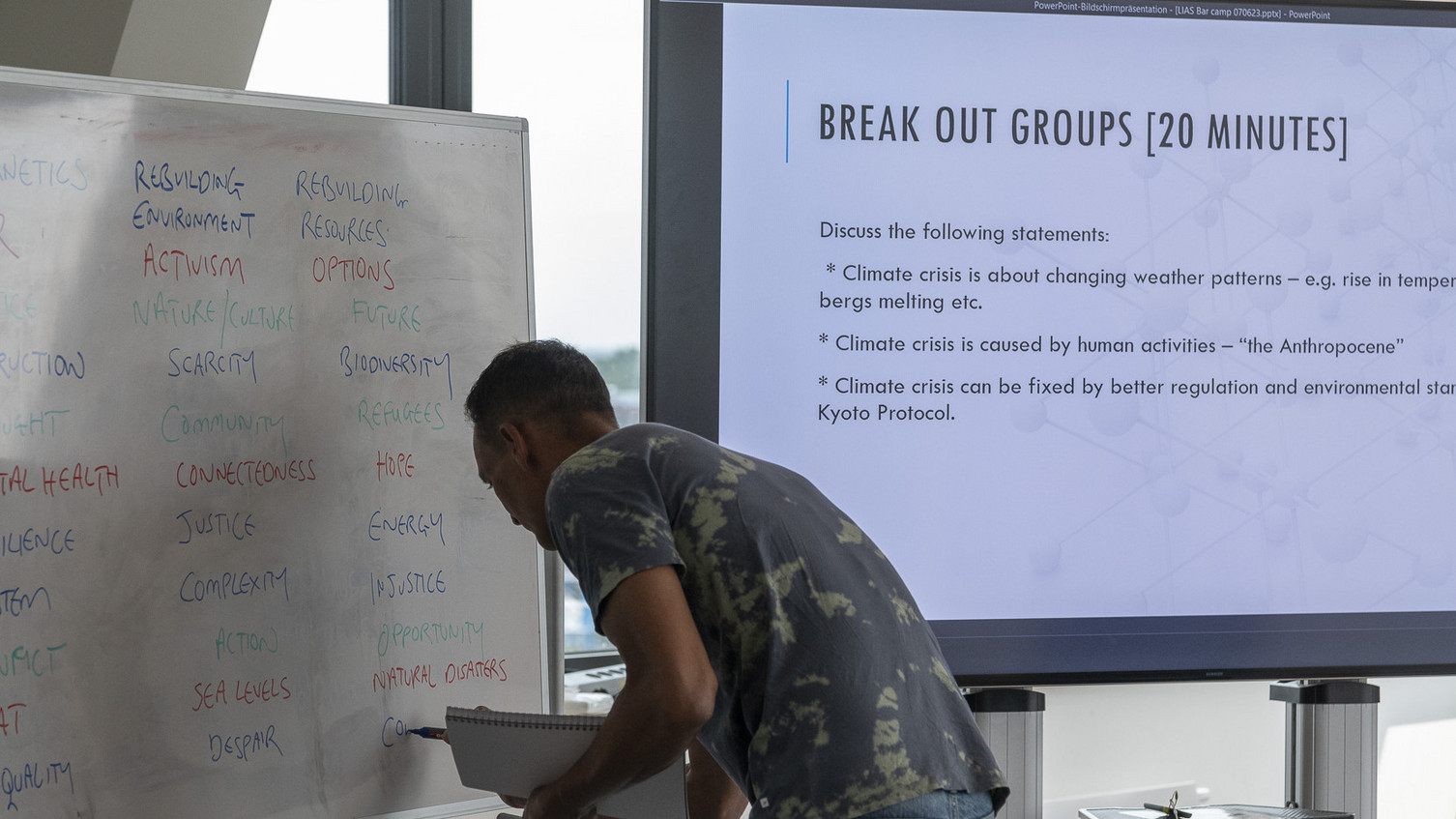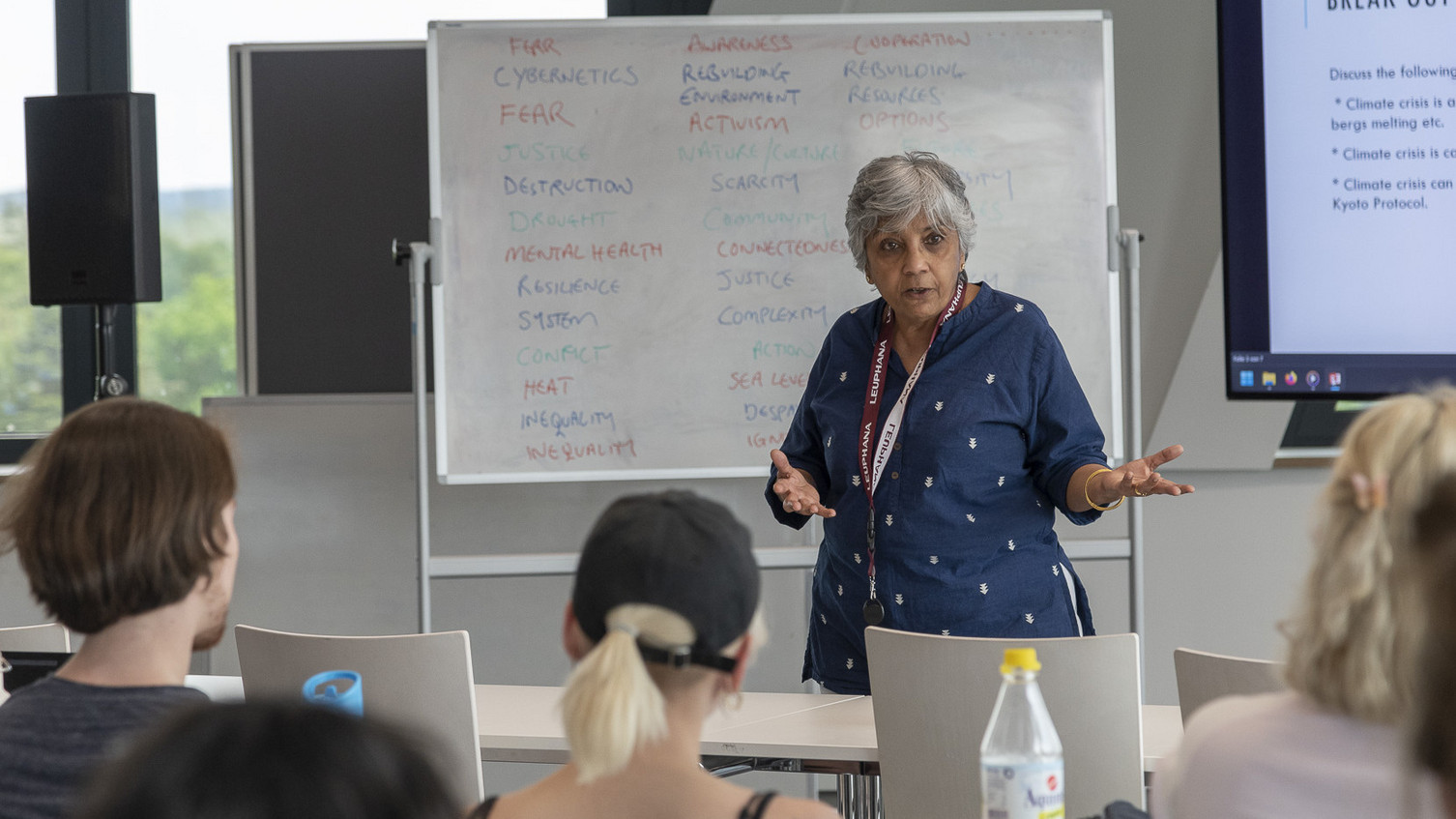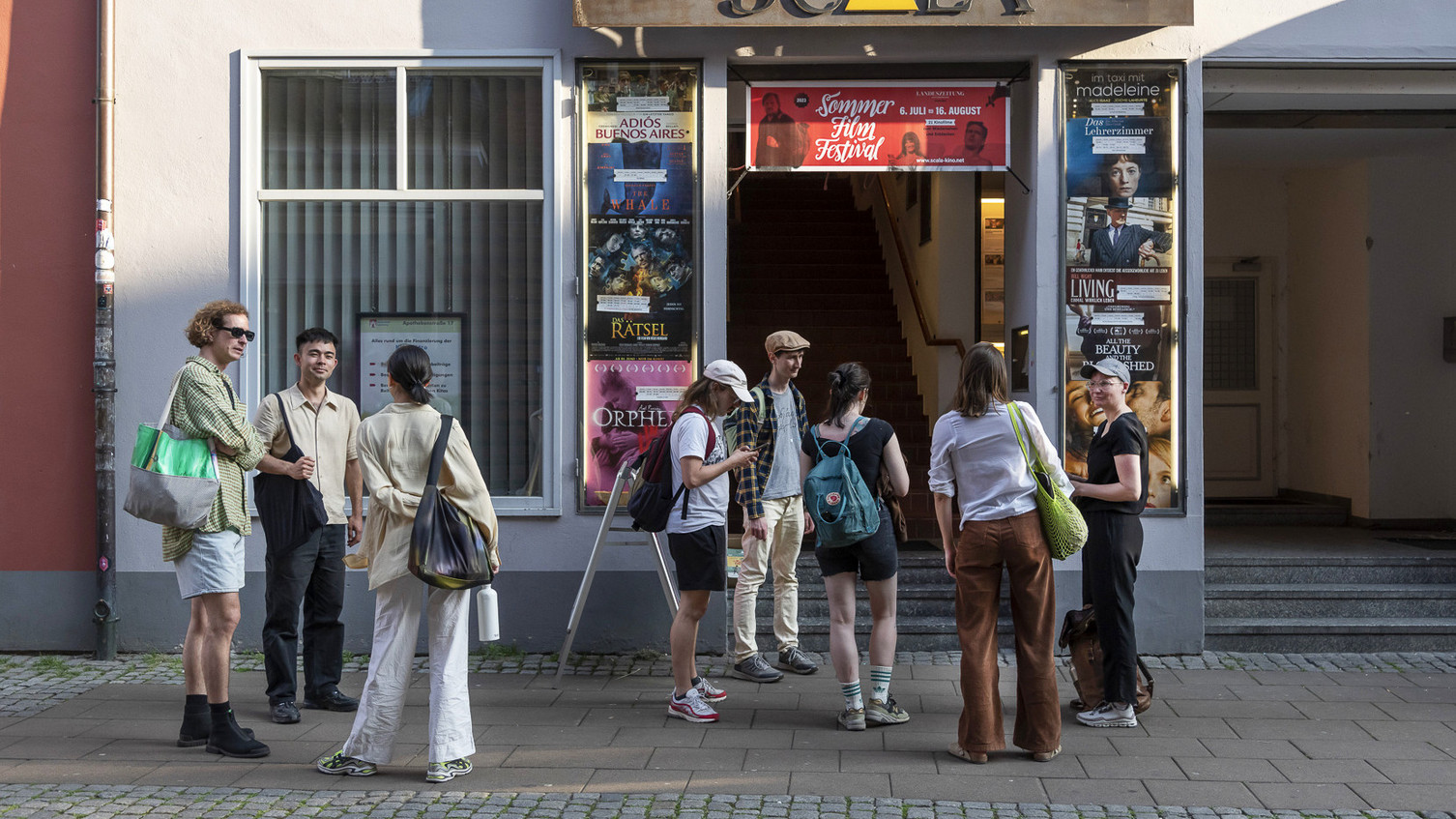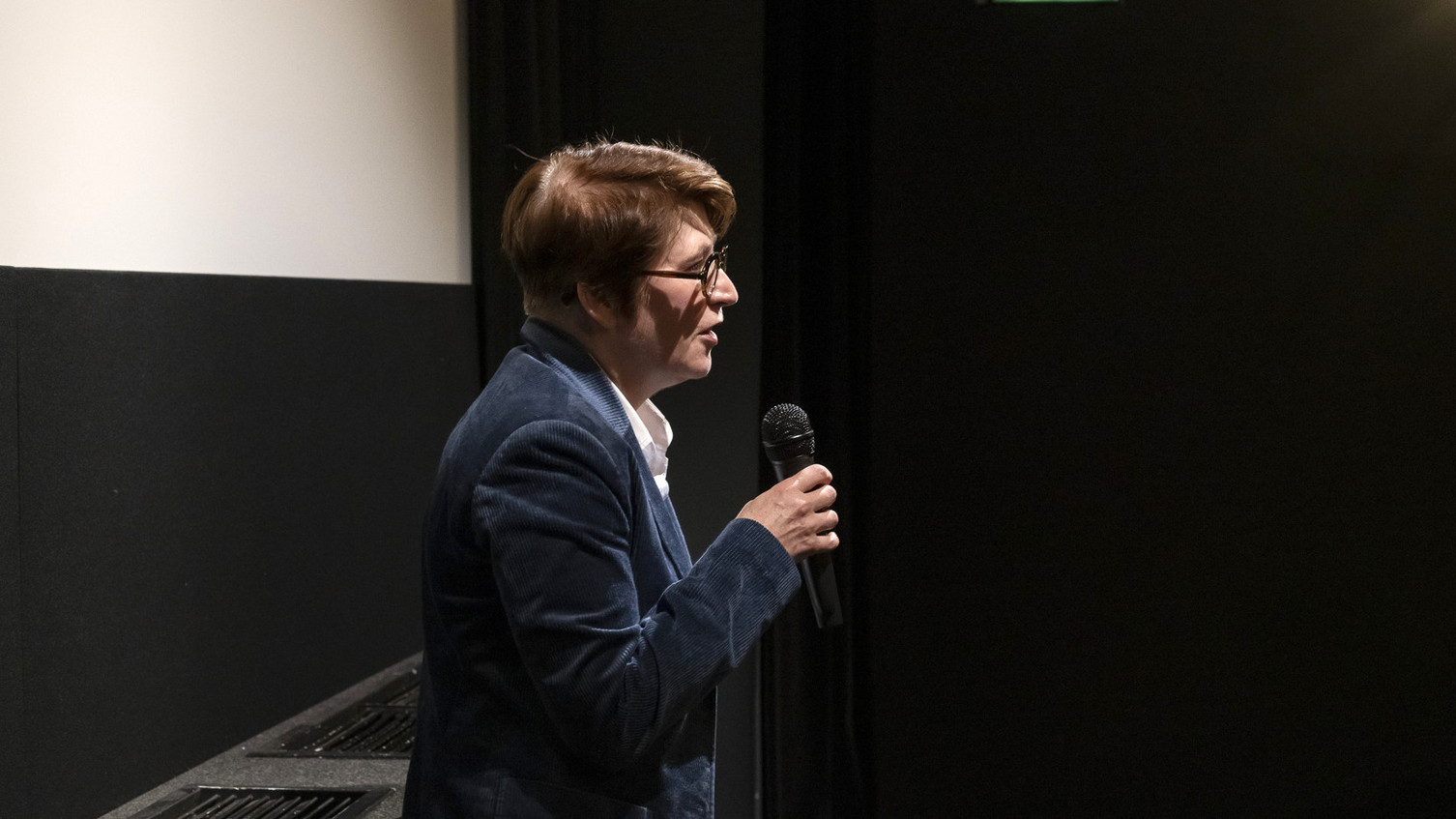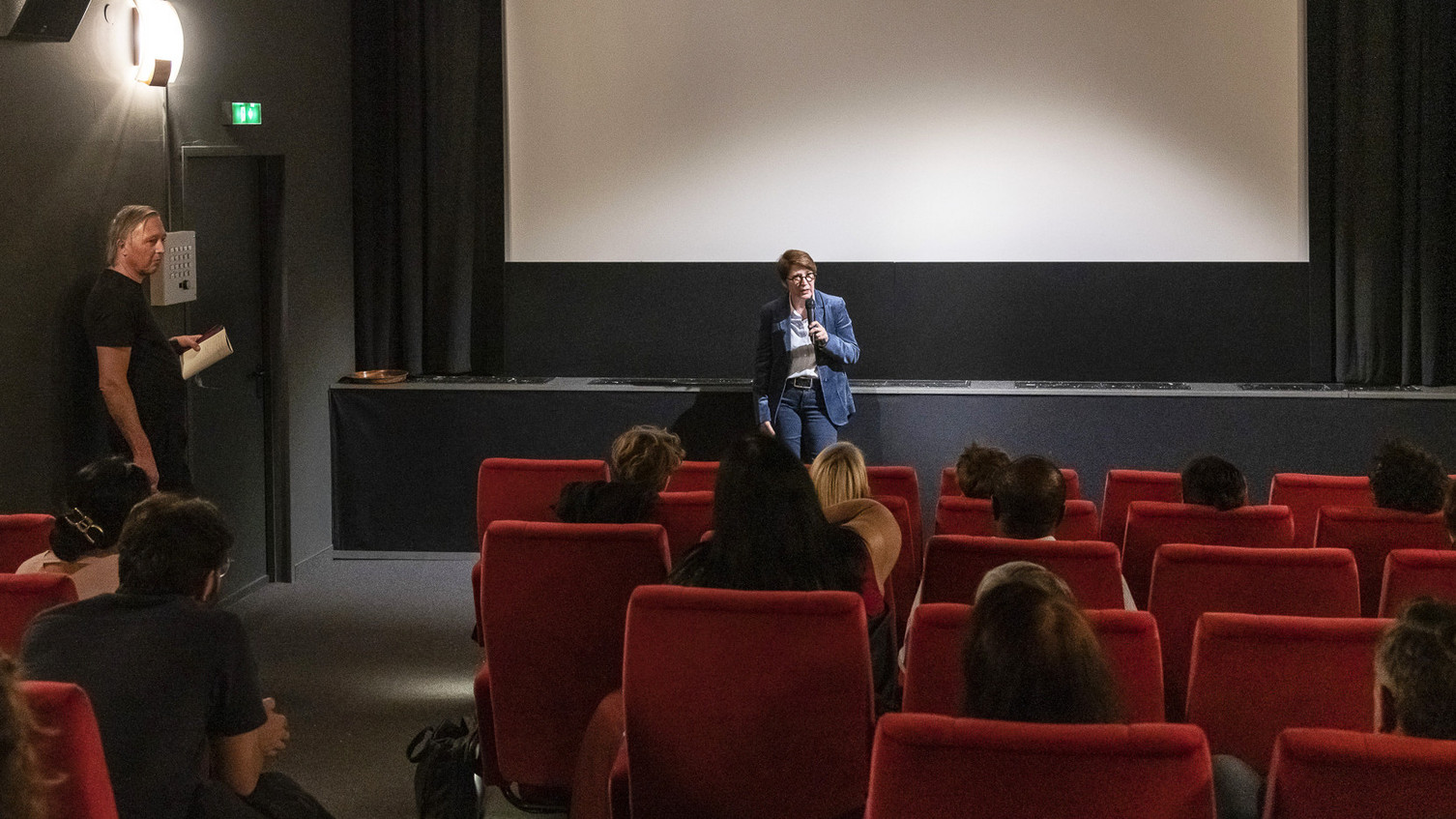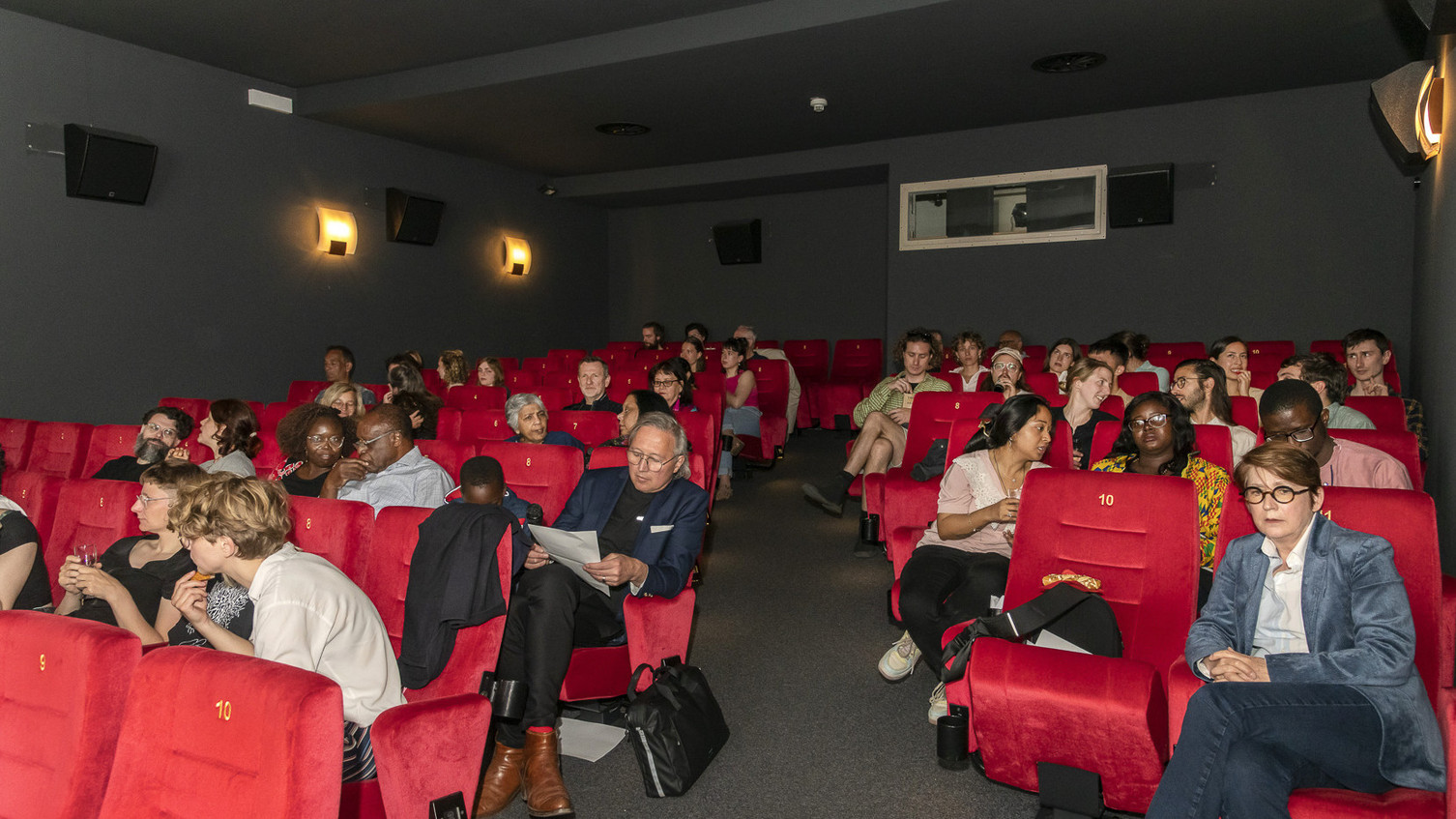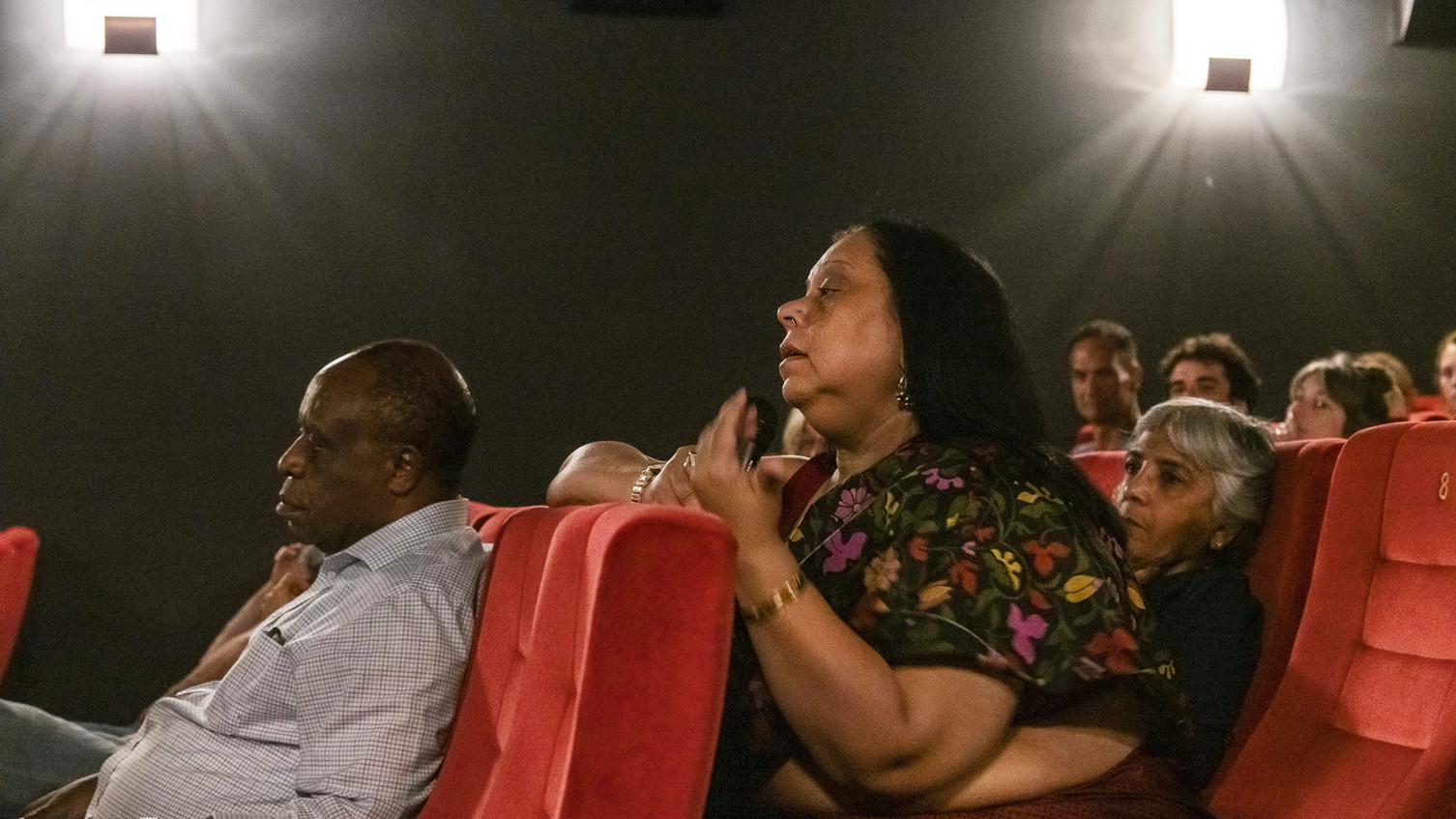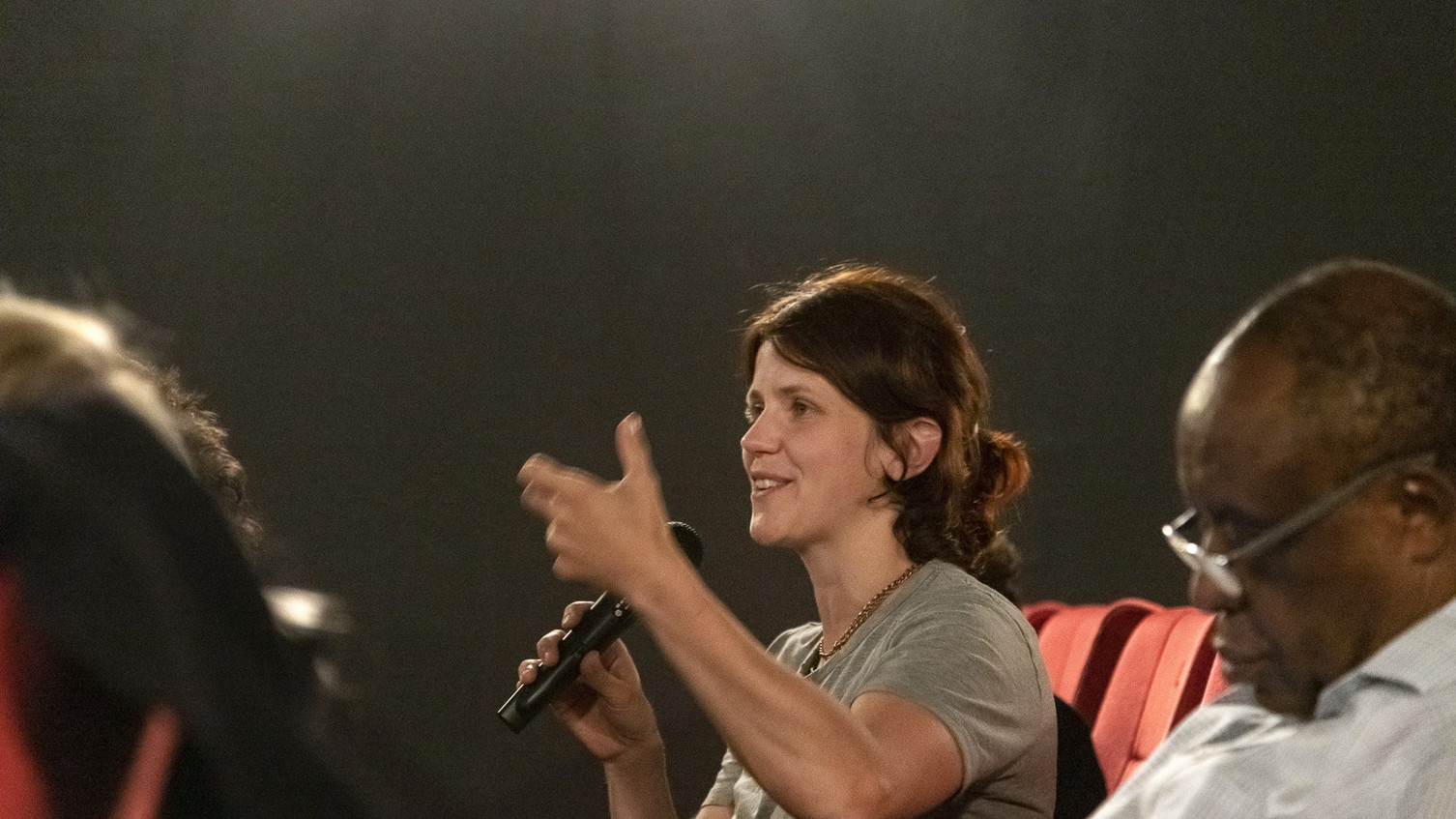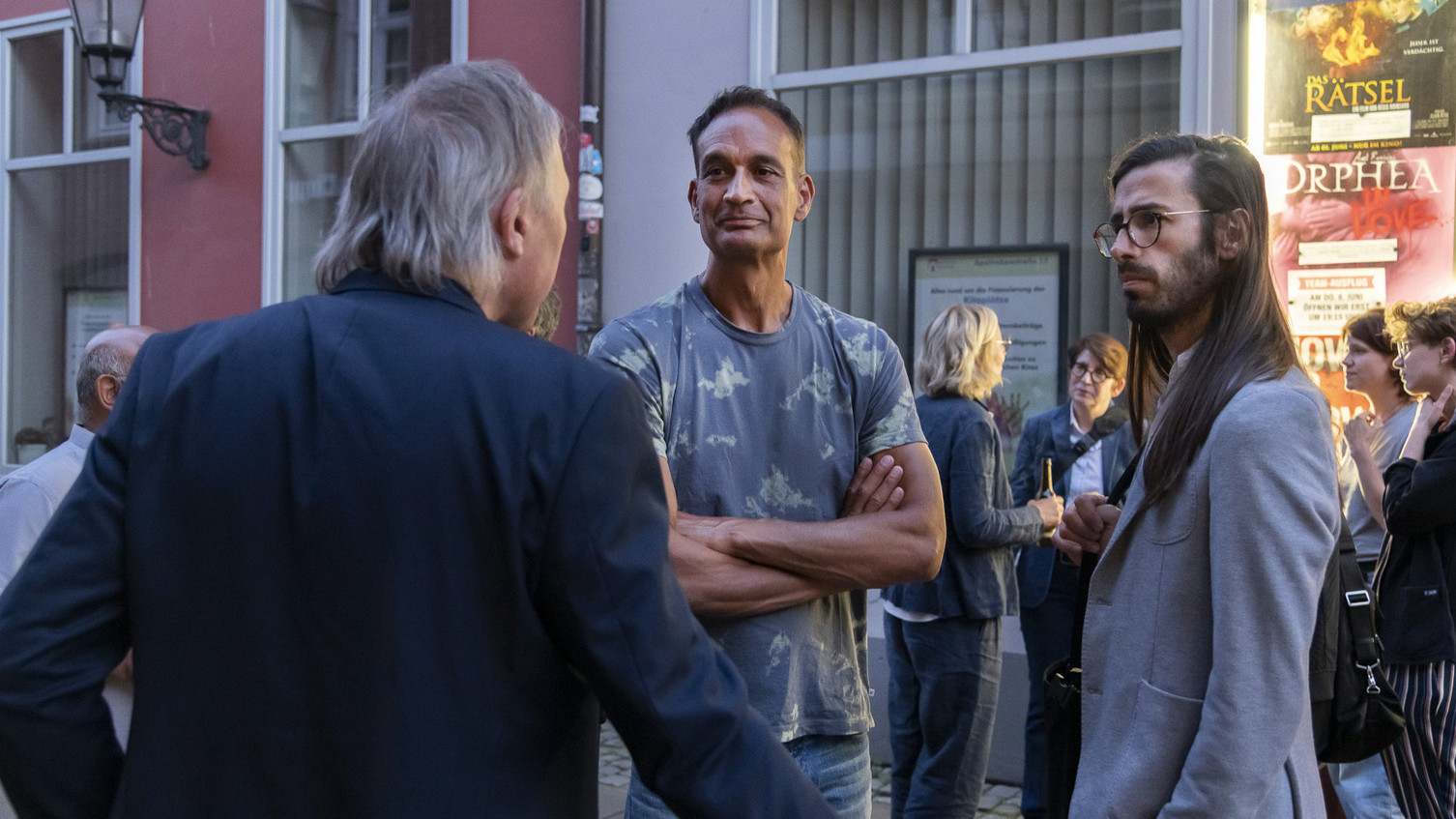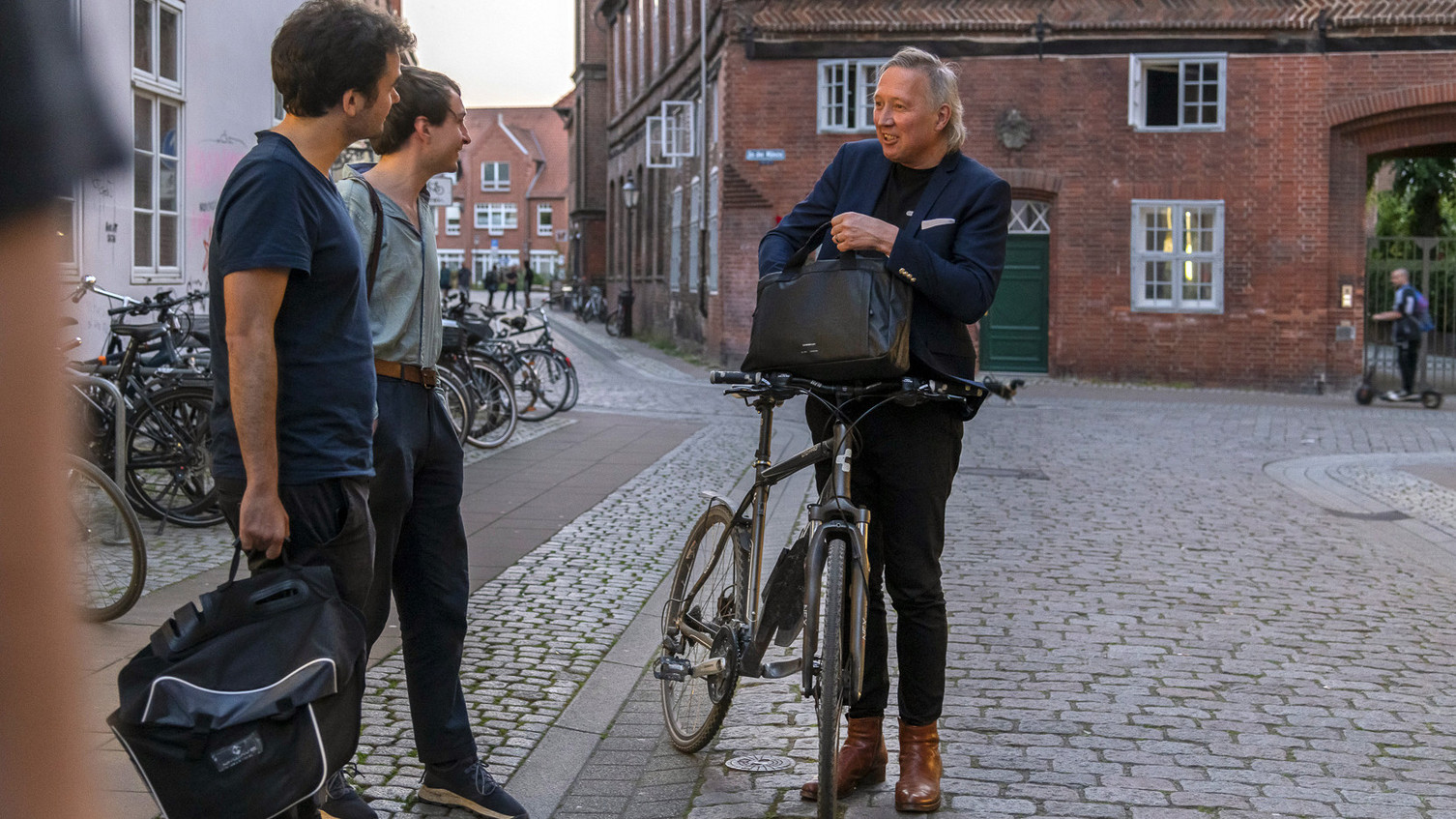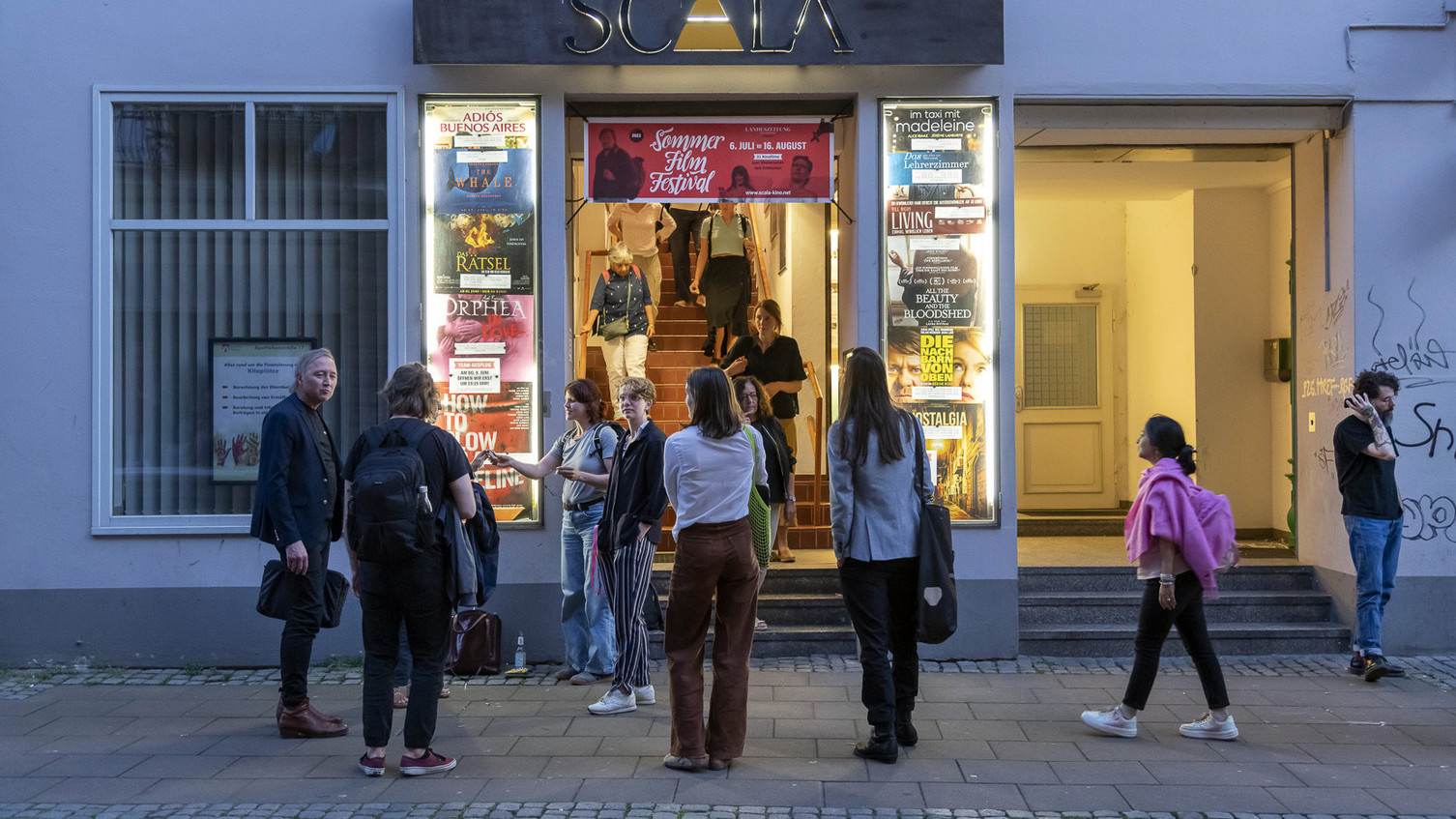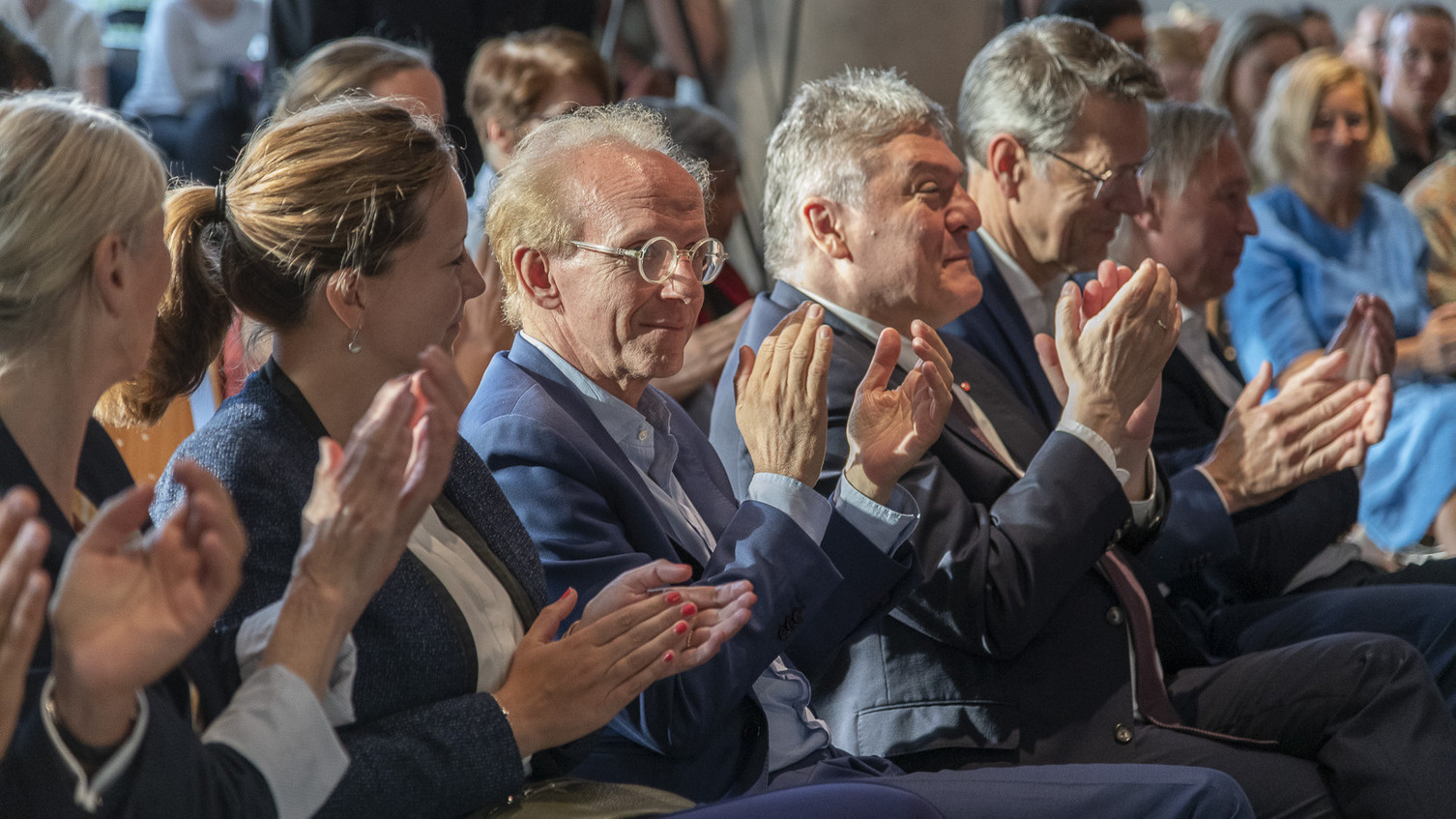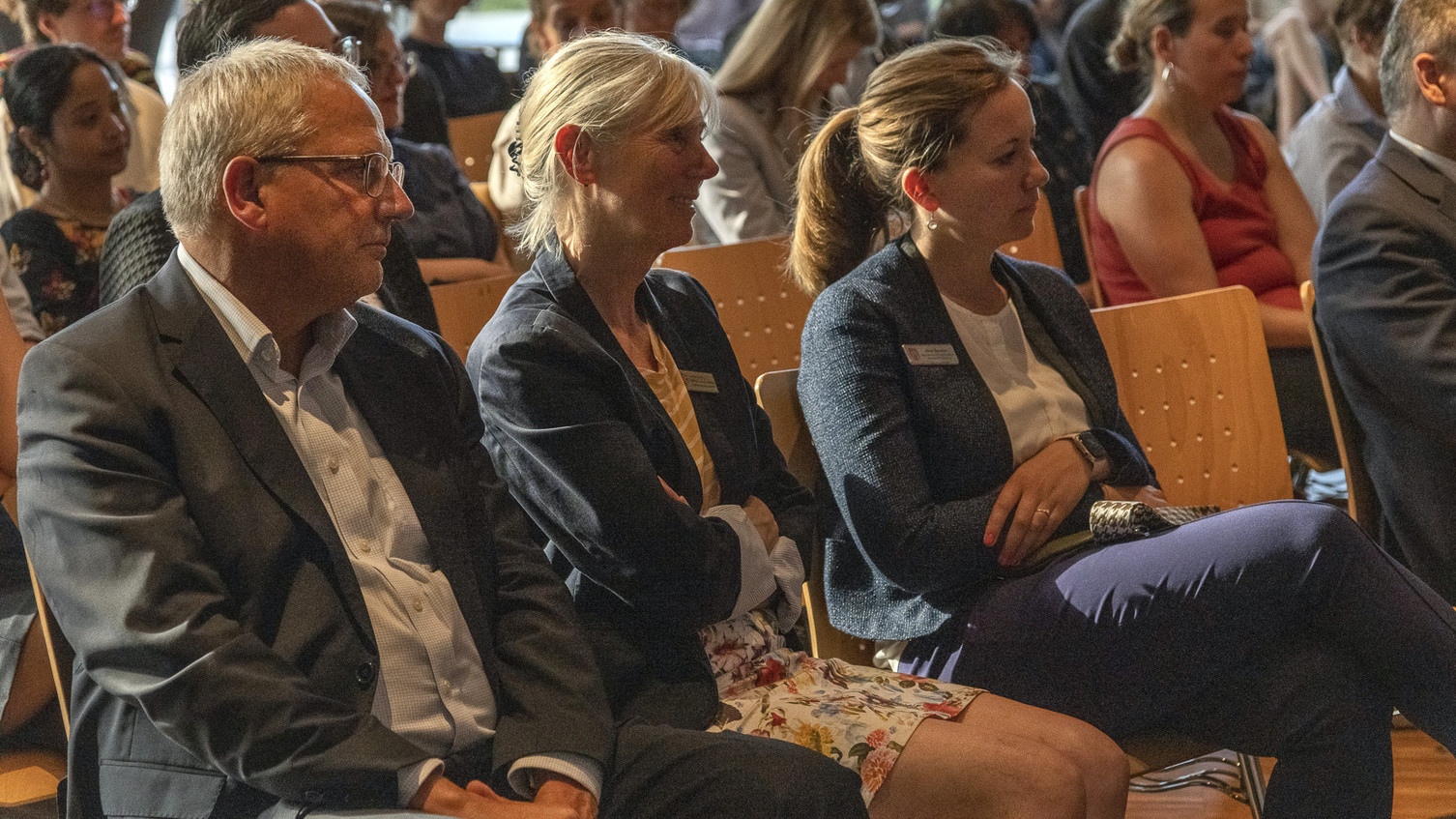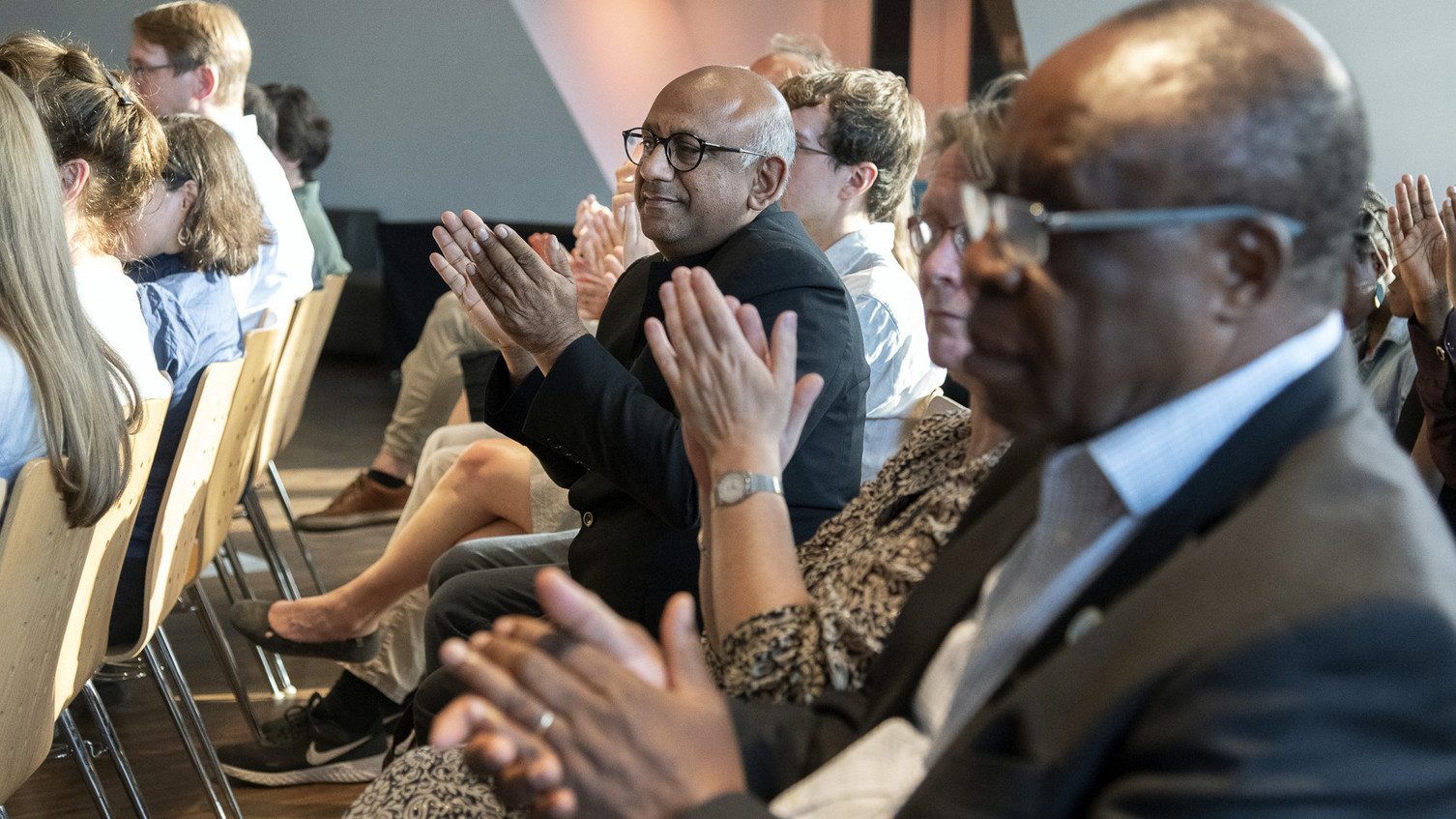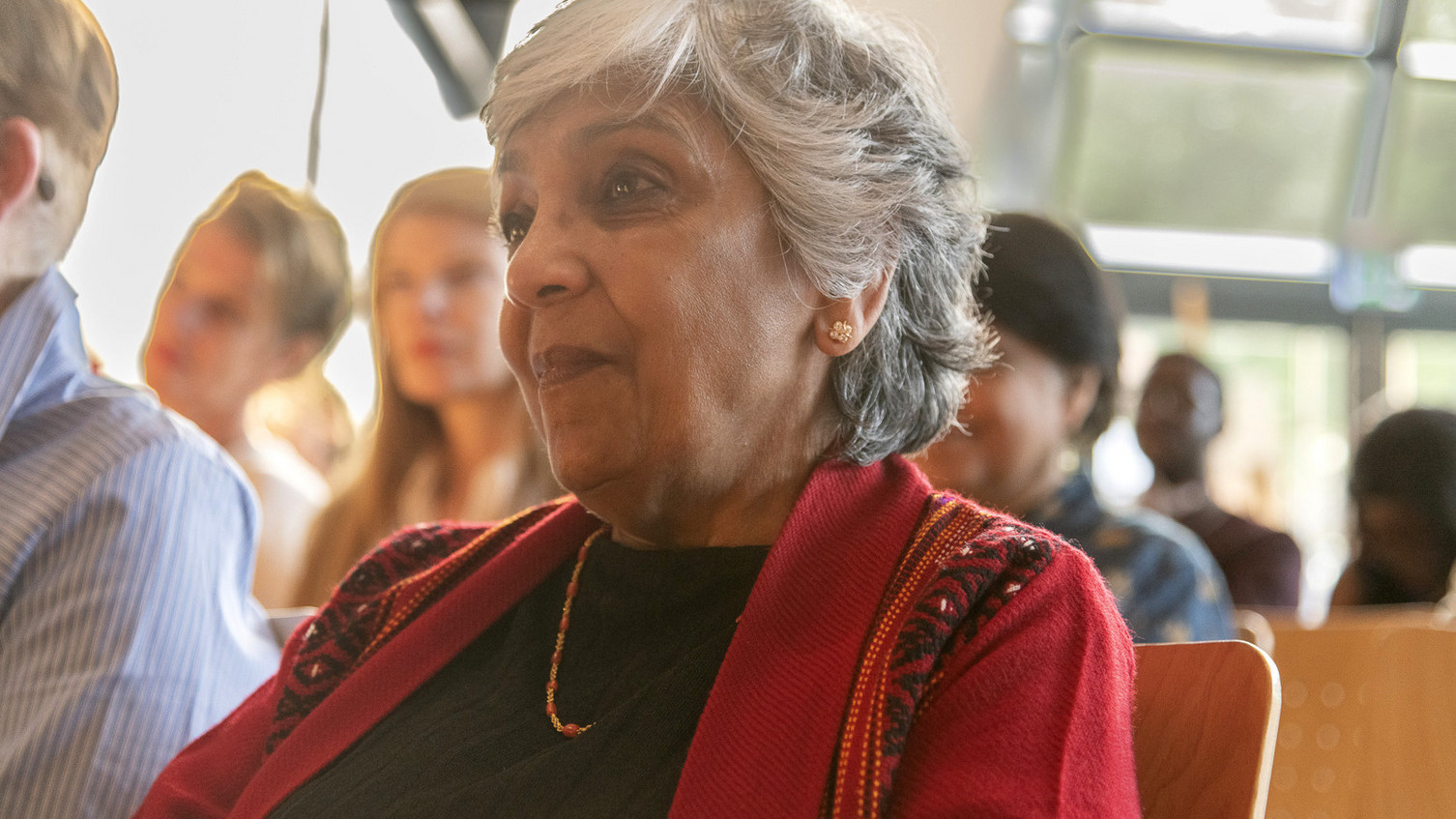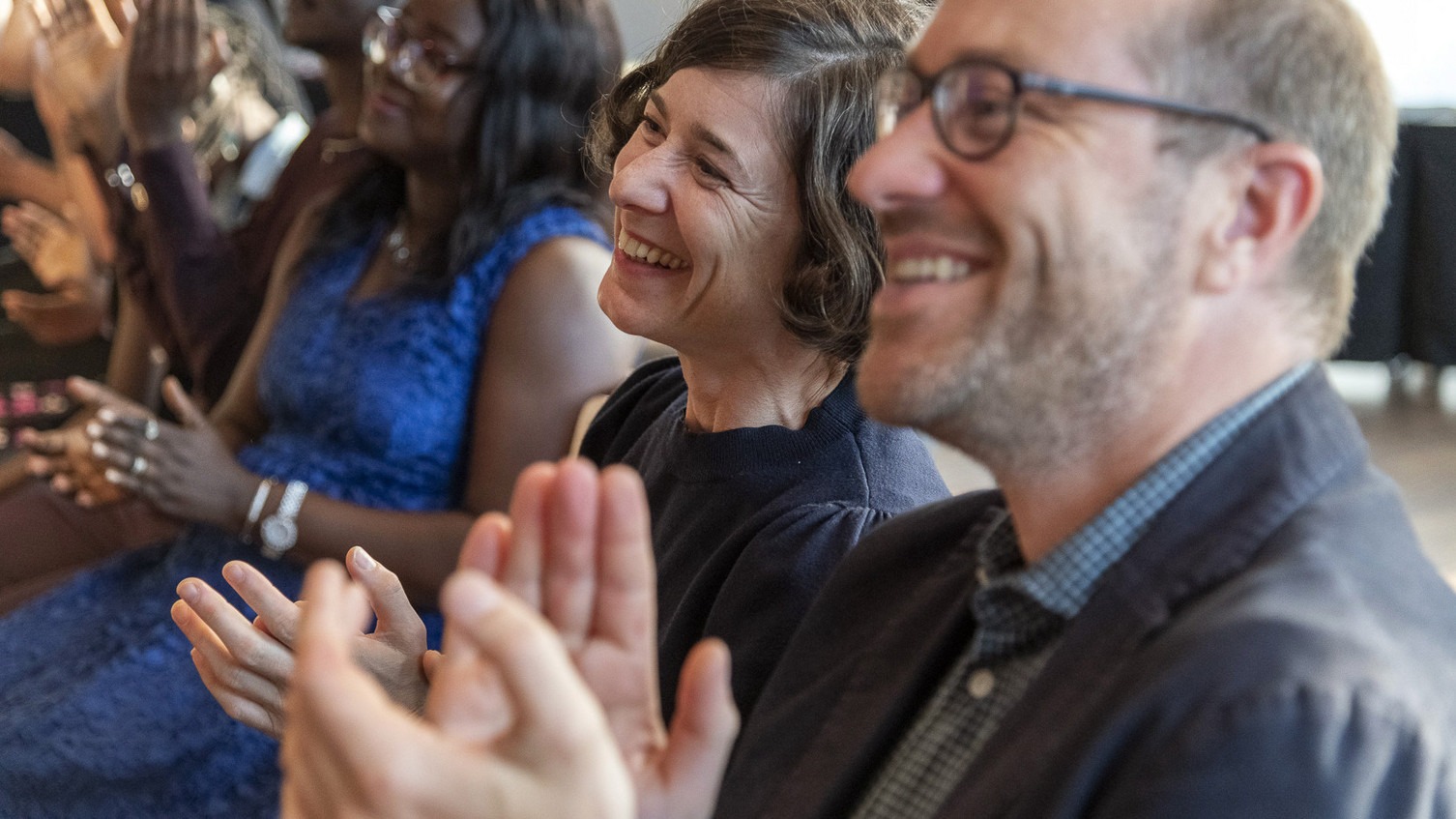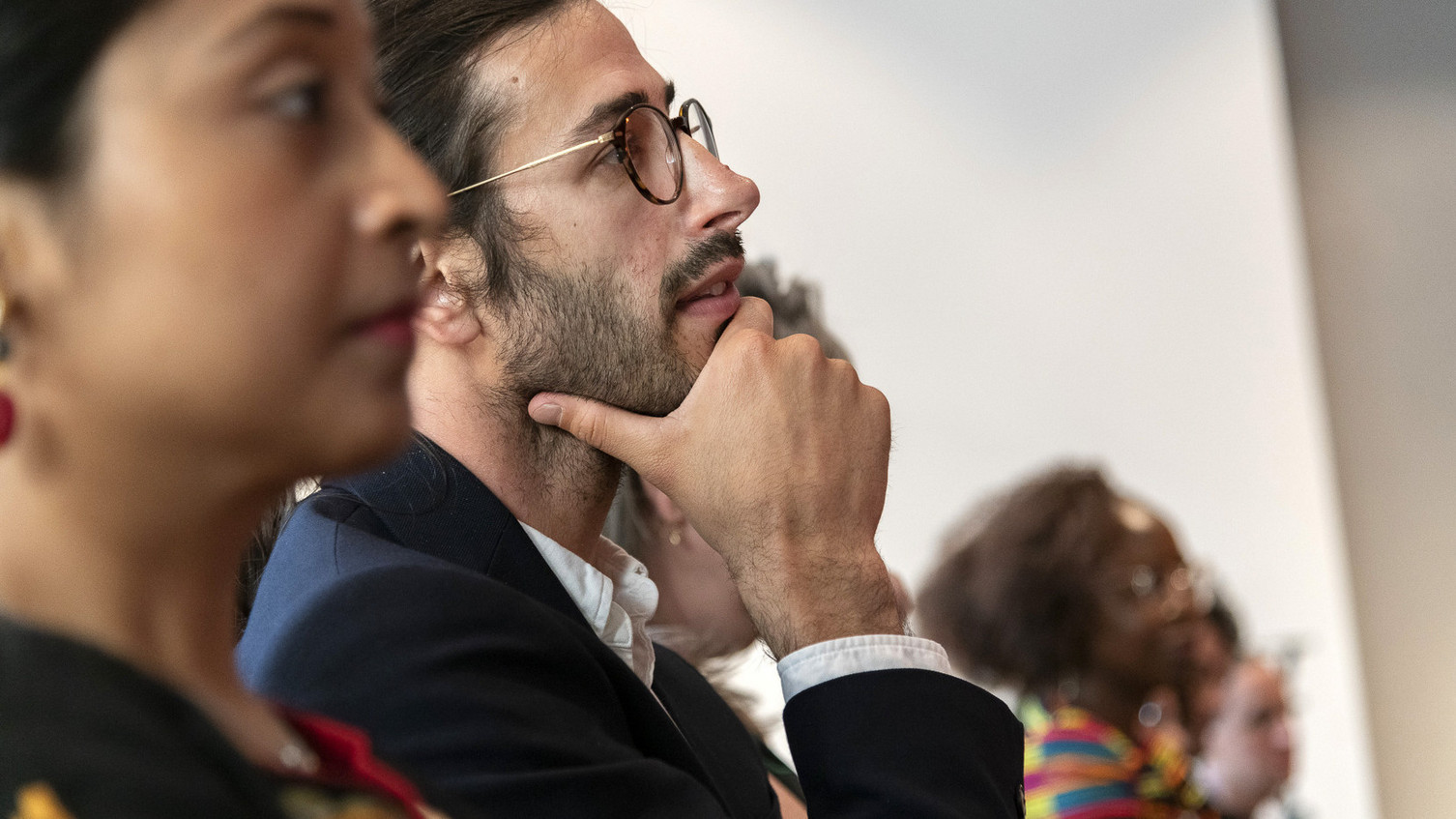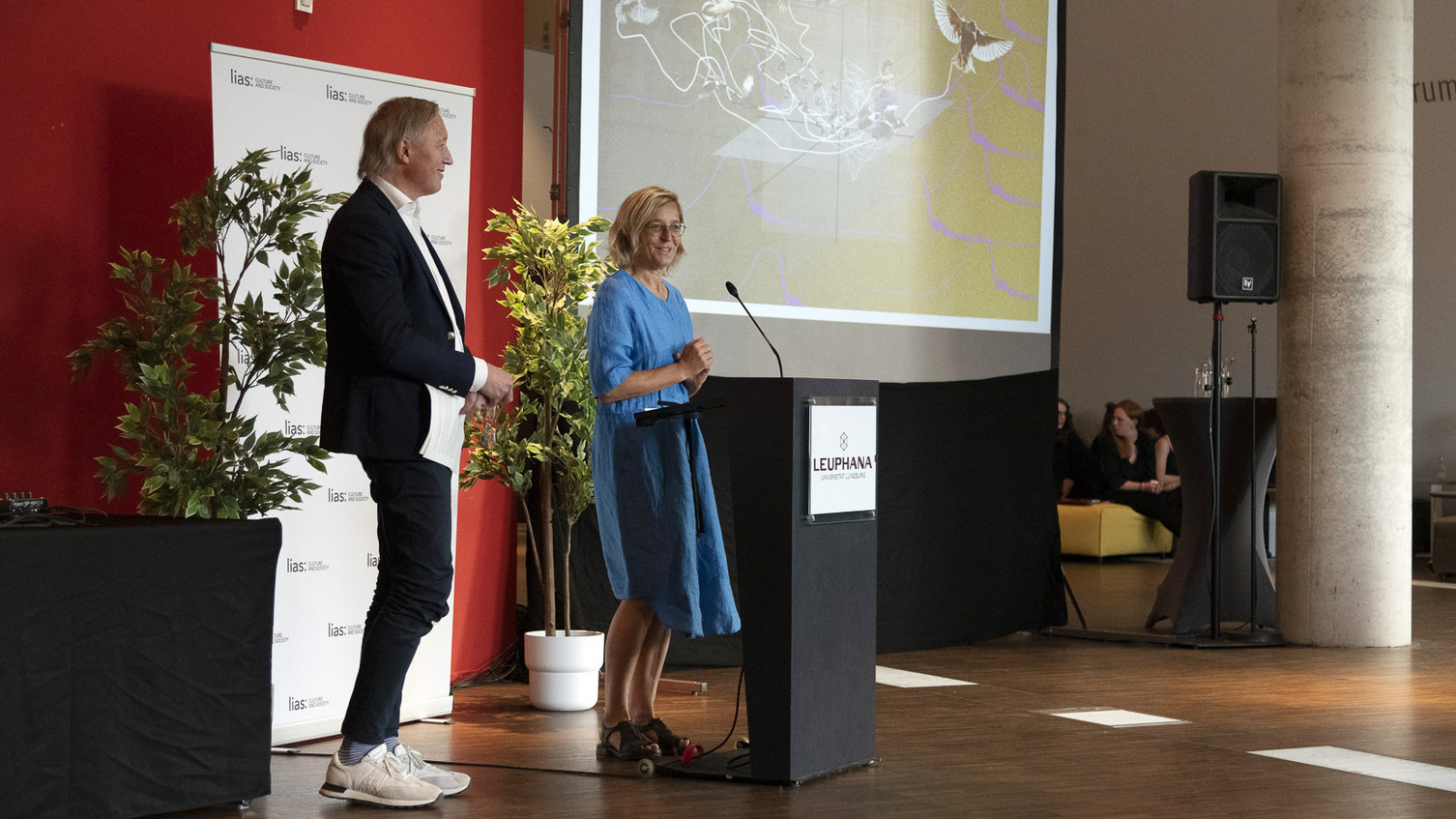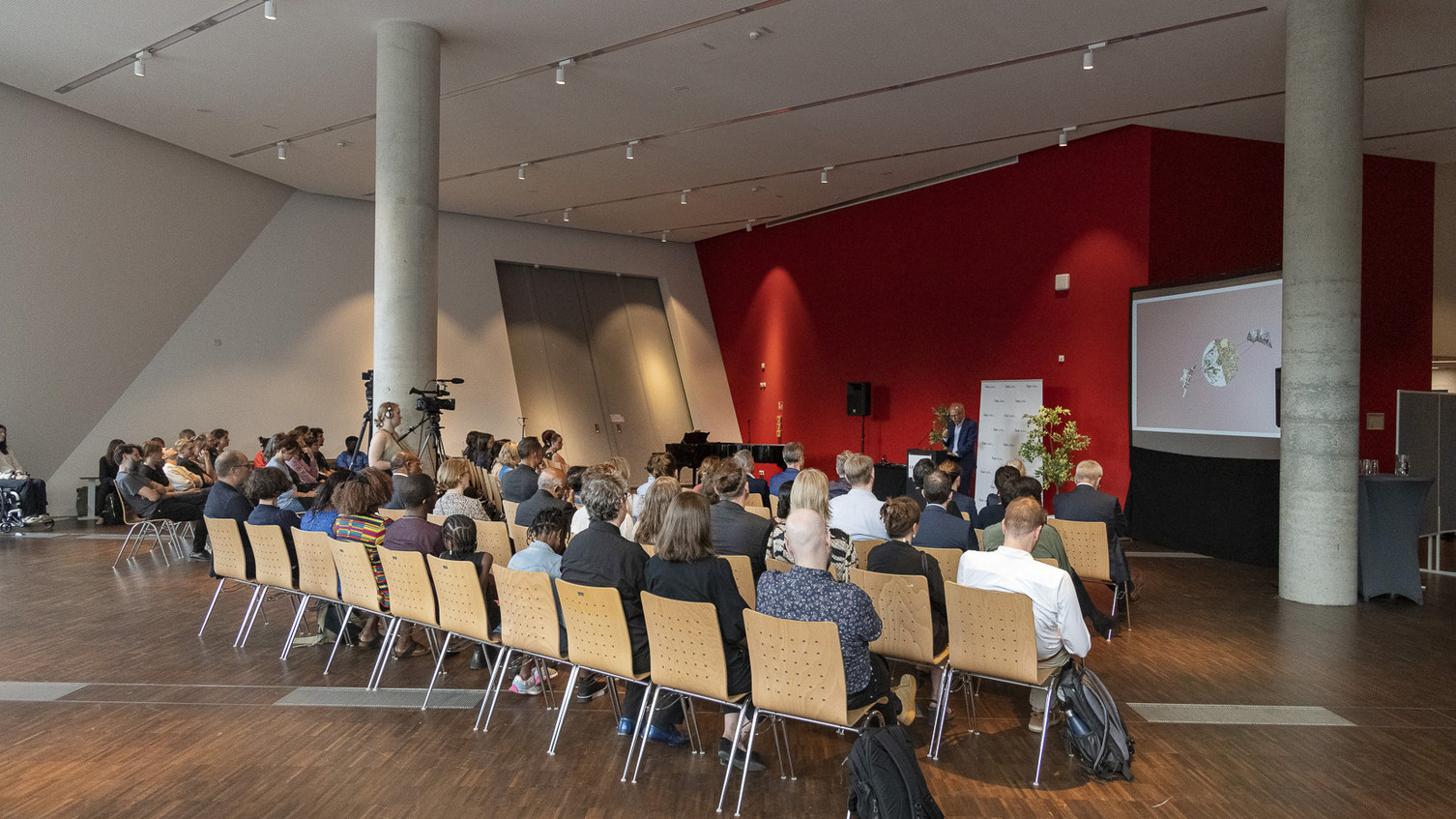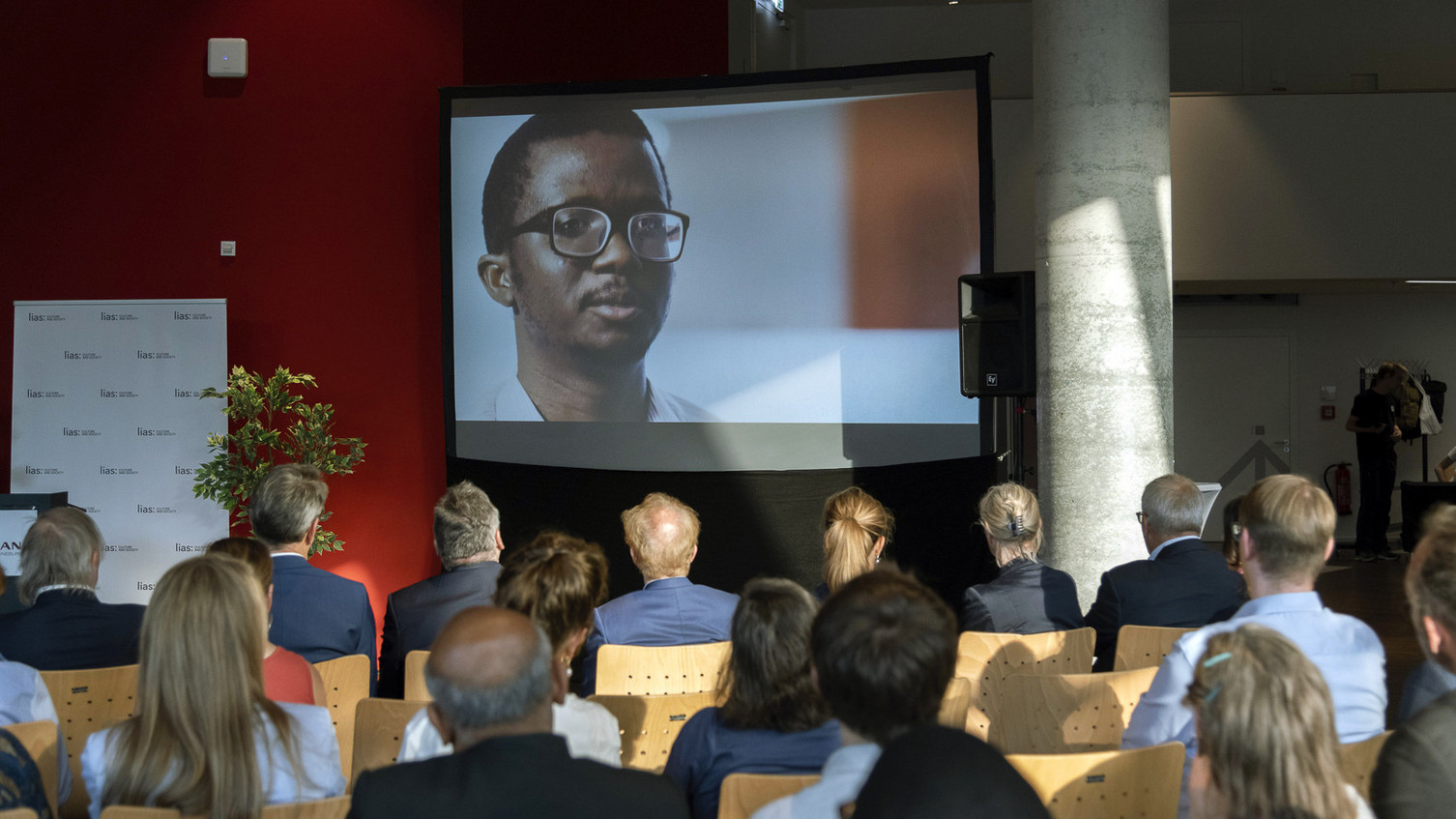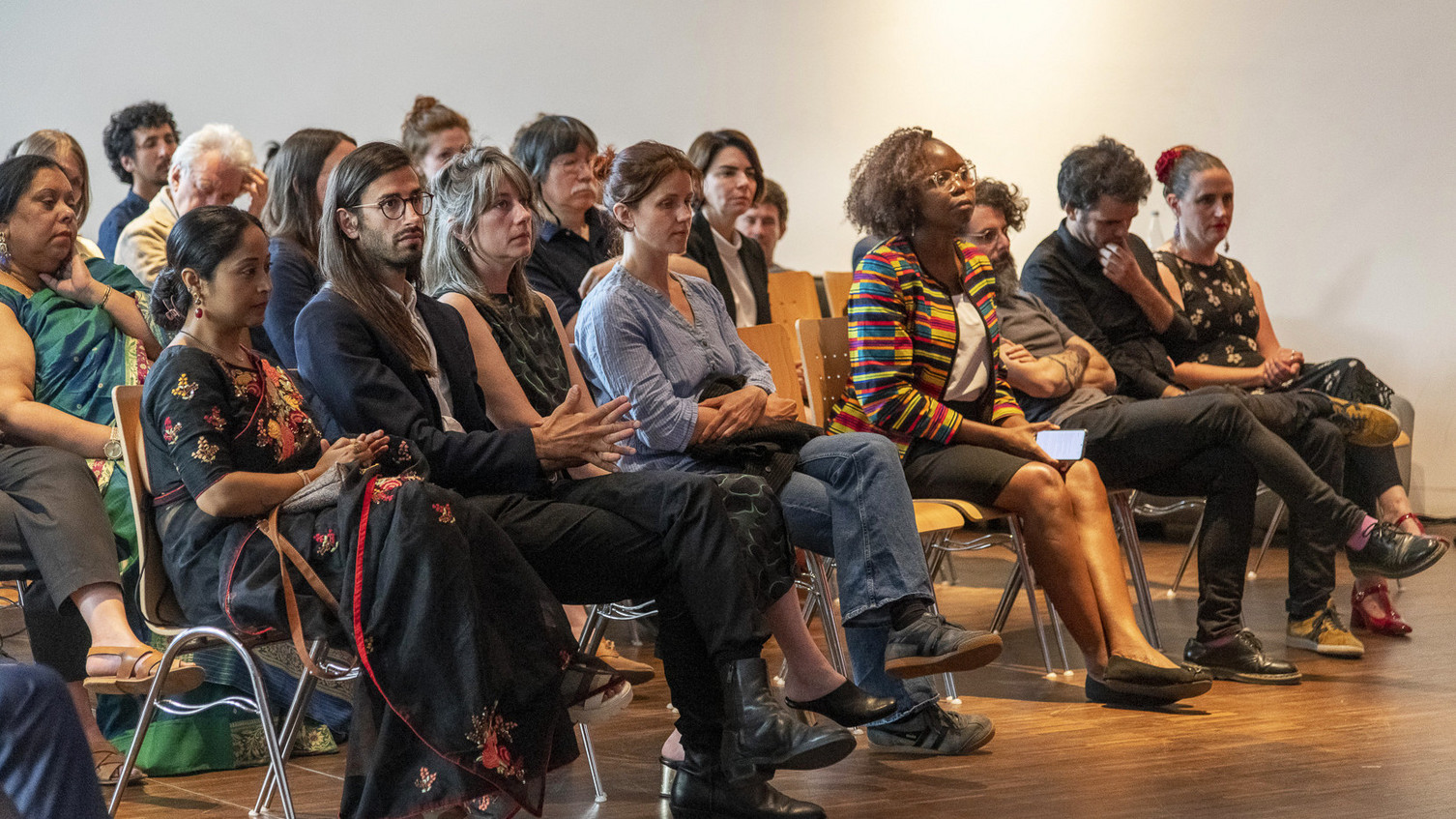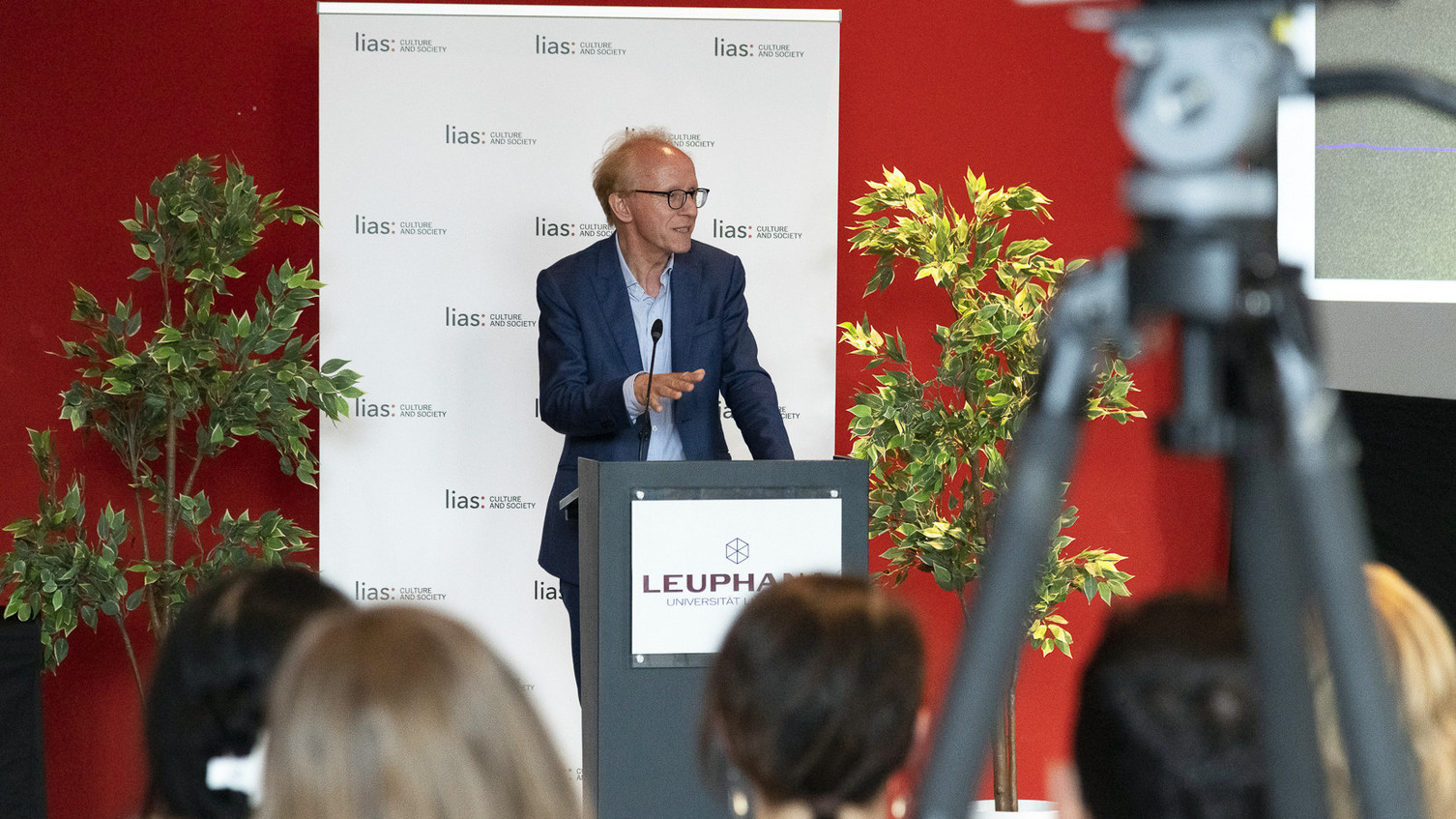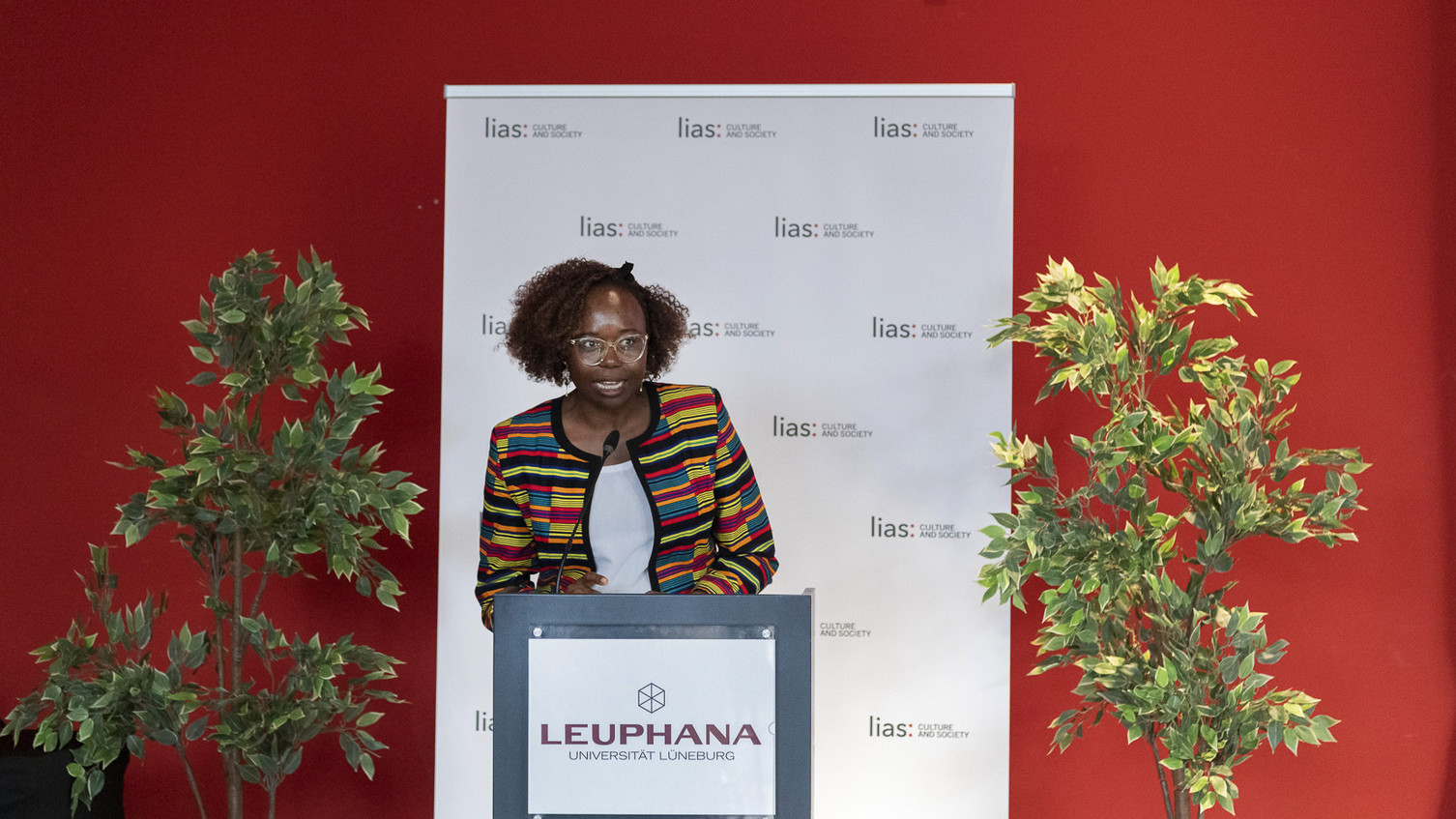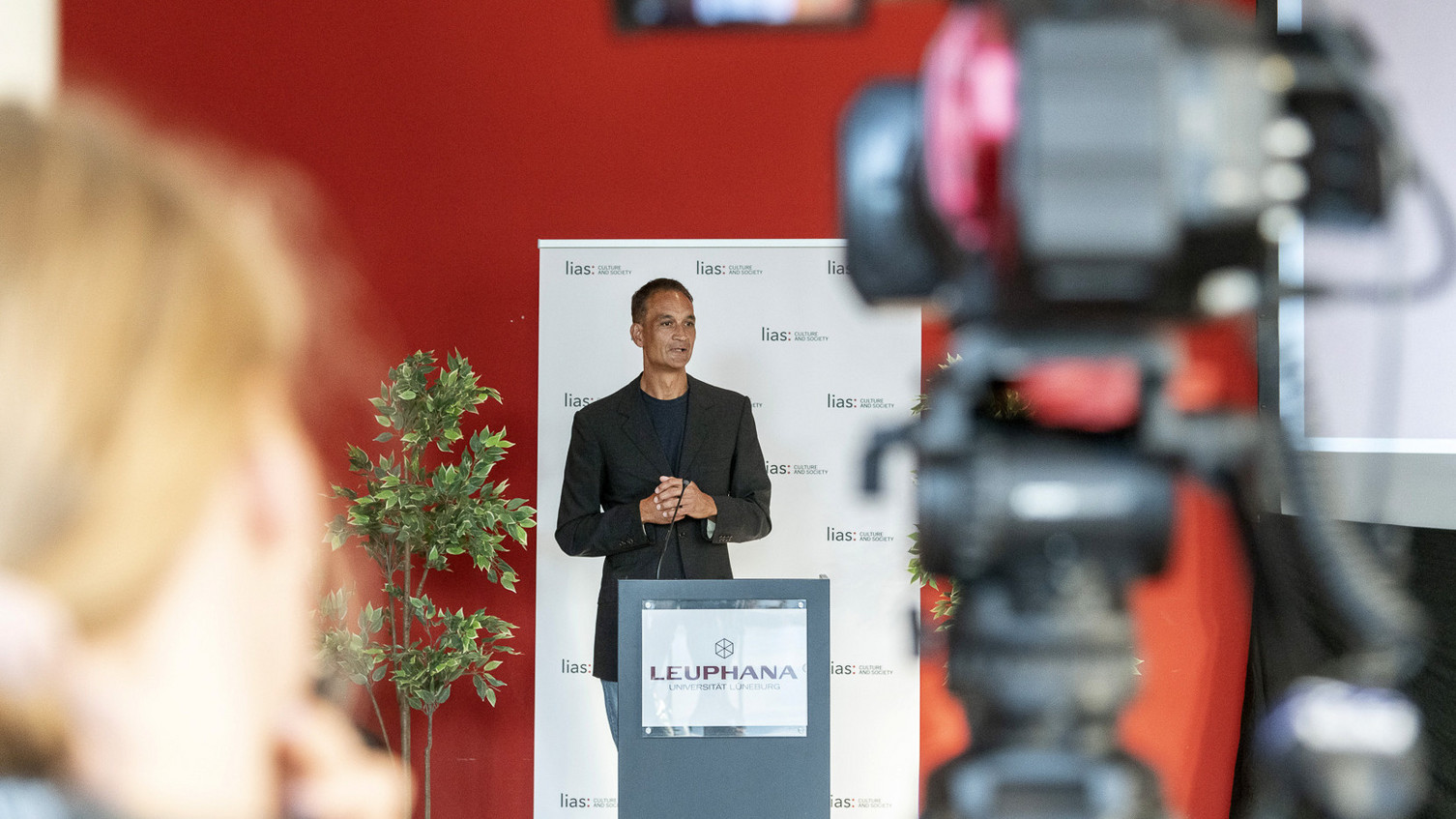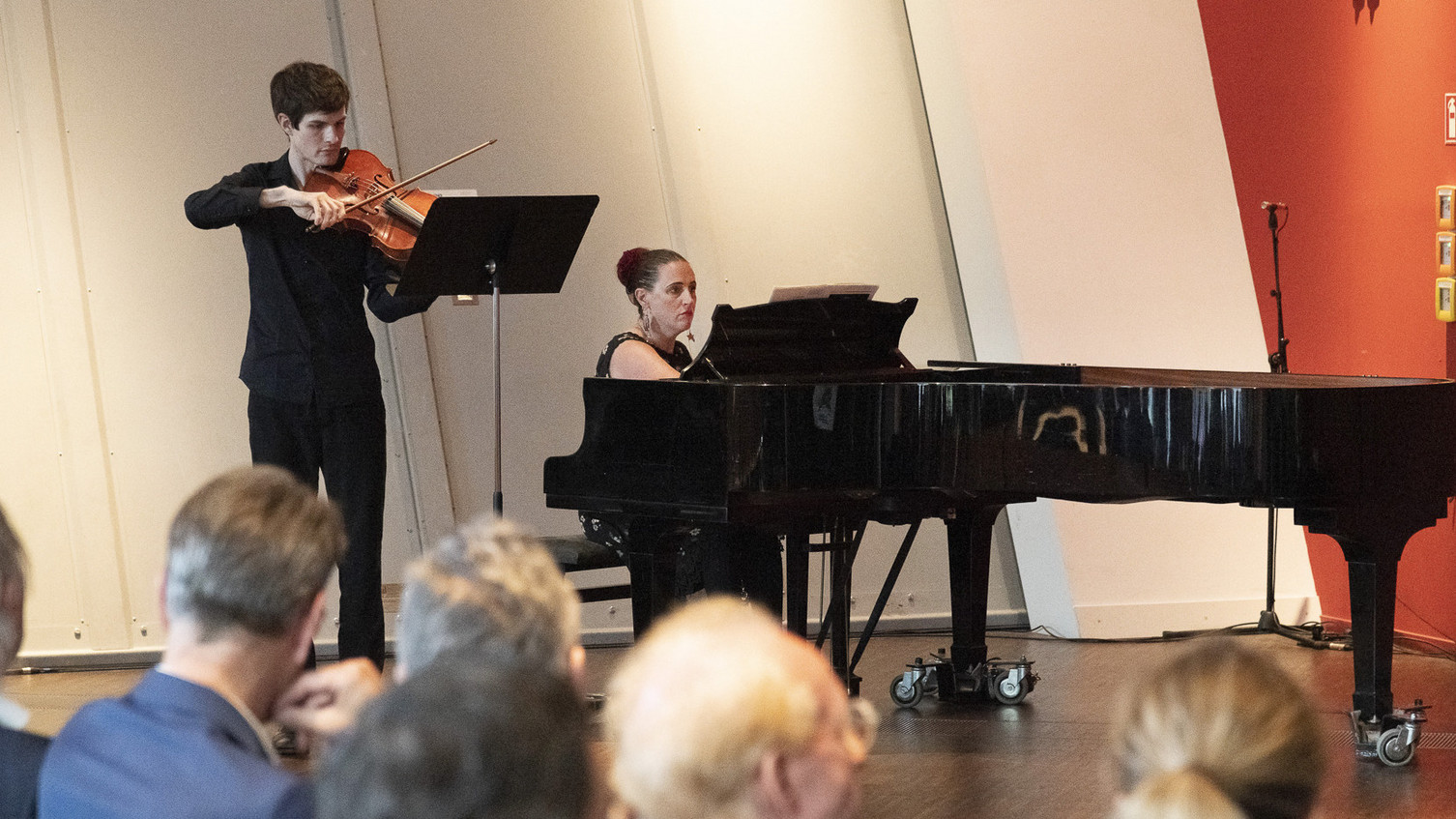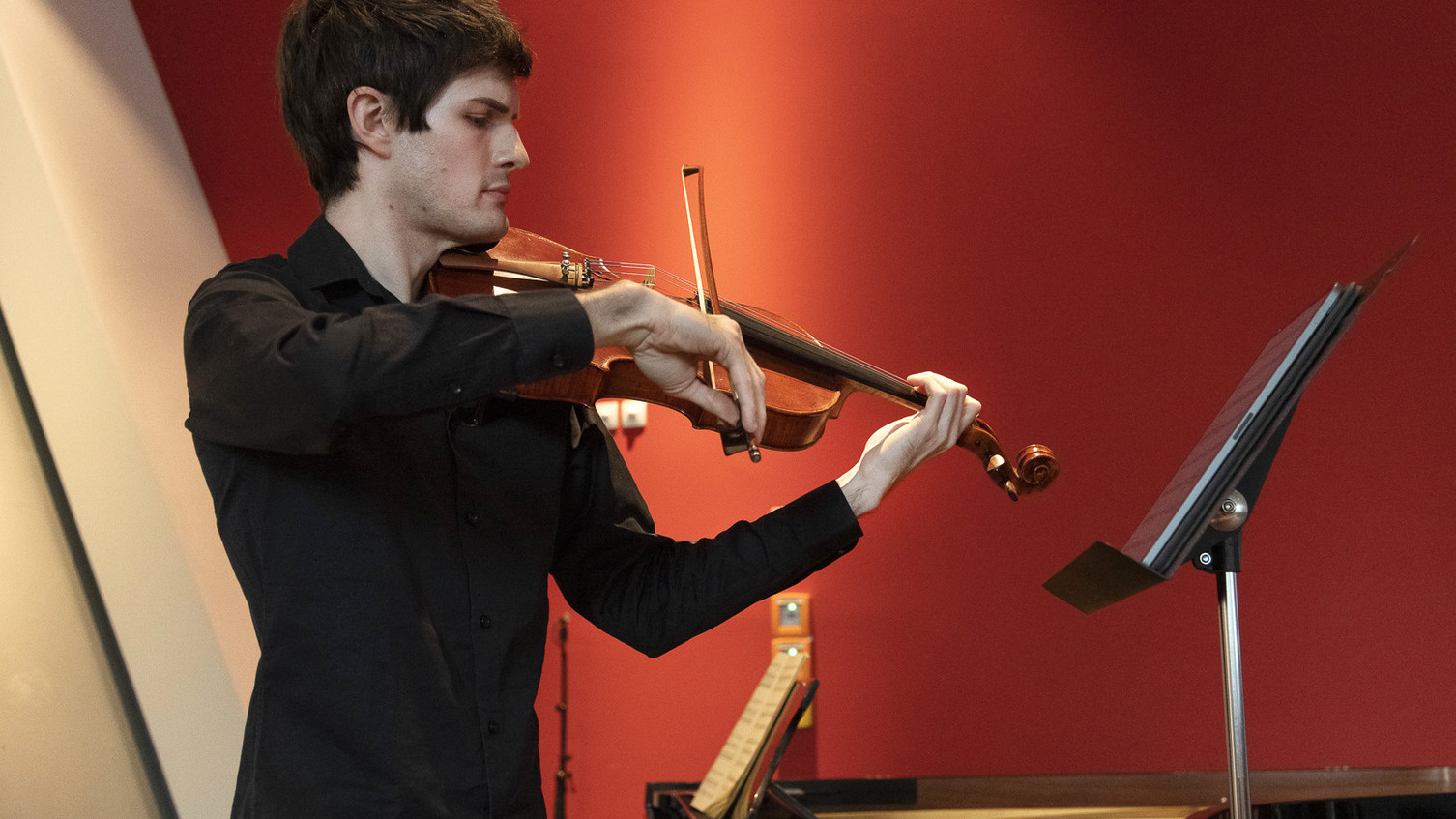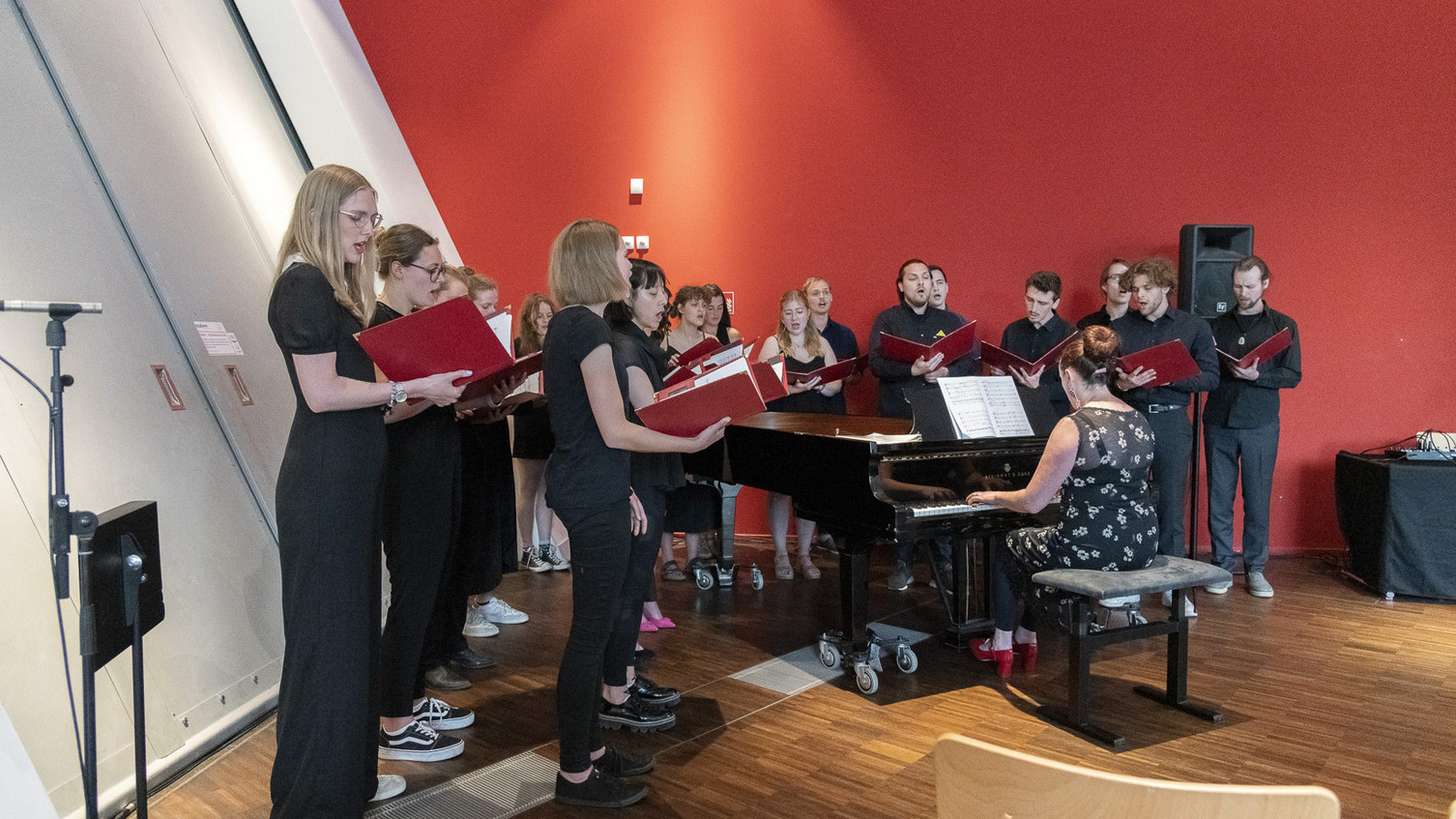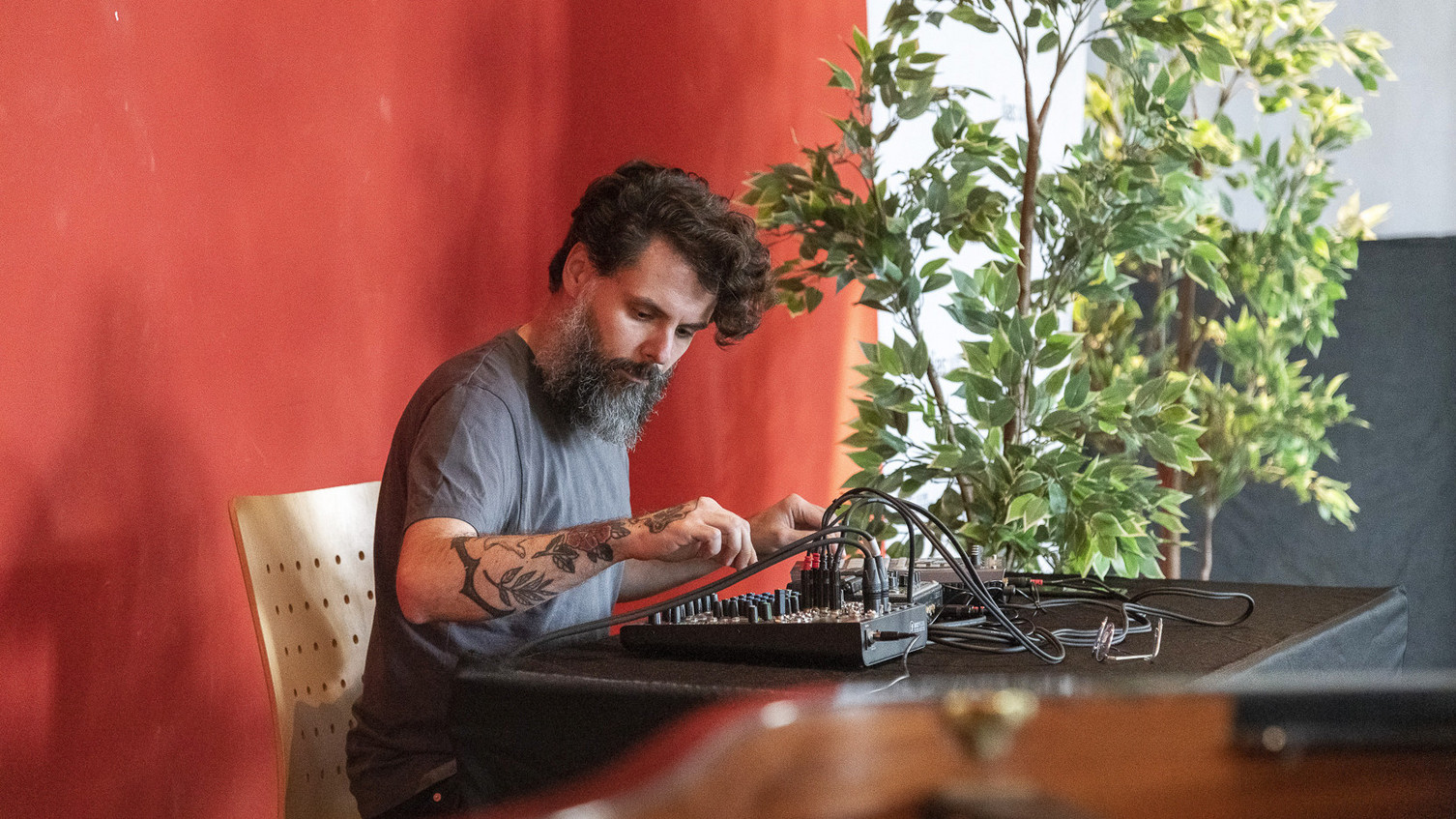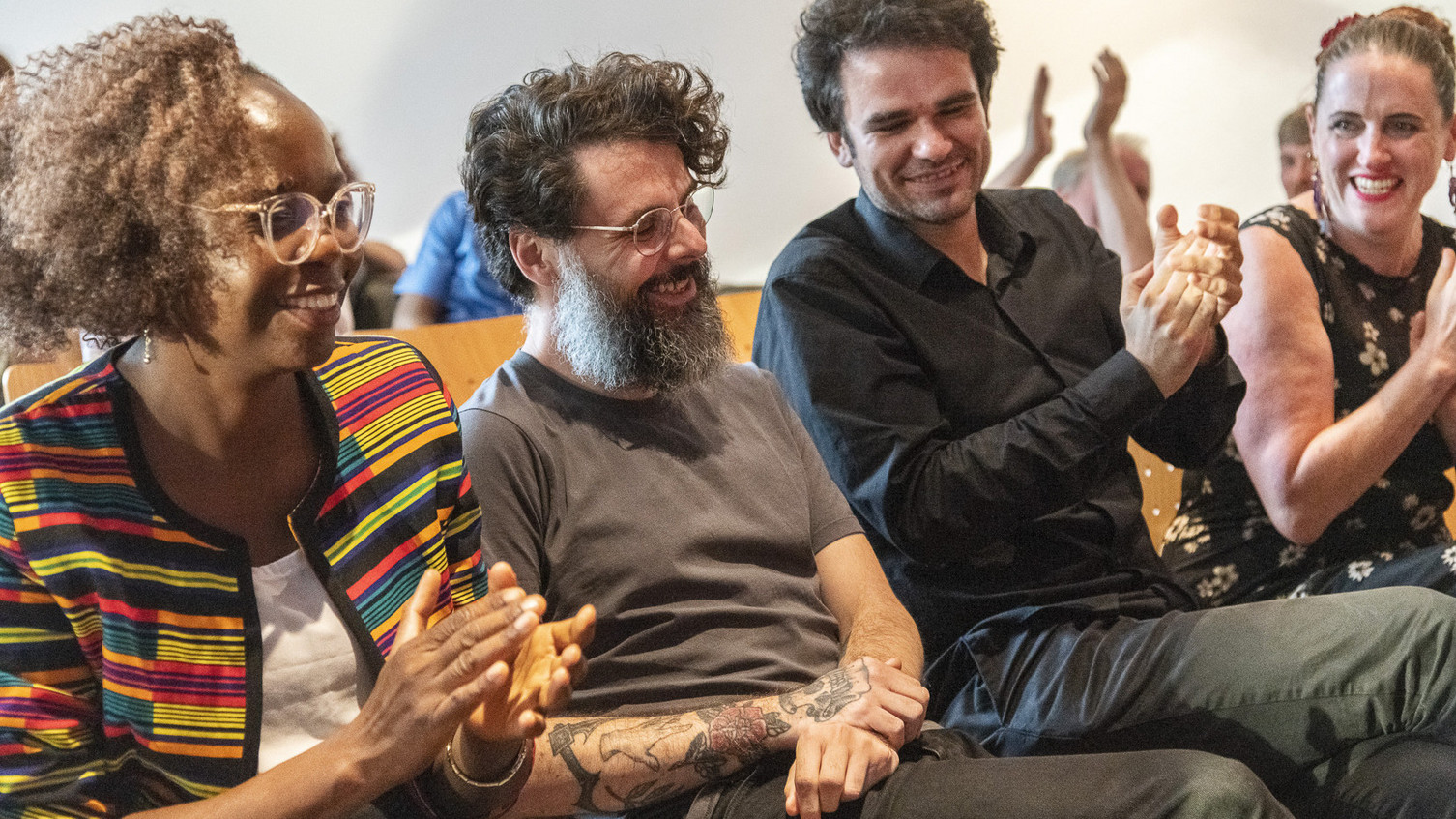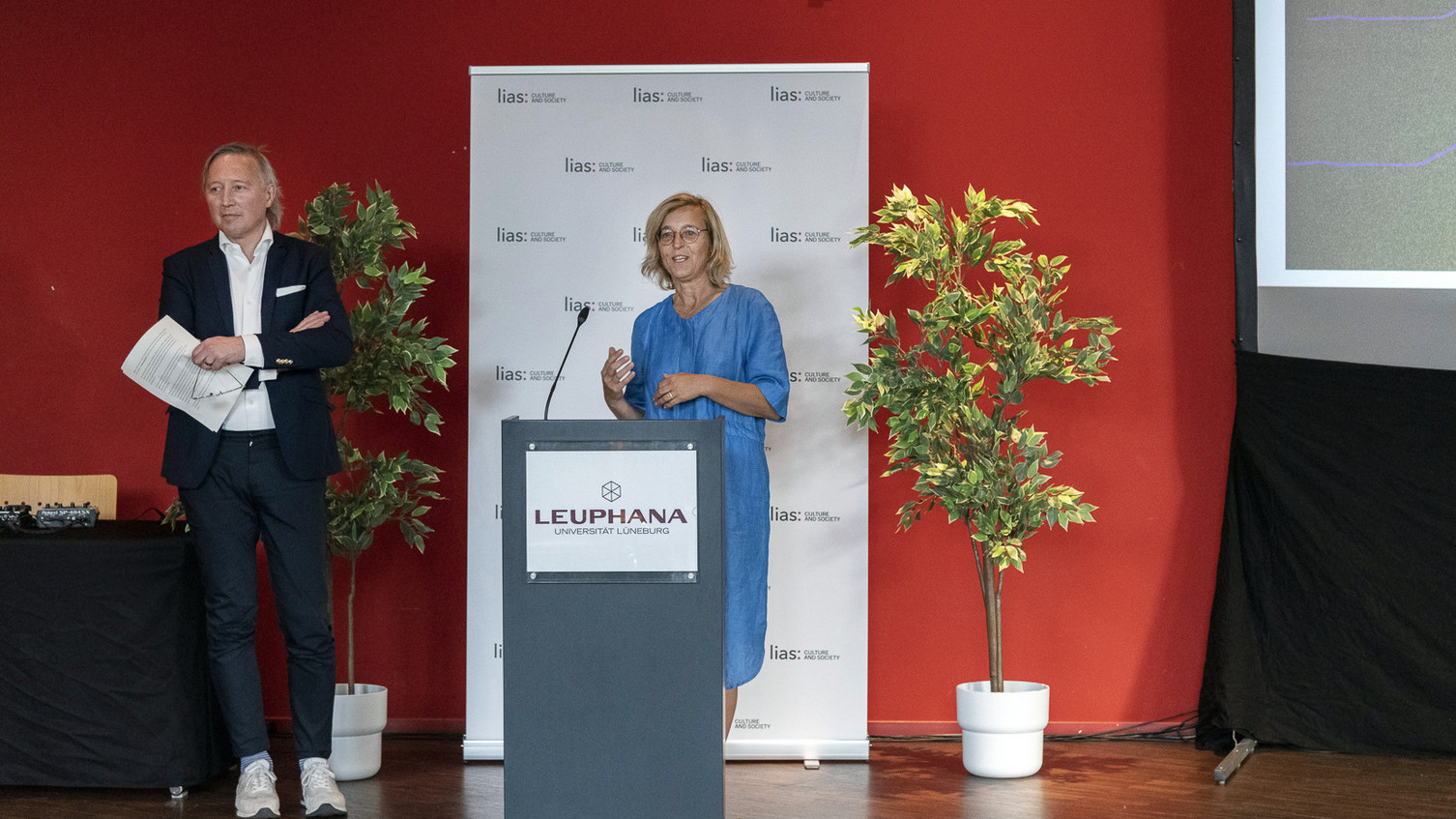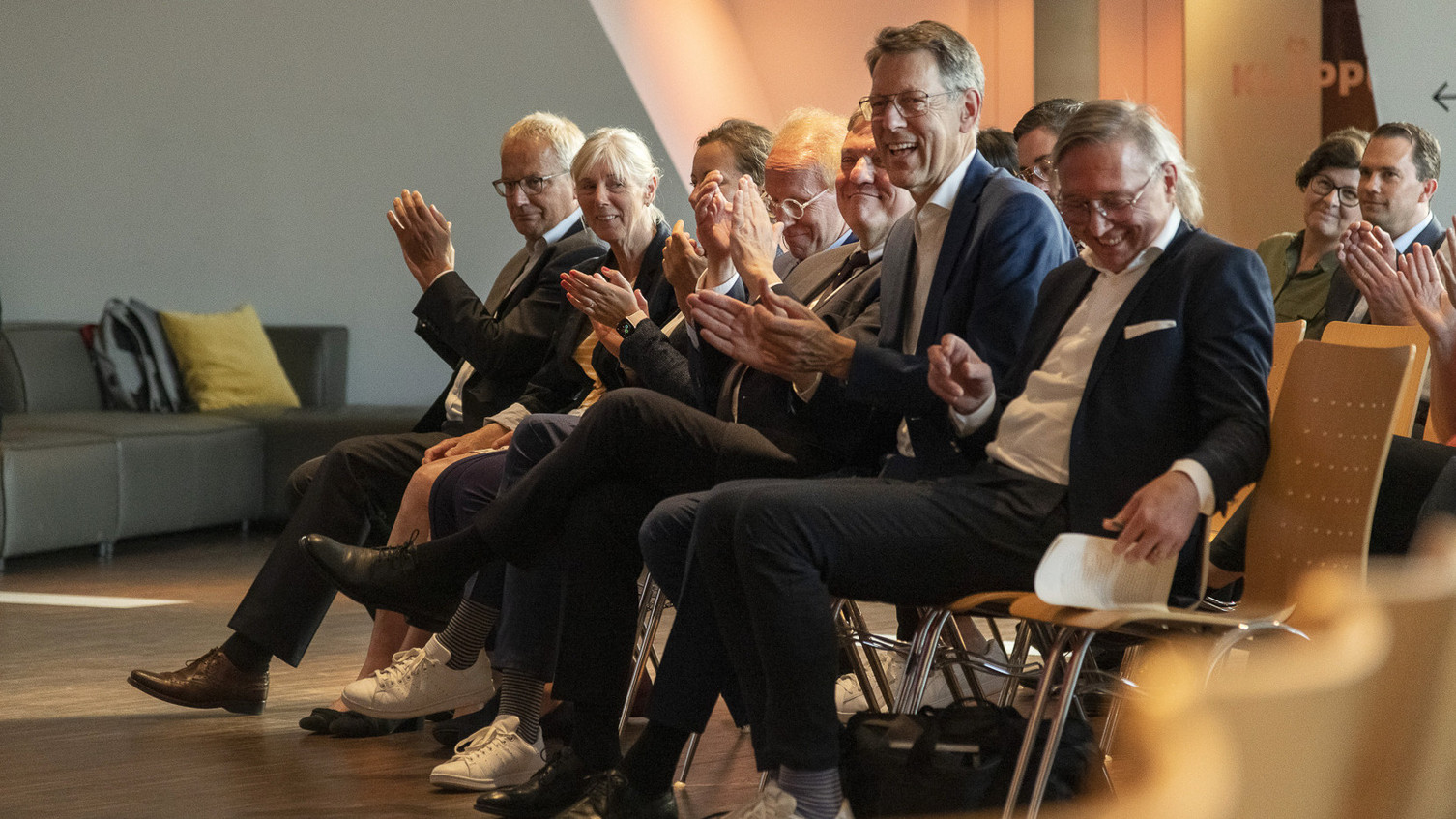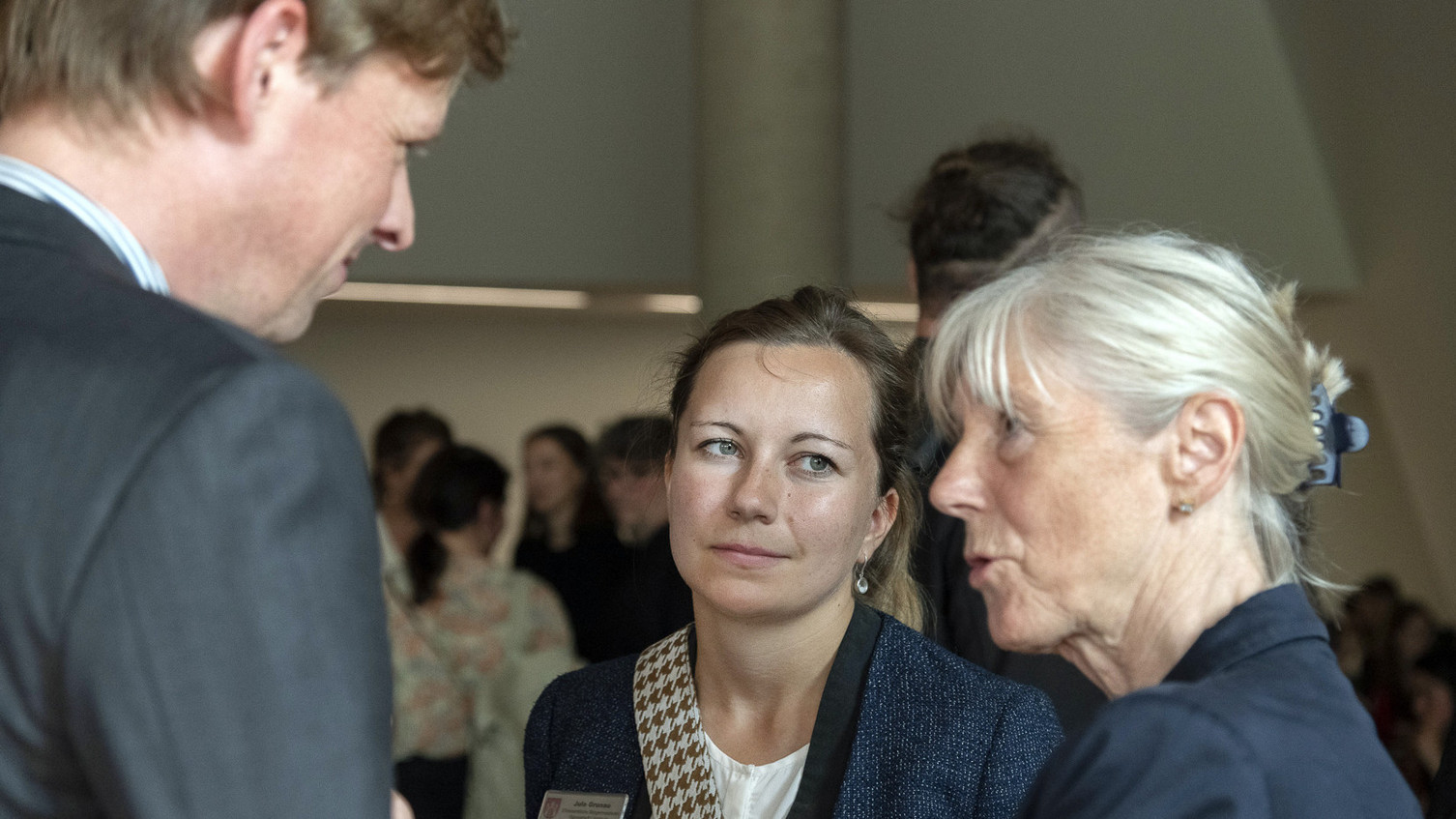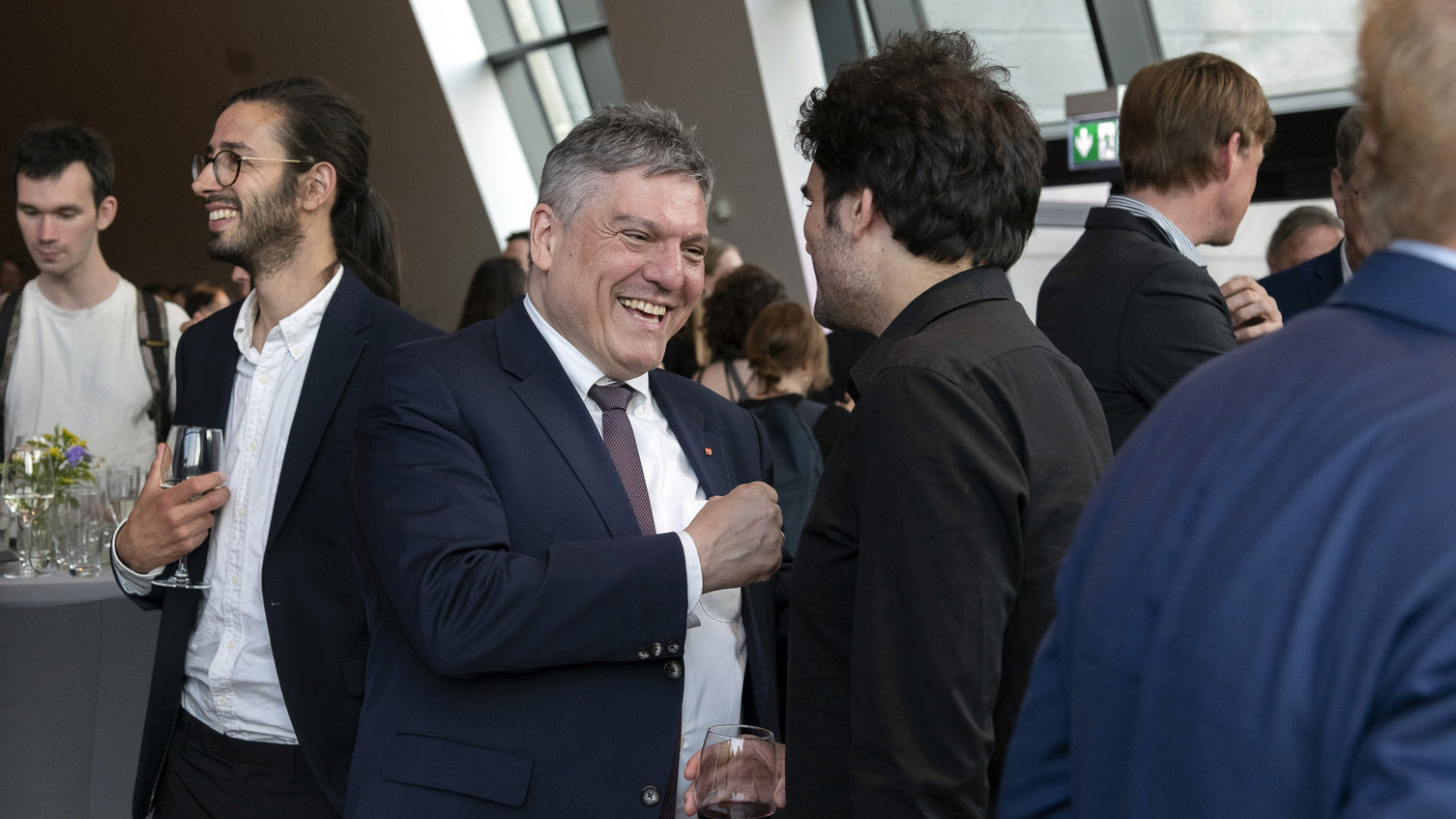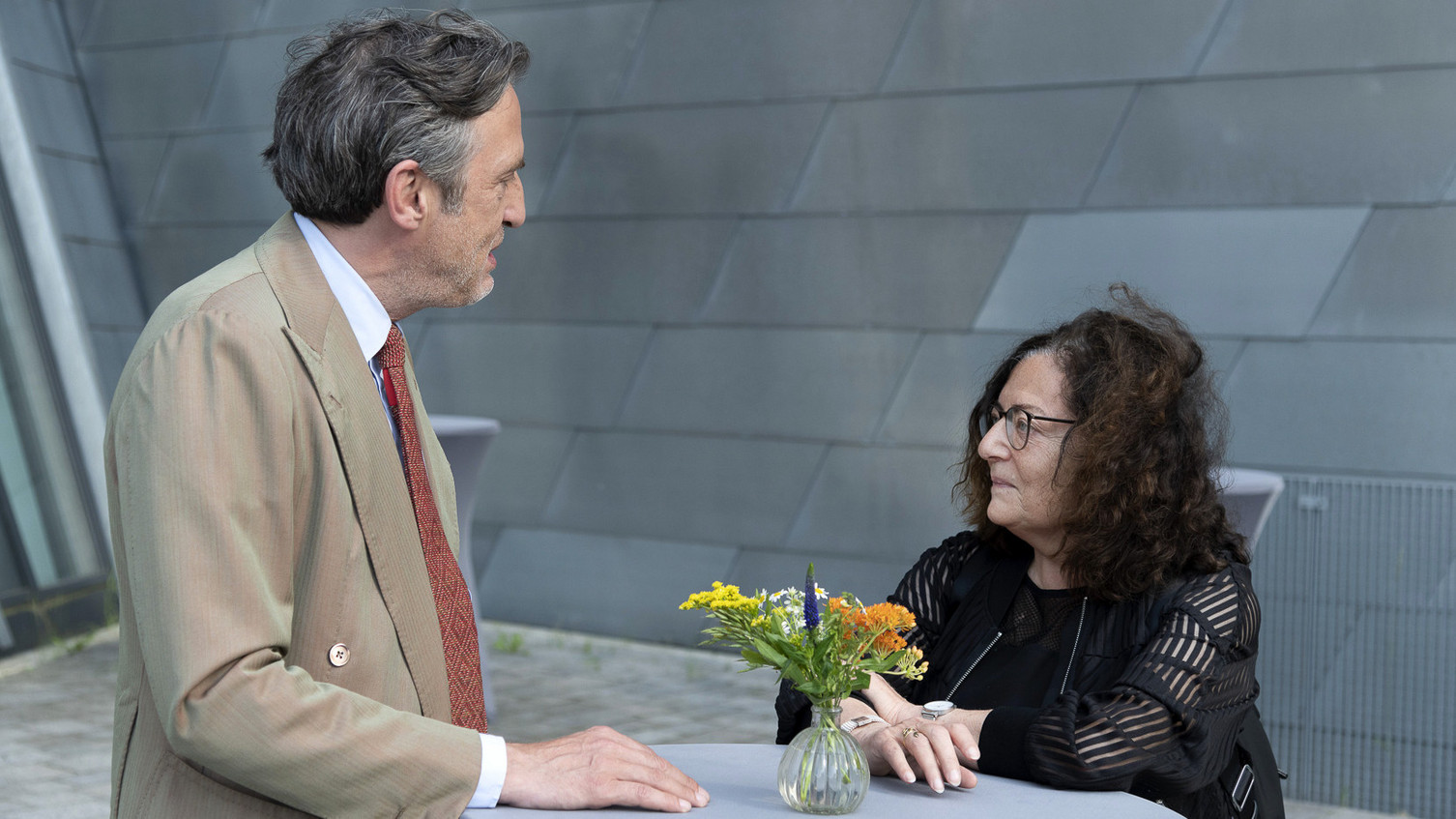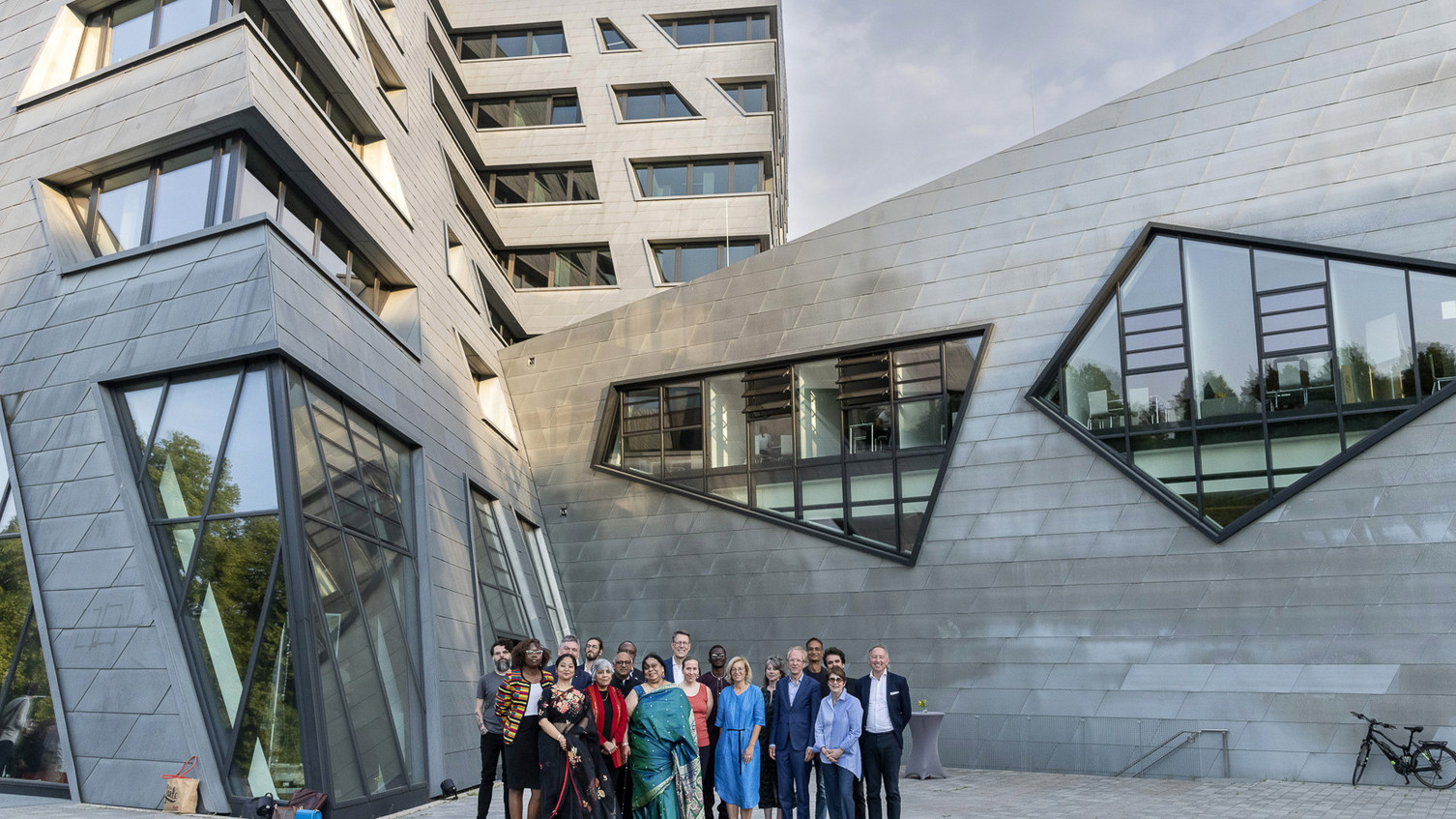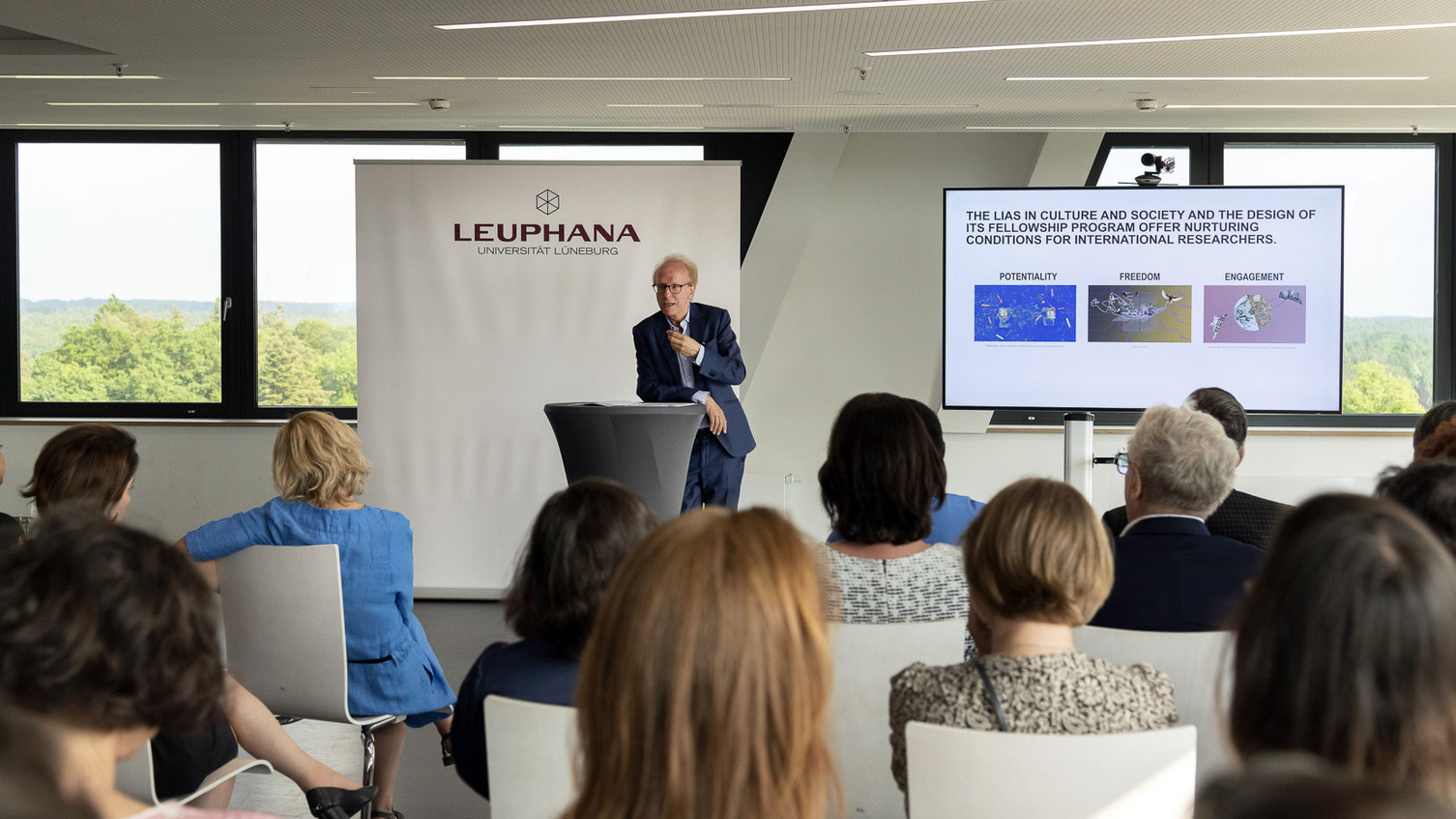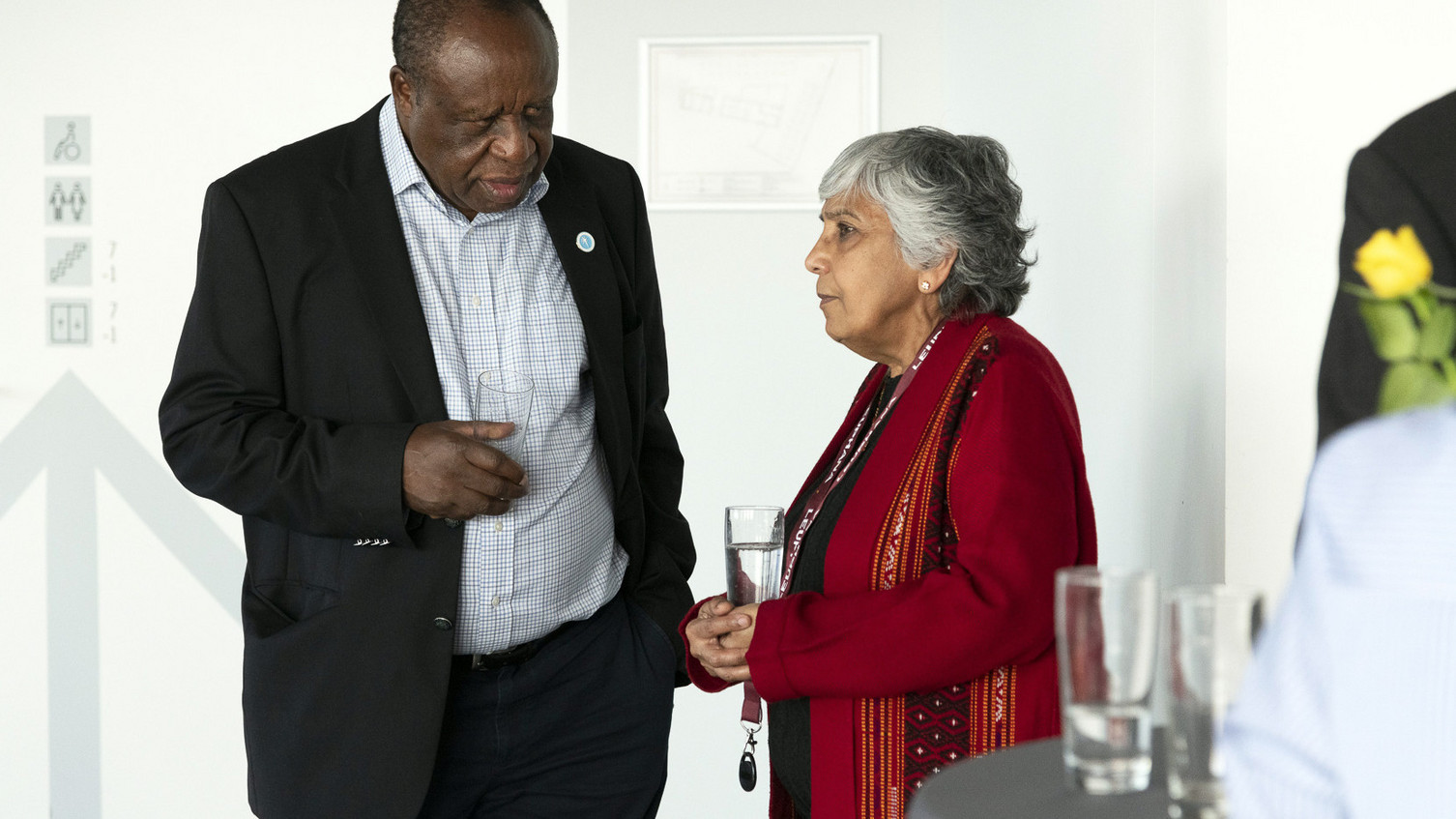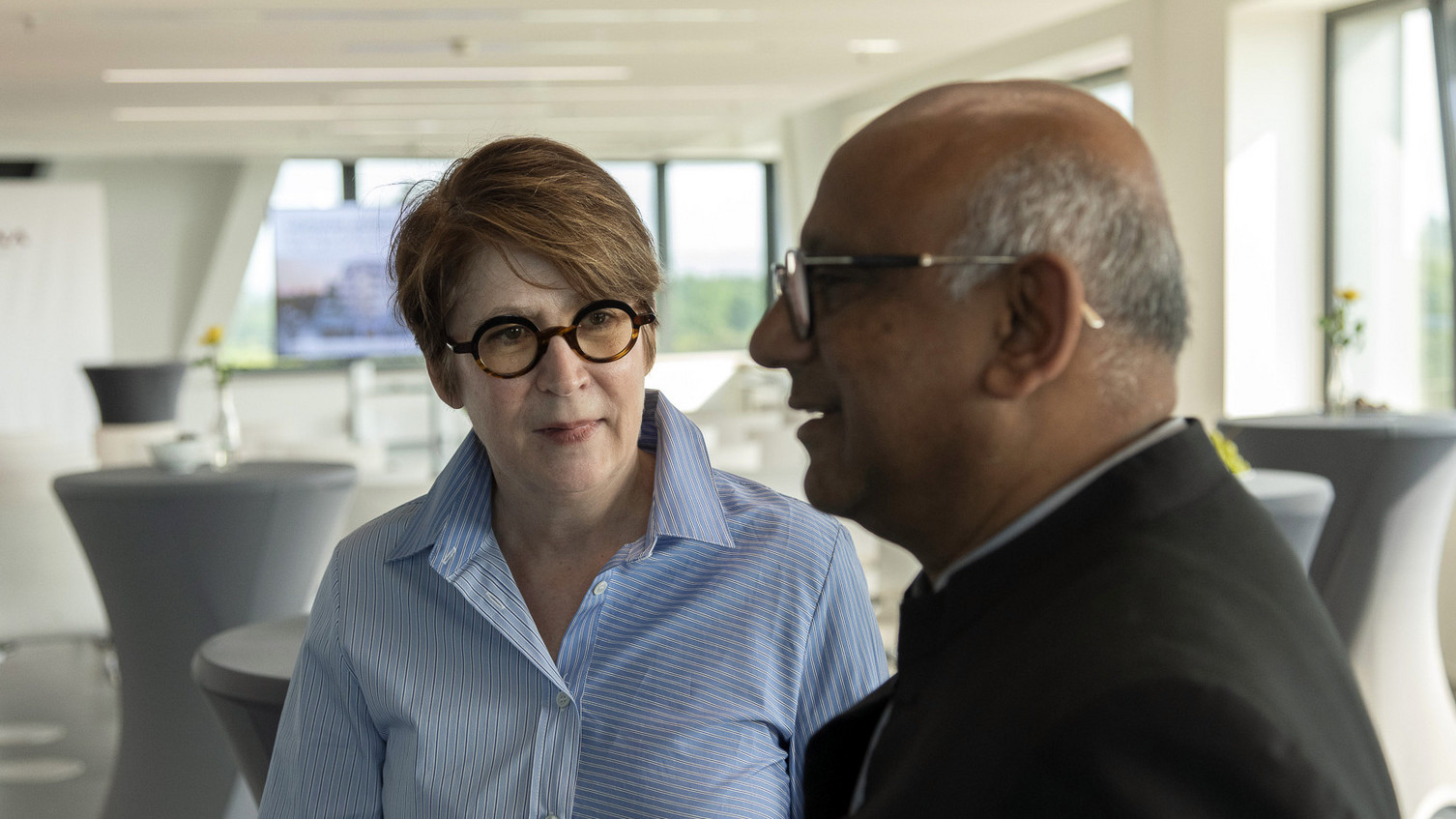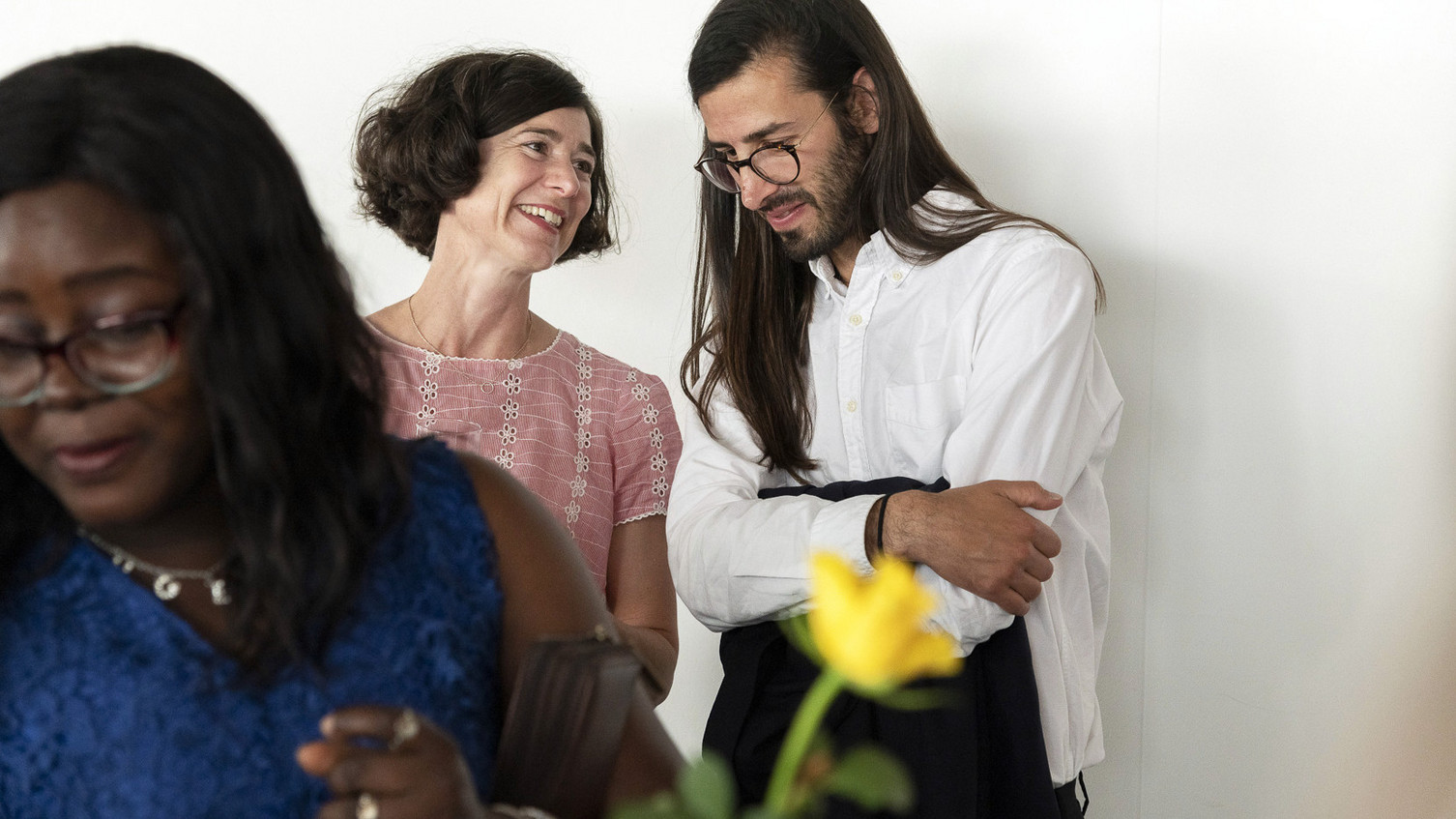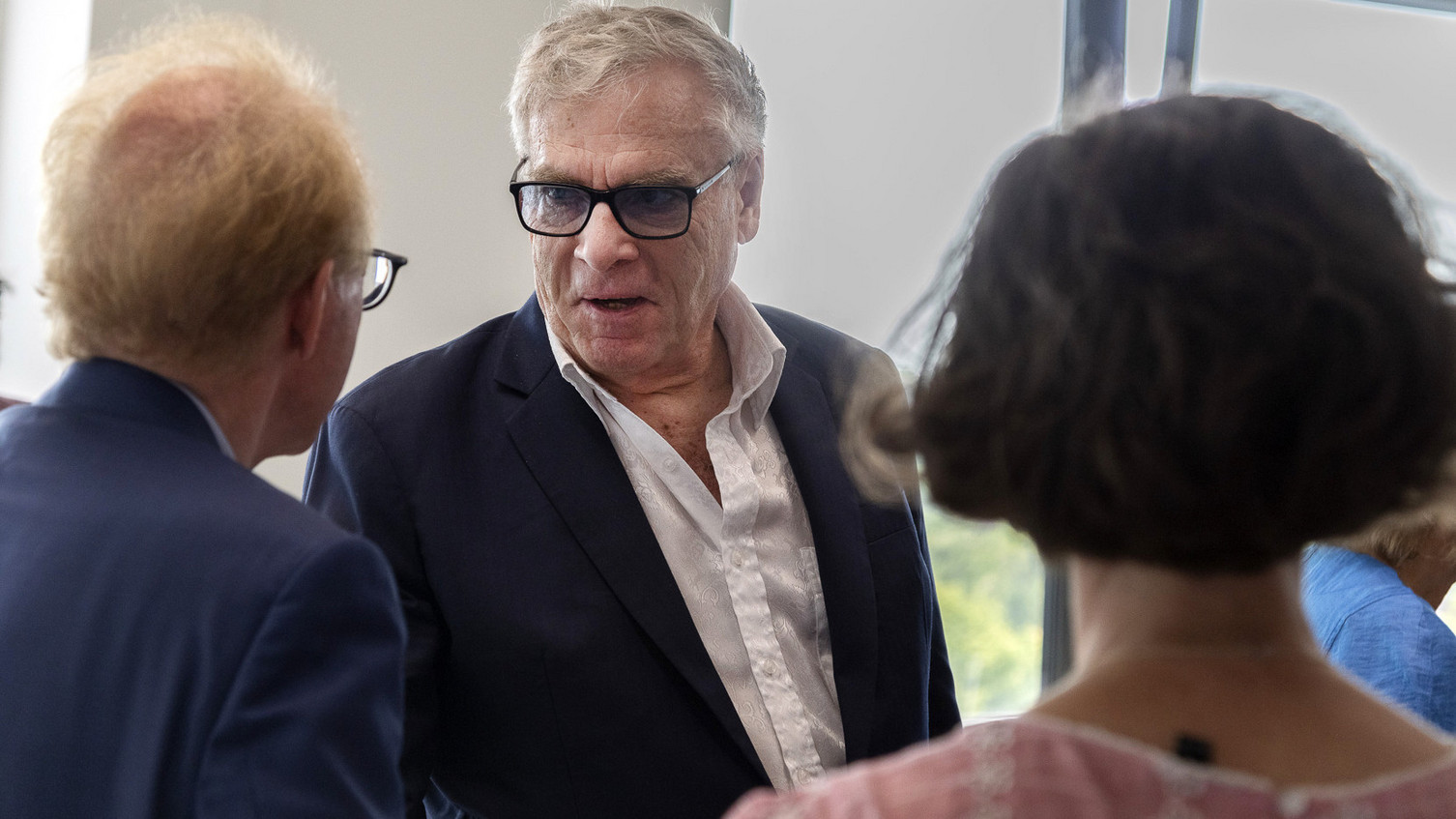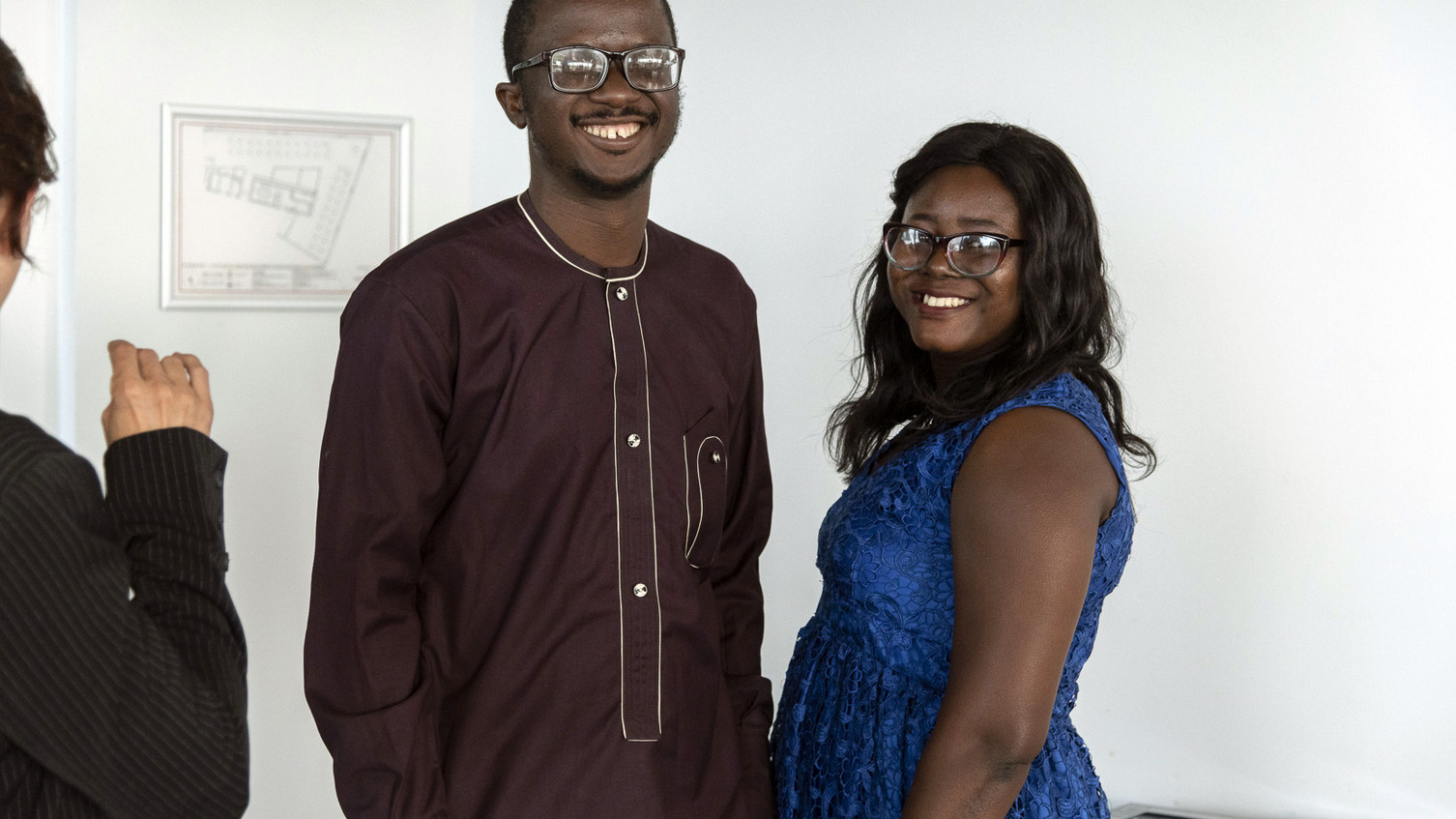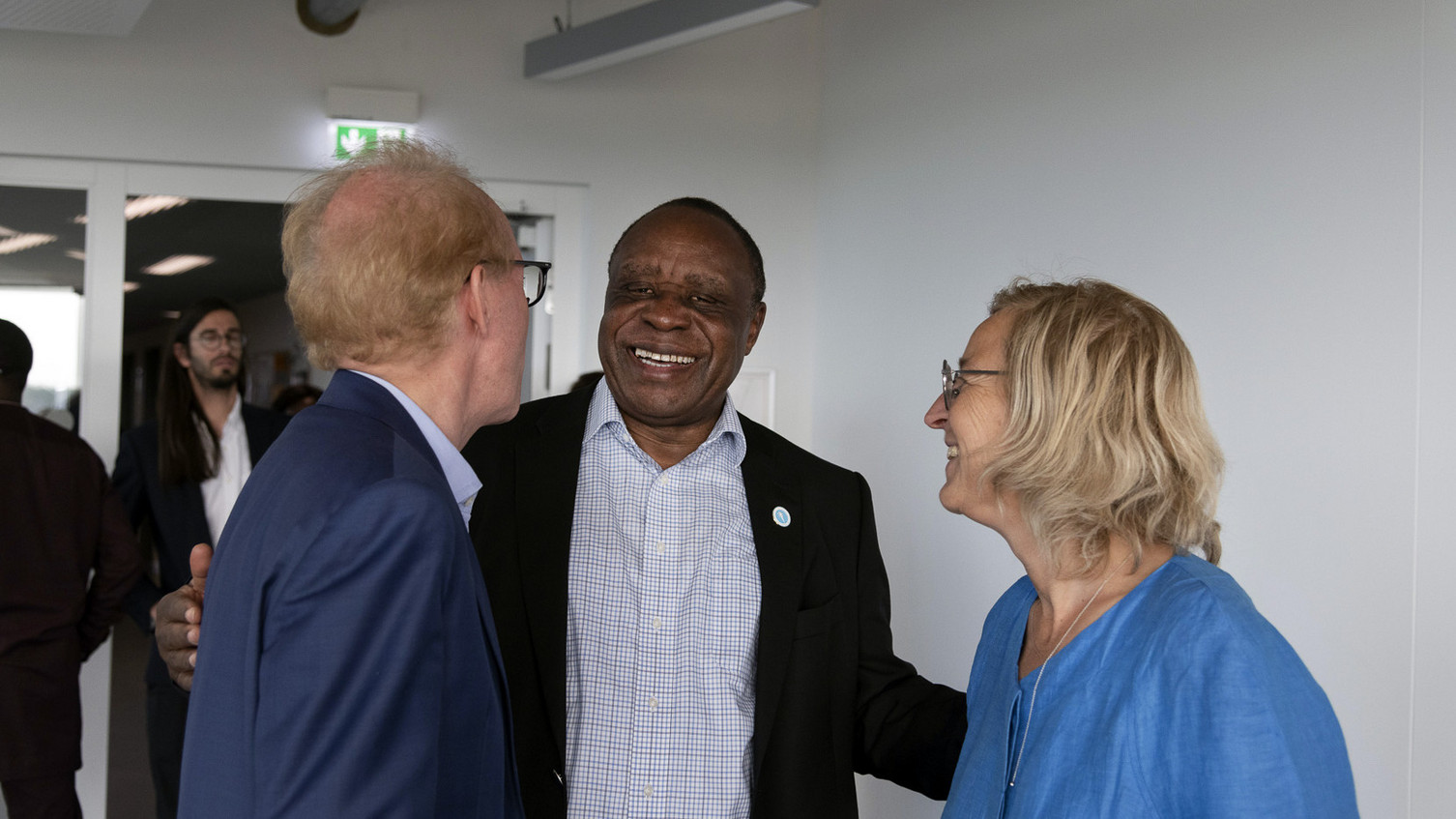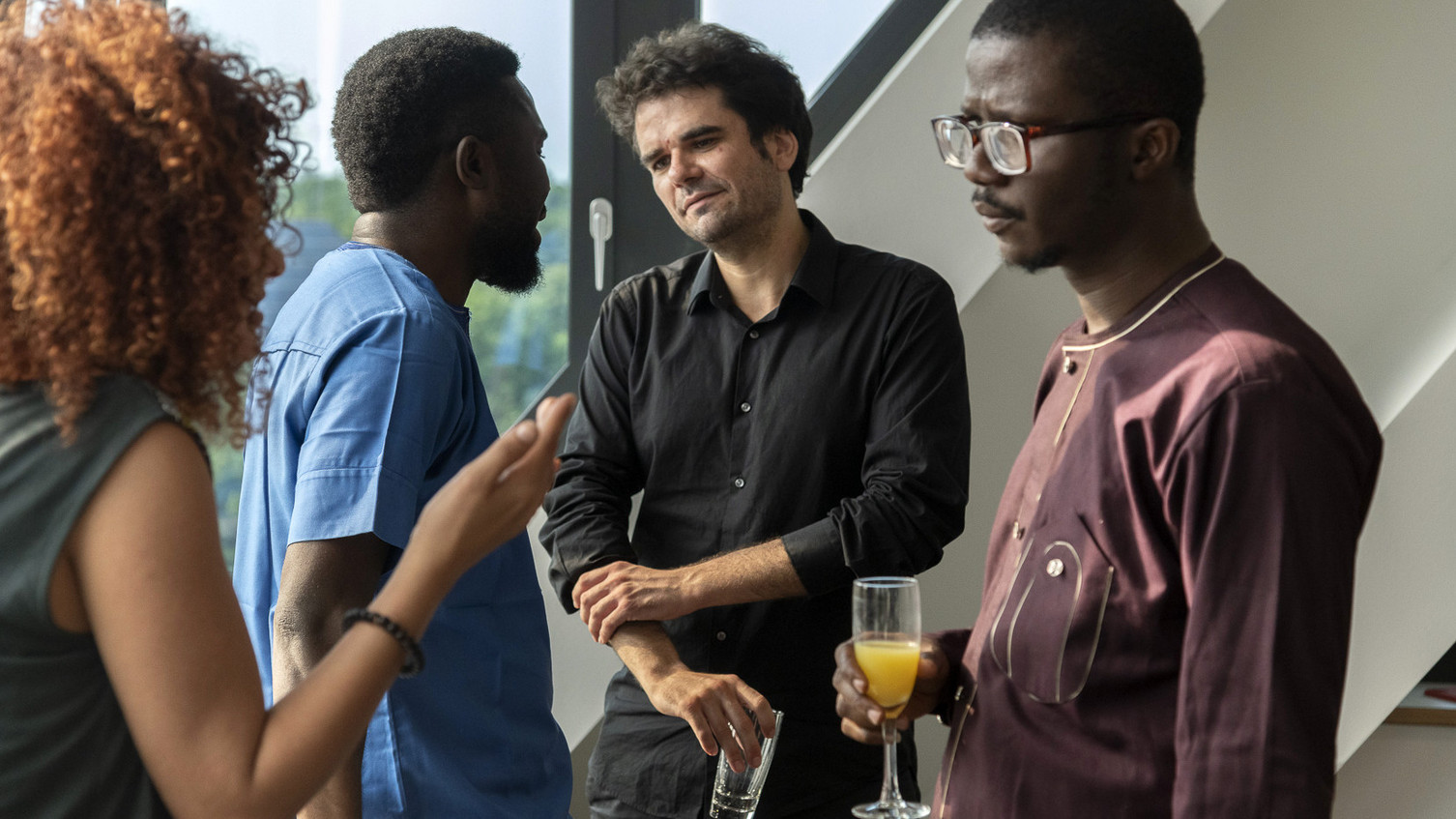Opening Days June 2023
The Opening Days culminated in the official opening of the Leuphana Institute for Advanced Studies (LIAS) in Culture and Society on 8 June.
The interactive workshop on the climate crisis addressed students, the panel discussion put the central concept of potentialisation into perspective and the lecture on "Thinking Across Hemispheres" was dedicated to another guiding concept of the Institute. The opening ceremony with sound performance and workshop reports was co-designed by fellows and advisory board members. The academic directors presented the concept and the programme of LIAS. The different formats contributed to a lively evening and made the well-attended opening an event for the university.
On the occasion of the opening of the Leuphana Institute for Advanced Studies (LIAS) in Culture and Society, Rosalind Morris, Erich Hörl and Daniel Nemenyi discussed the central theme of "potentialisation".
With the Opening Days over the past three days, the Institute for Advanced Studies (LIAS) in Culture and Society kicked off with numerous events during the Opening Days. Erich Hörl, Vice-President for Research and Co-Director of LIAS, took the opportunity to present the central concept of LIAS, including the concept of 'potentialisation,' in a panel discussion. He also invited Senior Fellow Rosalind Morris, Professor of Cultural Anthropology at Columbia University, New York, as well as LIAS Fellow Daniel Nemenyi.
The lack of alternatives that has characterised politics since the 1970s is, according to Hörl, not only the background to the ongoing emergency politics that characterises our time, but also a downright expertocratic situation that obstructs possibilities. In this regard, the question for the humanities and social sciences is what they can offer in such a situation. Hörl also described this as the university's task.
It became clear that the predominance of the actual over the potential, the subordination of potential to the actual, diminishes potentiality. Nemenyi referred to a similar idea in Leibniz, namely the idea that potential lies in what we cannot foresee. Rosalind Morris emphasised the difference between learning and education for the humanities, citing the latter as an argument against cybernetics.
At the same time, the New York artist Heather Klar created a graphic recording that succinctly conveys the concept of LIAS in a generally accessible manner.
On the occasion of the opening of the Leuphana Institute for Advanced Studies (LIAS) in Culture and Society, Premesh Lalu, Centre for Humanities Research at the University of the Western Cape, will give the central opening lecture on the LIAS motto "Thinking Across Hemispheres" in Lecture Hall 4.
Premesh Lalu, research professor and founding director of the Centre for Humanities Research at the University of the Western Cape, reflected in his well-attended lecture on the need for humanities scholars to develop a practice of thinking beyond hemispheres, using parts of his recently published monograph Undoing Apartheid. The lecture referred to three plays - Faustus in Africa, Woyzeck on the Highveld and Ubu and the Truth Commission - by William Kentridge, Lesego Rampolokeng, Jane Taylor and the Handspring Puppet Company, which were also performed in Germany on the occasion of the official end of apartheid or the establishment of the Truth and Reconciliation Commission in South Africa and the fall of the Berlin Wall. Theatre, says Lalu, offers a way of reflecting on the fundamental 'fictions of race' that have found expression in the idea of apartheid, revealing the workings of a sensual order and its simultaneous abolition through an aesthetic education based on, say, Friedrich Schiller. Above all, however, "Undoing Apartheid" calls for thinking across hemispheres, both geopolitically and across the subdivisions of the sensual.Premesh Lalu discussed with Paula Banerjee, Susanne Leeb moderated the numerous questions from the audience.
A dozen interested students took part in the bar camp with Radha d'Souza on 7 June. In three working groups, they discussed the climate crisis with the legal scholar.
After discussing three possible understandings of the climate catastrophe as a weather phenomenon, a consequence of the Anthropocene or as a goal of political agreements, such as the Kyoto Protocol, Radha d'Souza surprised the invited students with her thesis that causes of the climate crisis are to be found in the legal basis of companies as 'corporations' - a thesis she will elaborate at LIAS.
Radha d'Souza is author of the book "What's Wrong with Rights?" (2018) and, together with the artist Jonas Staal, founded the Court for Intergenerational Climate Crimes (CICC).
In the LIAS film series, international films on cultural and socially critical topics are accompanied by introductions and discussions during the first week of the month. During the Opening Days, Senior Fellow Rosalind C. Morris presented her film "We are Zama Zama" at the SCALA Programmkino in Lüneburg.
For over a hundred years, South Africa was the largest gold producer in the world. Fleeing from neighbouring Zimbabwe, three men search for gold in the ruins. The bravest of these illegal miners are called "Zama Zamas", which means "to try again and again", but also "to bet". Without helmets, ventilation or drainage, lighting their way with bicycle headlights, Zama Zamas are indeed gamblers who risk everything for their survival.
The audience was particularly impressed by the point-of-view footage of the miners, filmed by the miners themselves with Go-Pro cameras. The director's cut also includes the scene Rosalind Morris created during her two years of filming with those women who work hard crushing rock by hand to extract gold dust. In the discussion with the audience afterwards, the director told about the history of the making of the film and her way of working with the miners, with whom she is still in contact. She also informed the protagonists about this evening via WhatsApp.
LIAS Interventions is a new series of the Leuphana Institute for Advanced Studies (LIAS) in Culture and Society. The first workshop was dedicated to film and photographic media.
In line with LIAS's goal of expanding options for thought and action, workshops are organised with non-academic actors who take the fellows' respective research topics as a starting point and work out common social problems. The format allows the Fellows to discuss their content outside the university and brings invited actors into deeper discussion with the latest research.
The first LIAS Interventions: In Media was about the research project "The Visual Witnessing of Trauma Phenomena Among Journalists: An Analysis of Various Media Images from East Africa" by Lydia Oumo Radoli. In it, she researches the consequences and conditions of traumatisation of photo and film journalists.
In her study, media scientist and former journalist Lydia Ouma Radoli examines the trauma of journalists in East Africa (Kenya, Rwanda, Uganda), the structural disadvantages within the media system and asks for an alternative way of dealing with a phenomenon that has hardly been researched in East Africa so far.
Against this background, the many years of experience of the journalist and author Jay Tuck was of central importance, as he was able to report on the actual conditions of reporting from two Gulf wars for the participants of the workshop and showed his own film material on this, which he shot as head of TV teams.
Prof. Levi Obonyo, Dean of the School of Communication, Daystar University, Nairobi, explored the question of which mechanisms within the media systems determine the selection of images (TV, photo) in the context of crisis and war reporting in East Africa and which economic situation determines the media sector in Kenya and thus the working conditions of journalists.
Prof. Dr. Gertrud Koch, Professor Emeritus of Film Studies at the Free University of Berlin and Visiting Professor at Brown University, USA, contributed her insights into the dynamics of media and image production. She critically reflected on the current function, role and duties of journalists.
The participating journalists from Germany on the ground and Kenya, Rwanda and Uganda online agreed that the experiences of journalists are trivialised. The journalists' testimonies and the sharing of their emotions also led to the conclusion that conversations about their traumatic experiences should become part of their journalistic work and should be held regularly.
The Opening Days ended with the official opening of the Leuphana Institute for Advanced Studies (LIAS) in Culture and Society on 8 June evening. The concept of LIAS, as well as the fellows, were officially introduced, and the first workshop reports gave an insight into the work and its impact. A music and performance programme rounded off the evening.
Sascha Spoun positioned LIAS within the broader university context, while Erich Hörl and Susanne Leeb, co-directors of LIAS, presented their approach based on the central concepts of "potentialisation" and "Thinking Across Hemispheres".
Alain Pottage reported on the Barcamp with legal scholar Radha d'Souza, while Lydia Radoli discussed and the first LIAS Interventions: In Media in the afternoon.
The music programme was performed by Rebecca Lang and Quinn Frazee (viola) and the Leuphana Chamber Choir. A sound performance by Artist Fellow Pedro Oliveira rounded off the well-attended evening.

